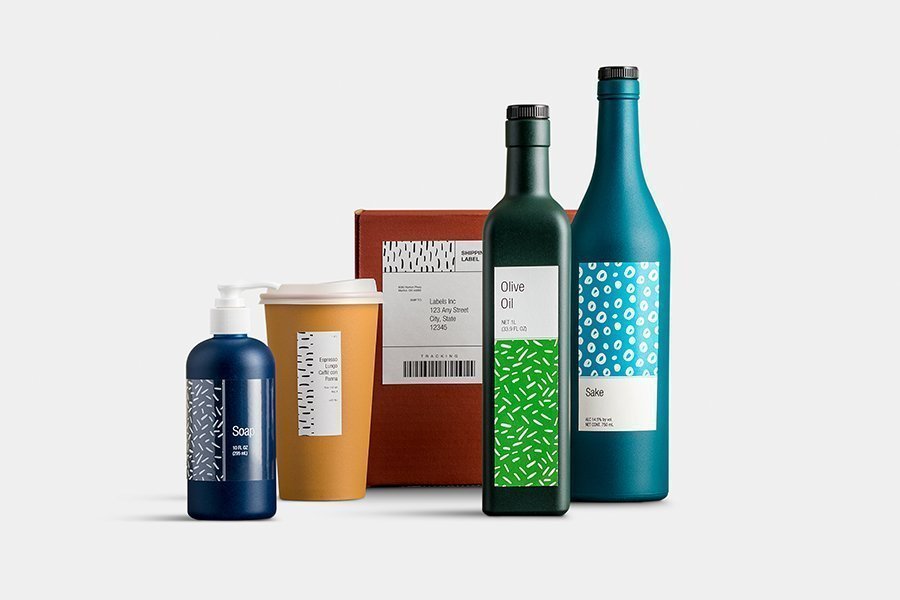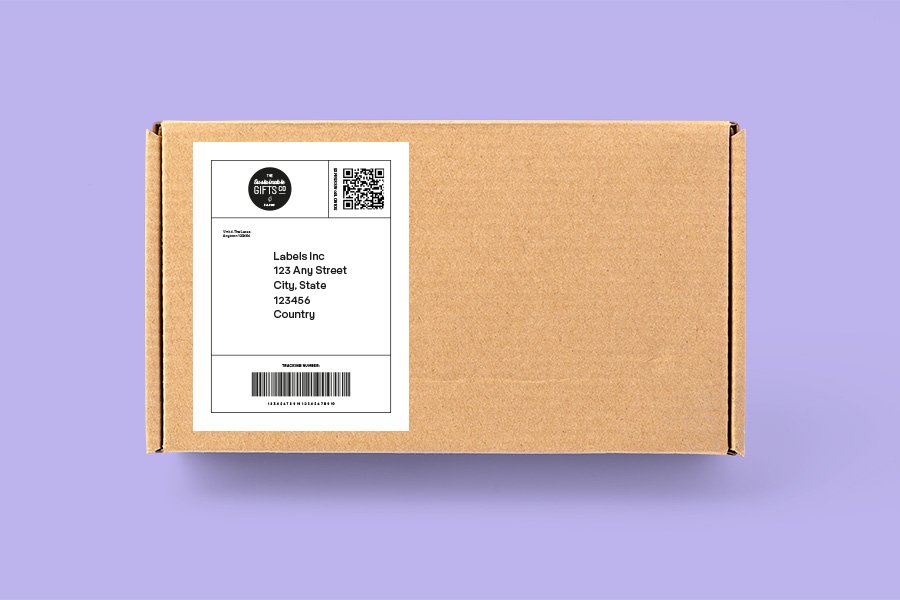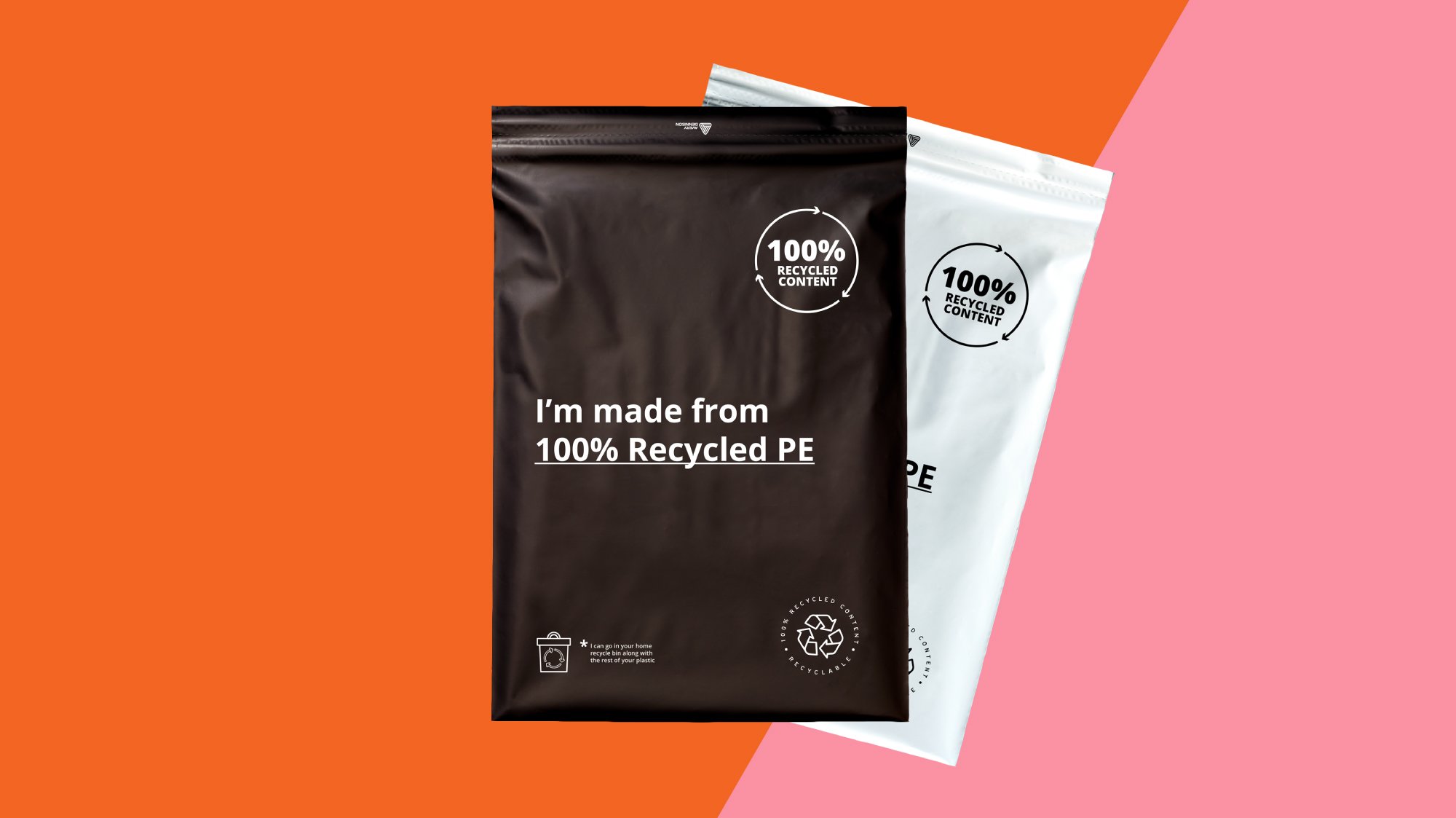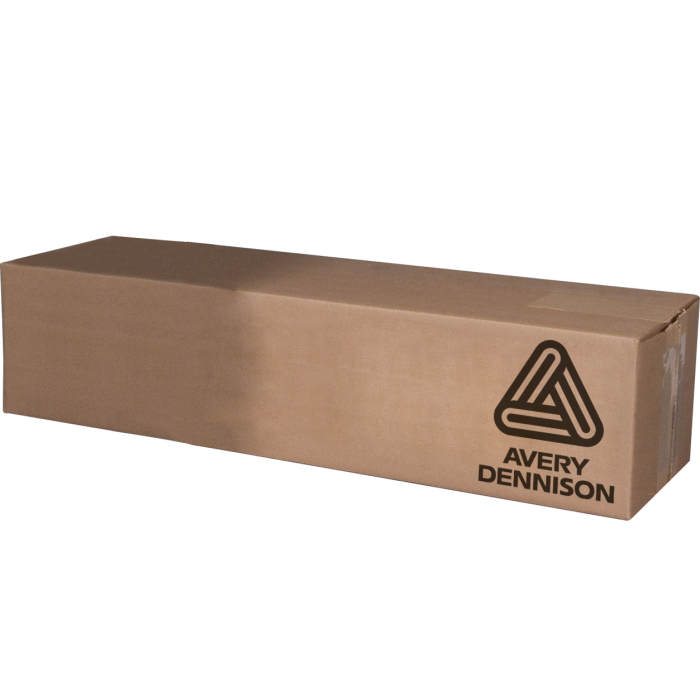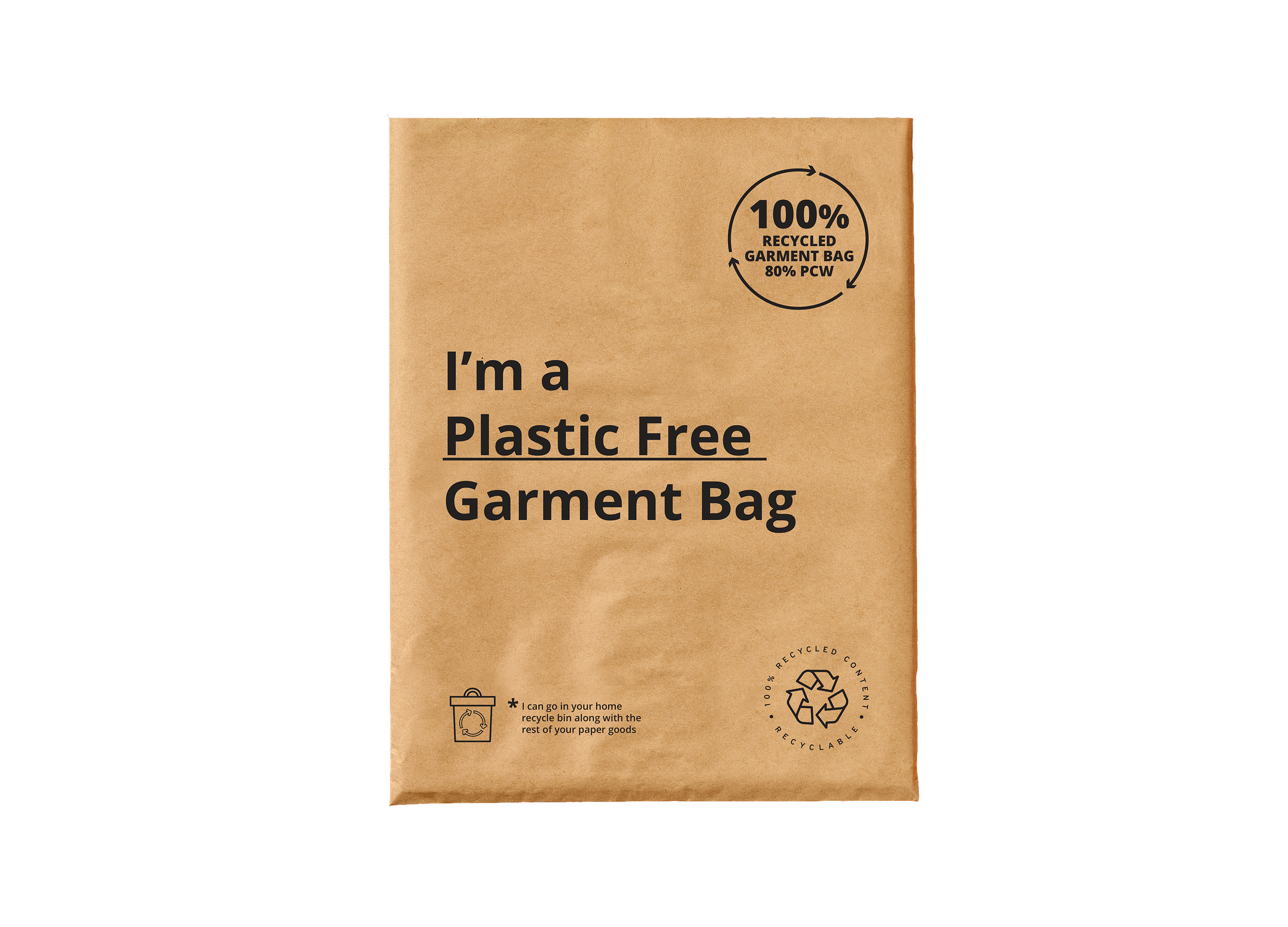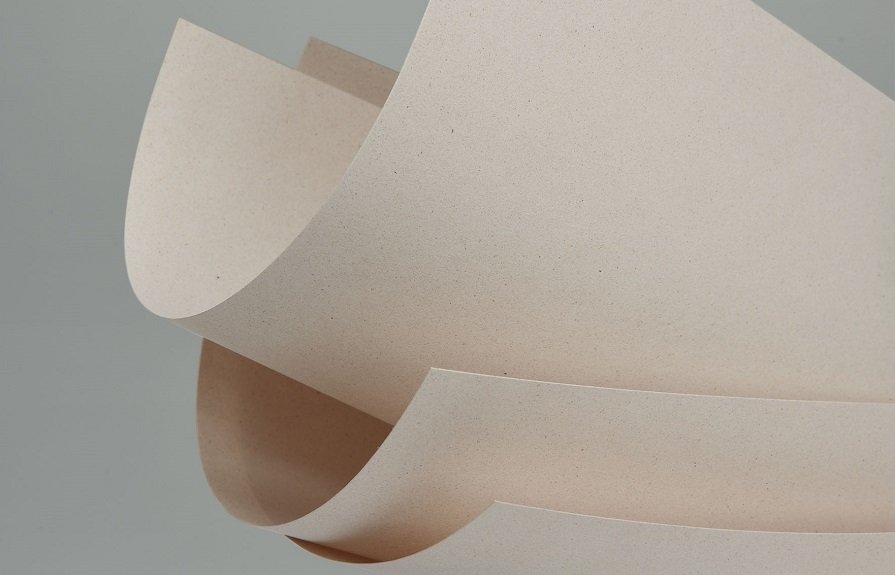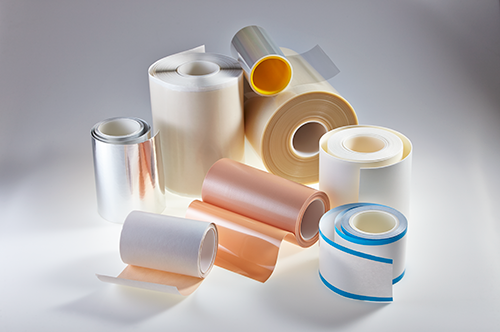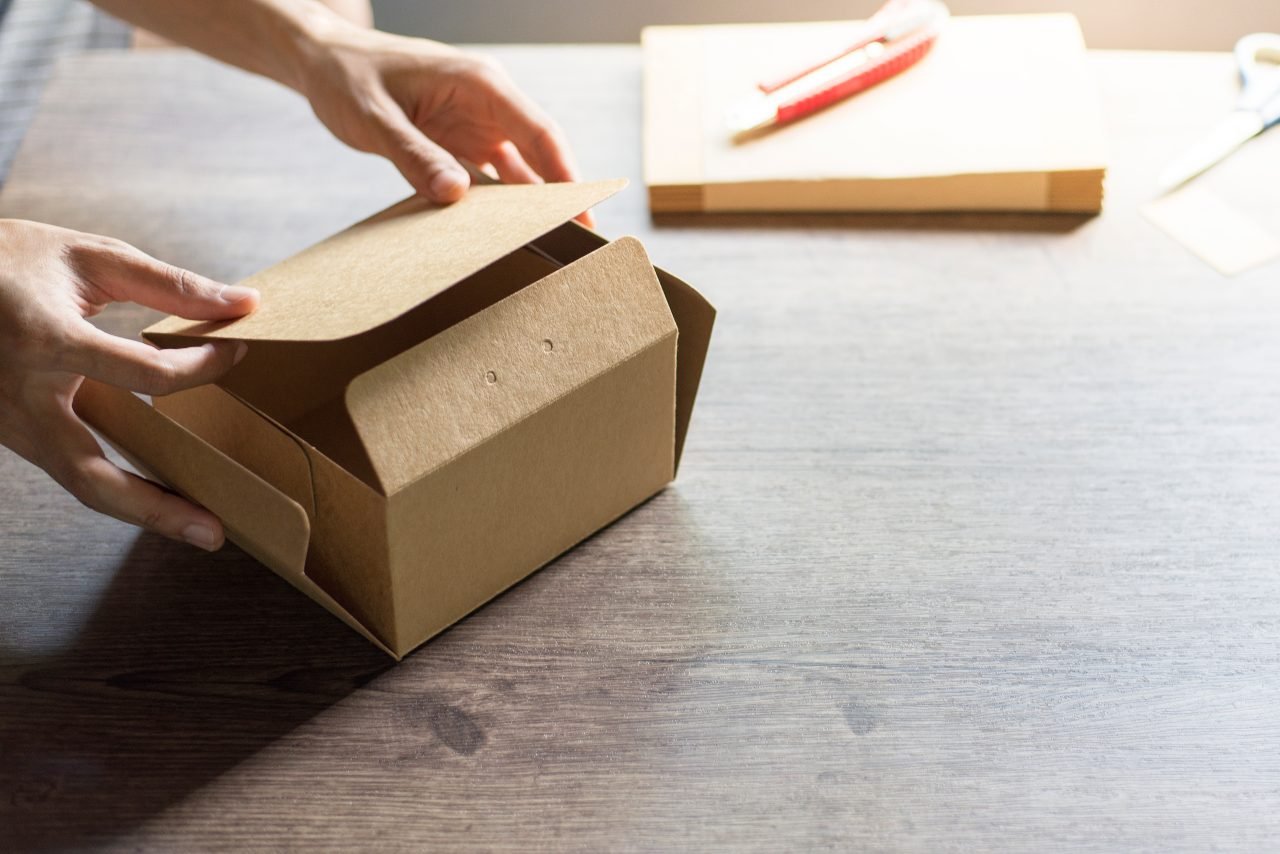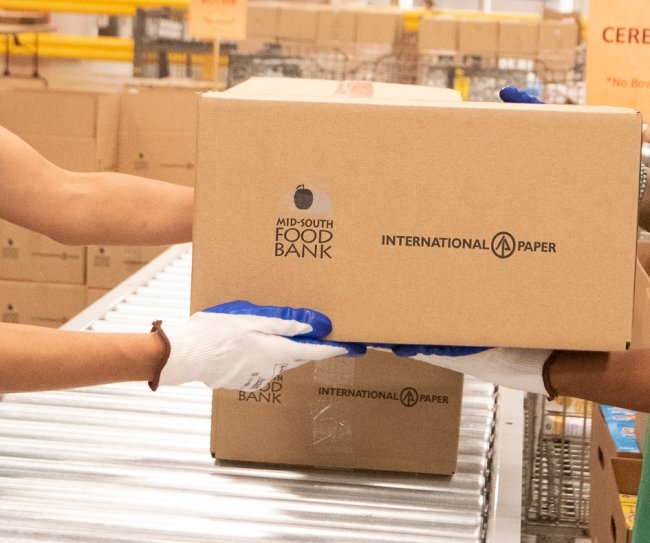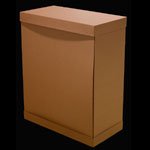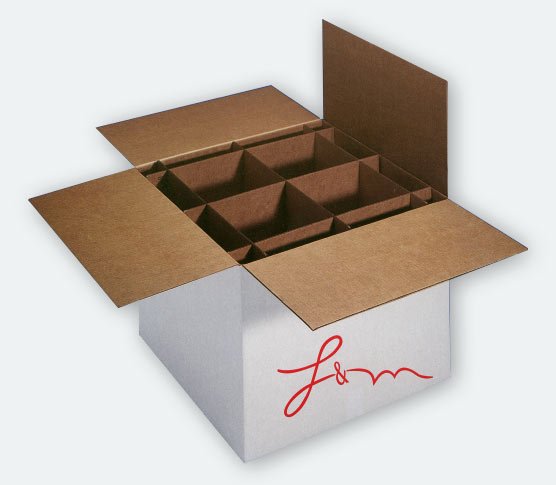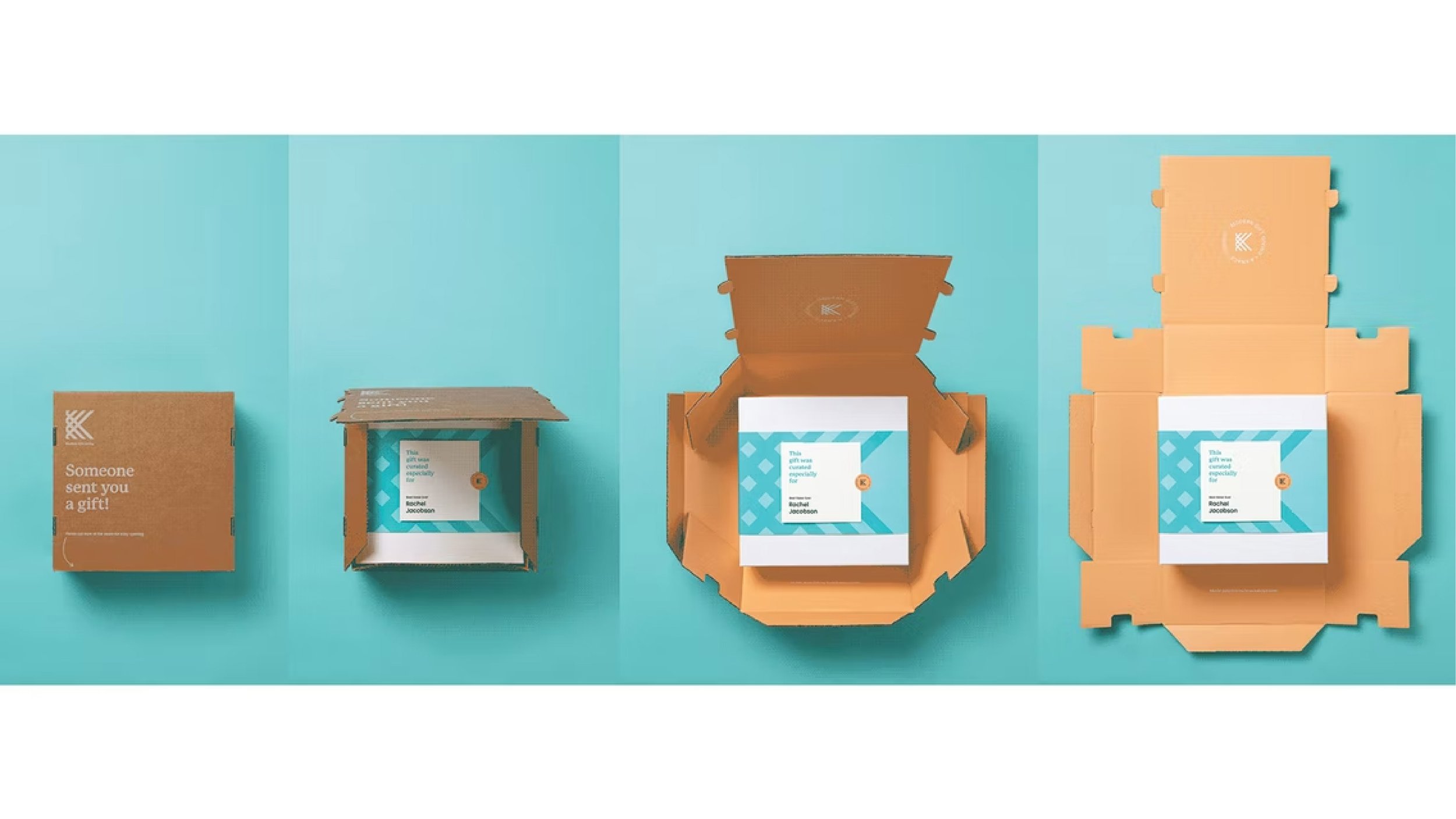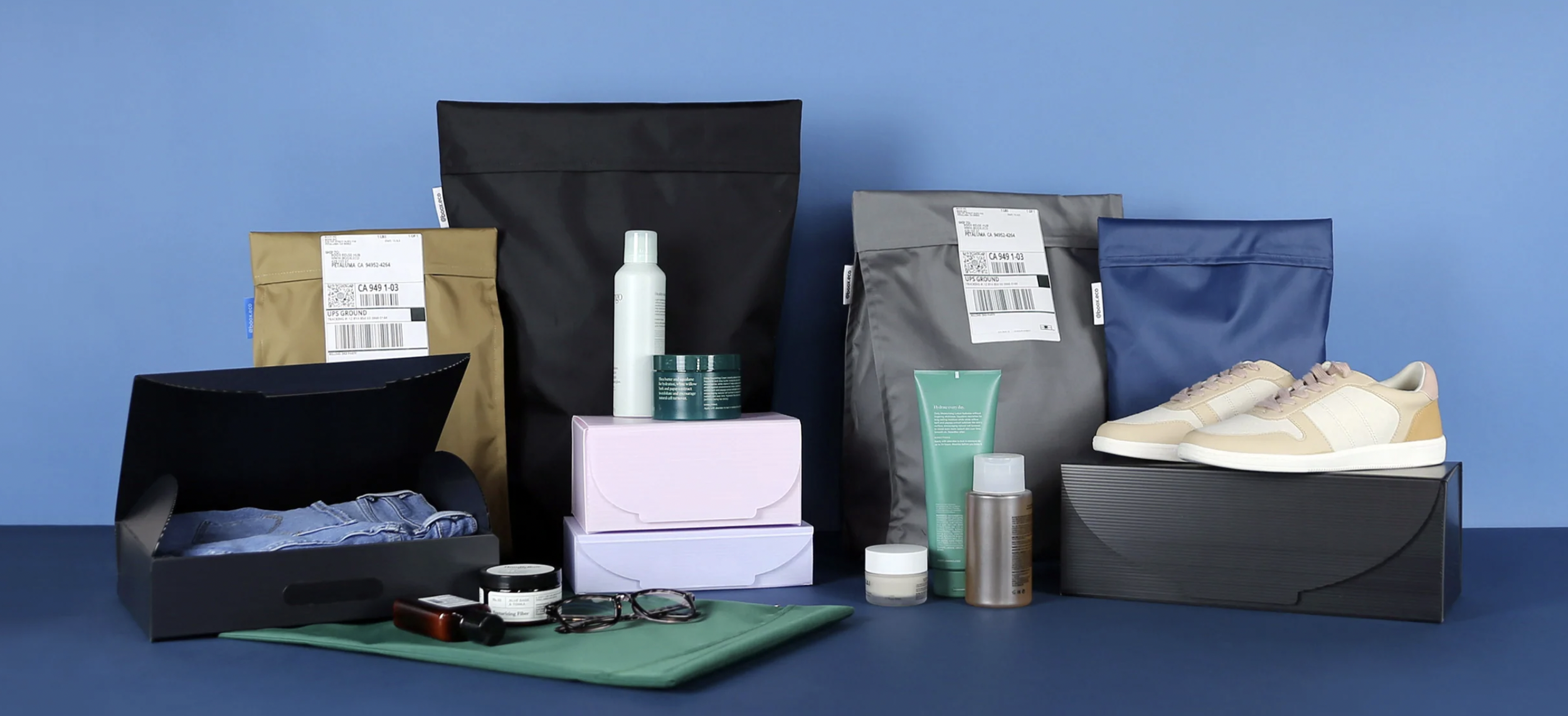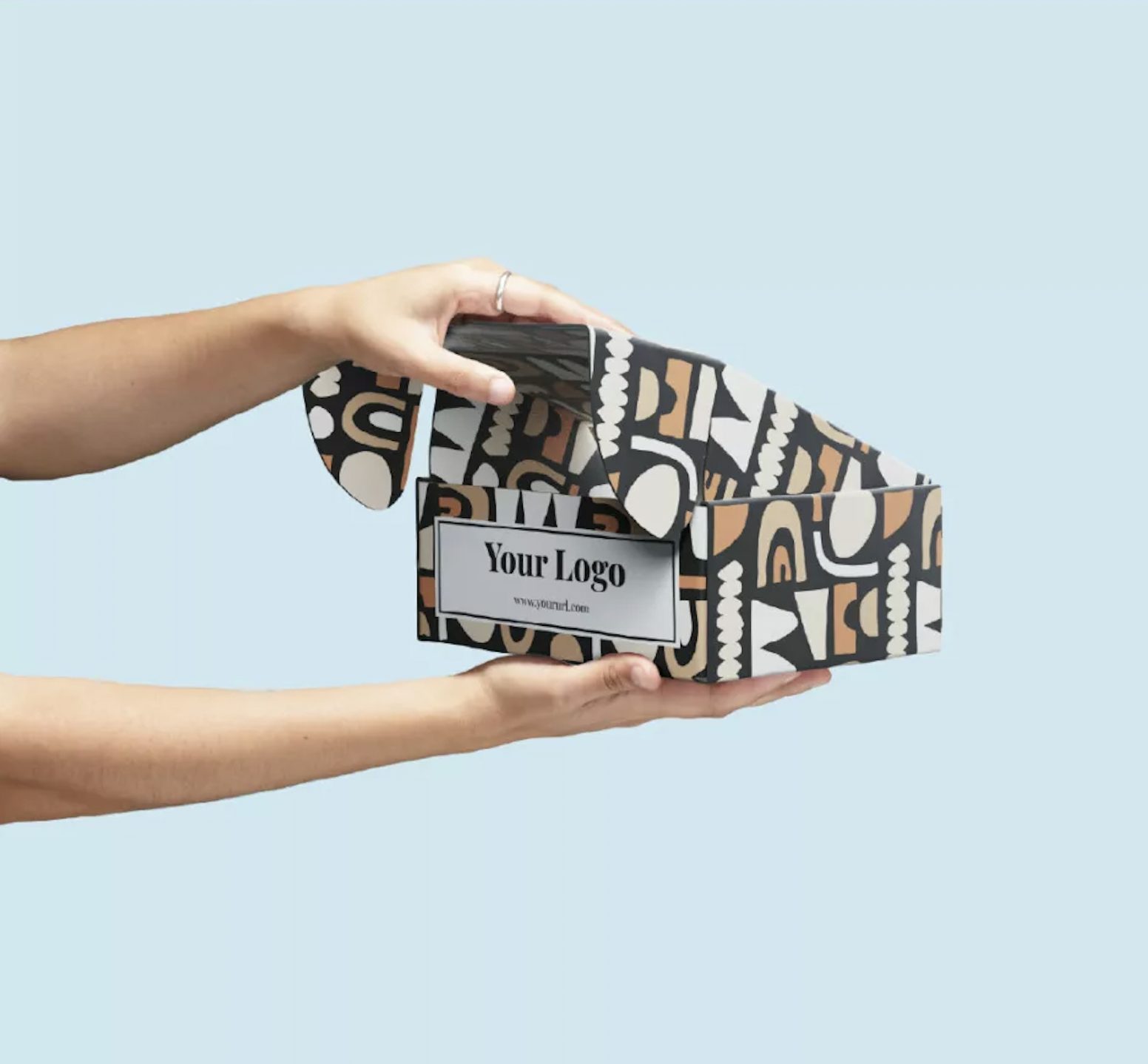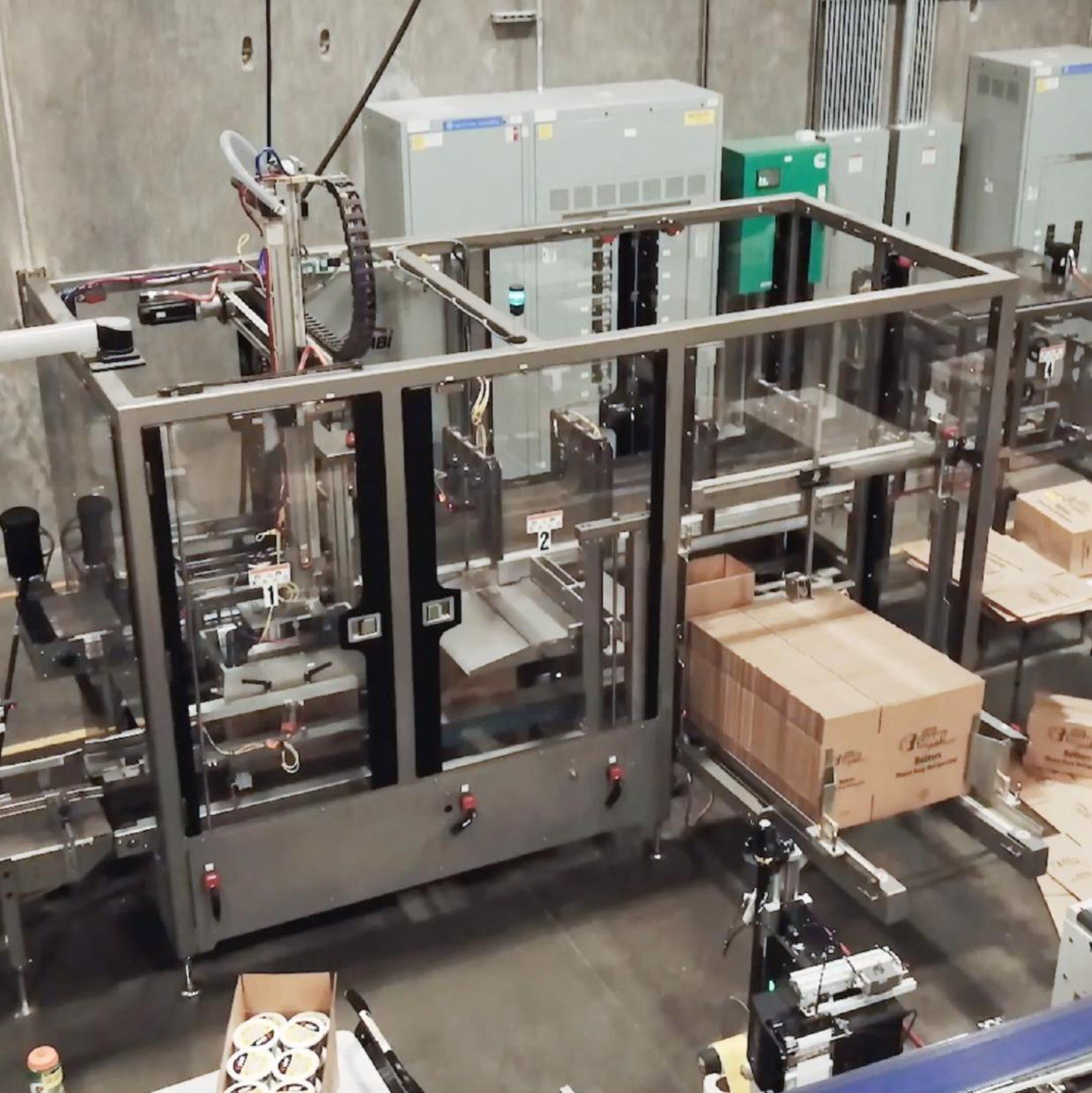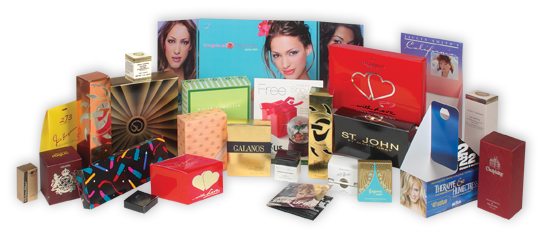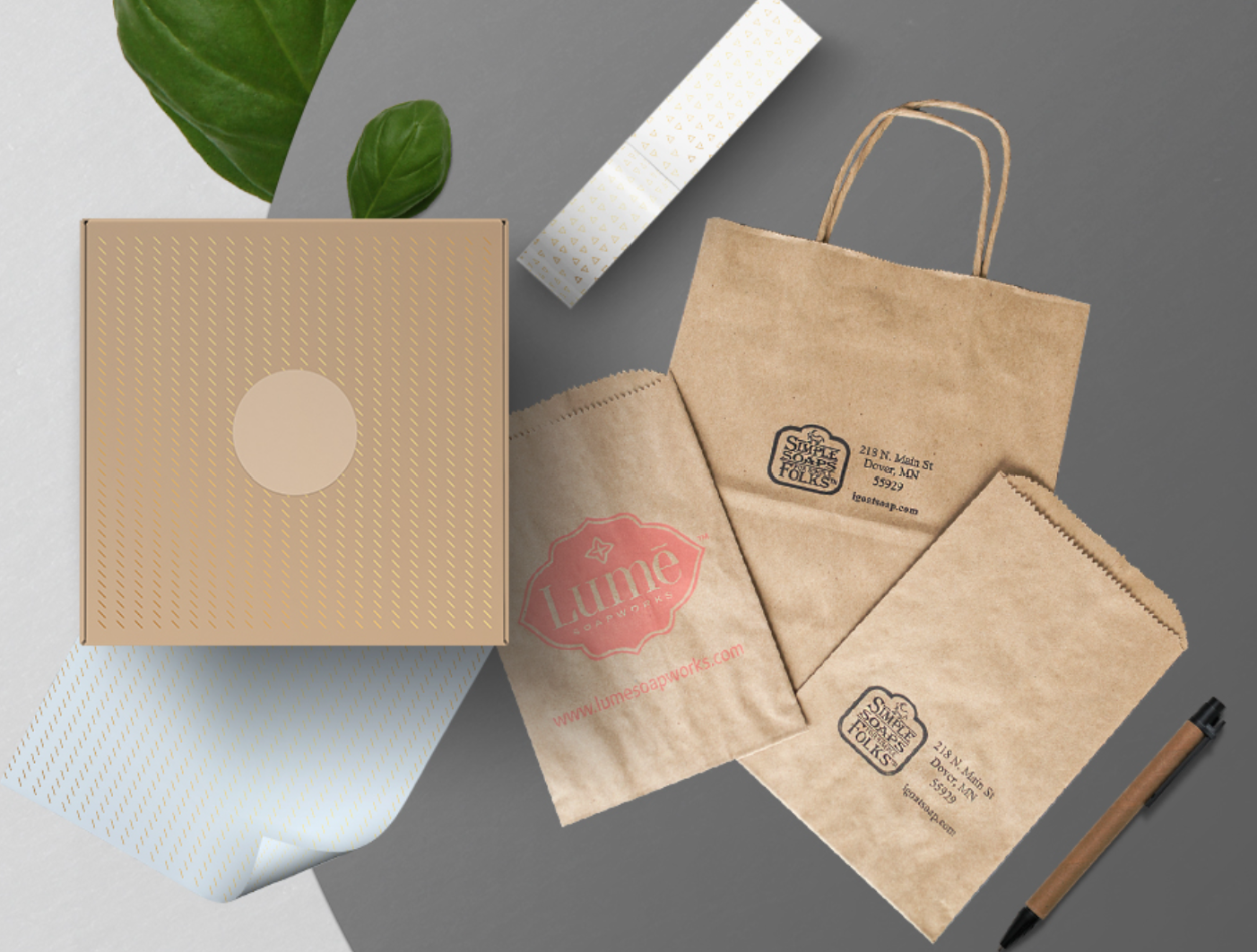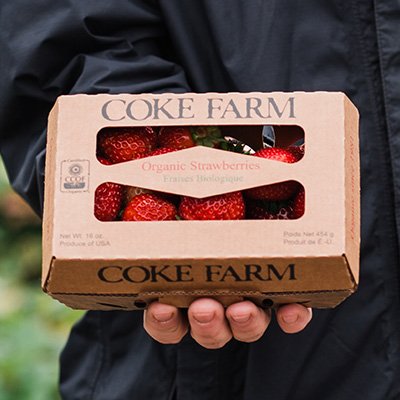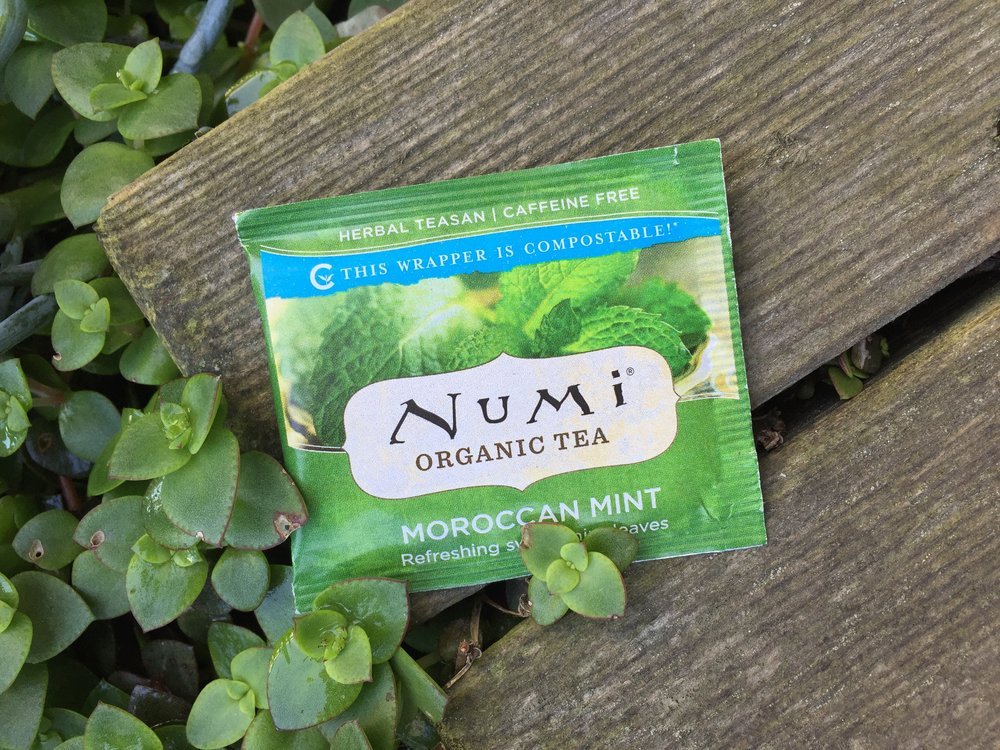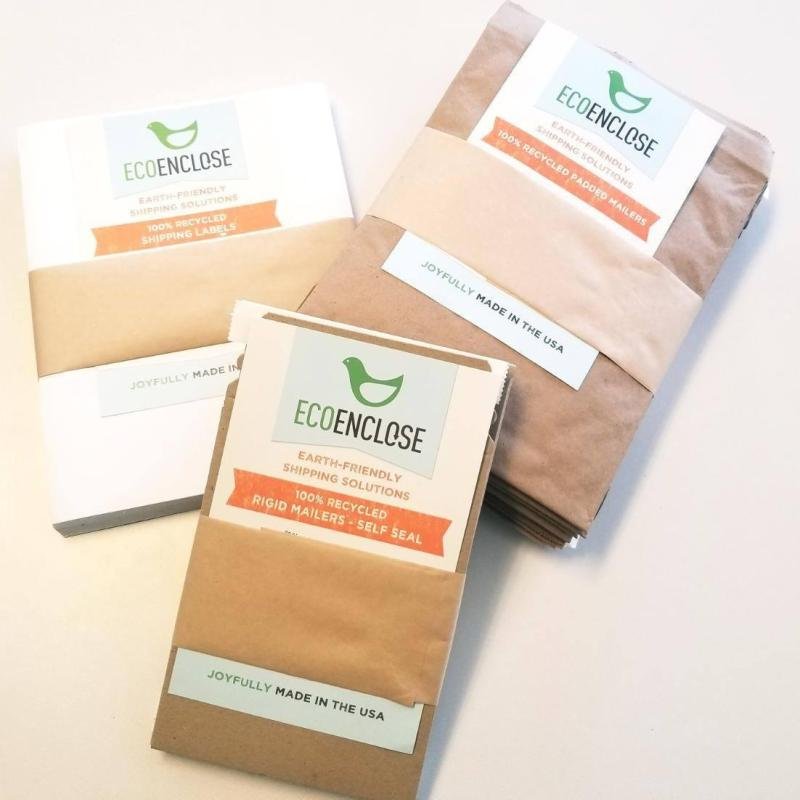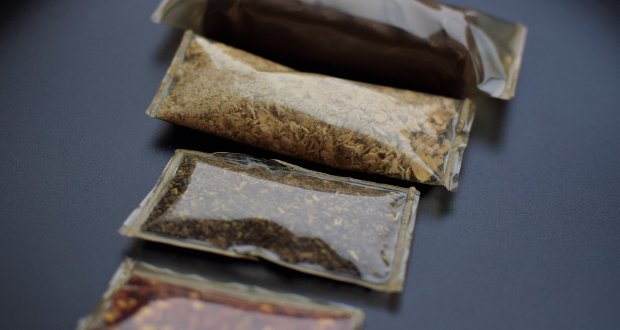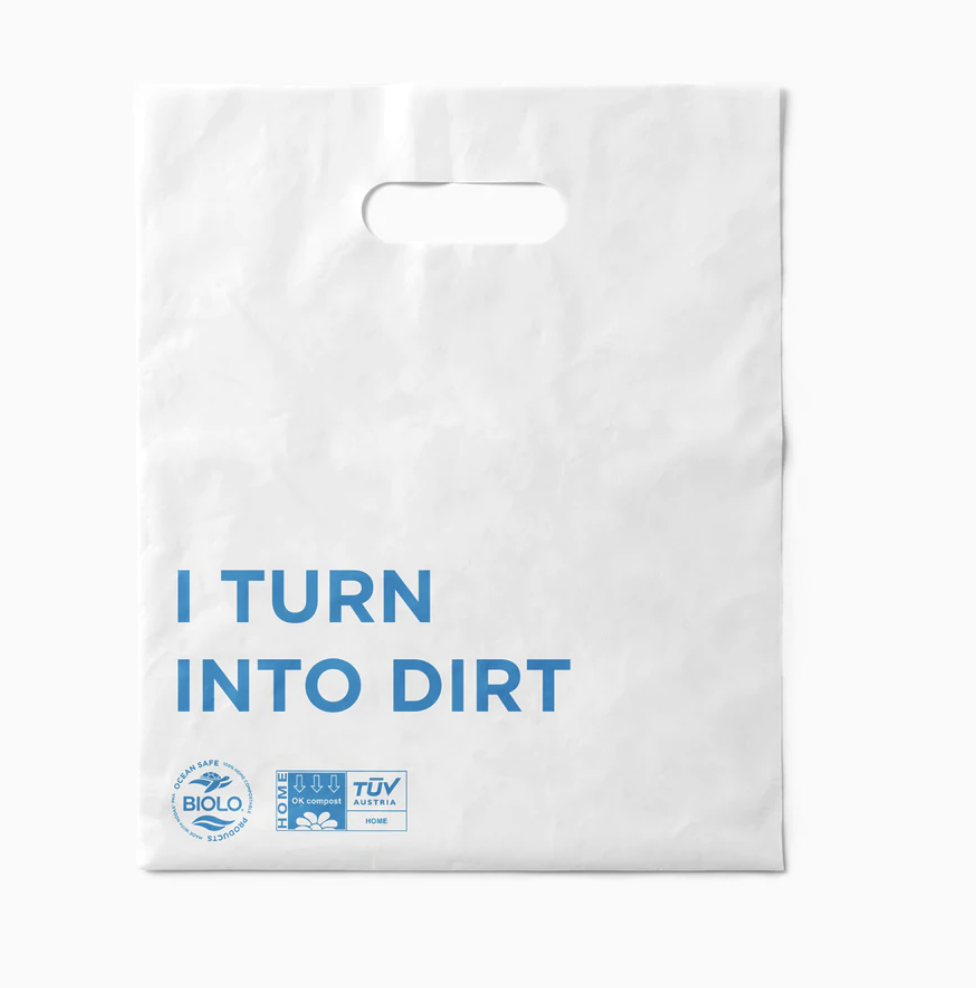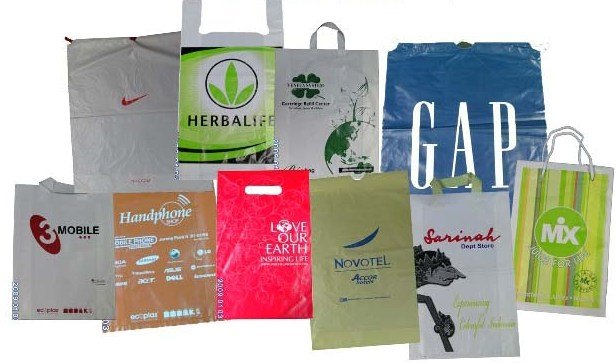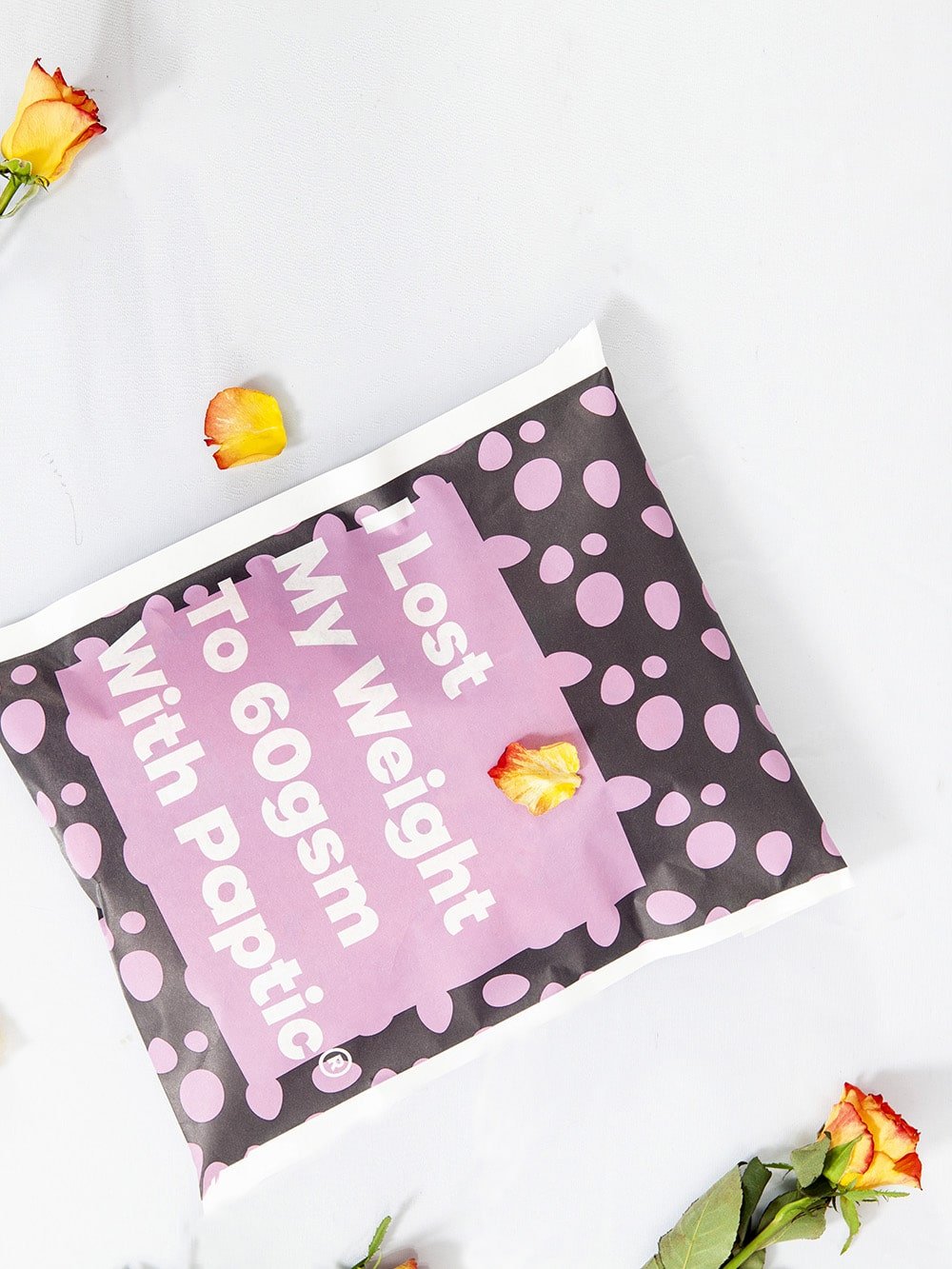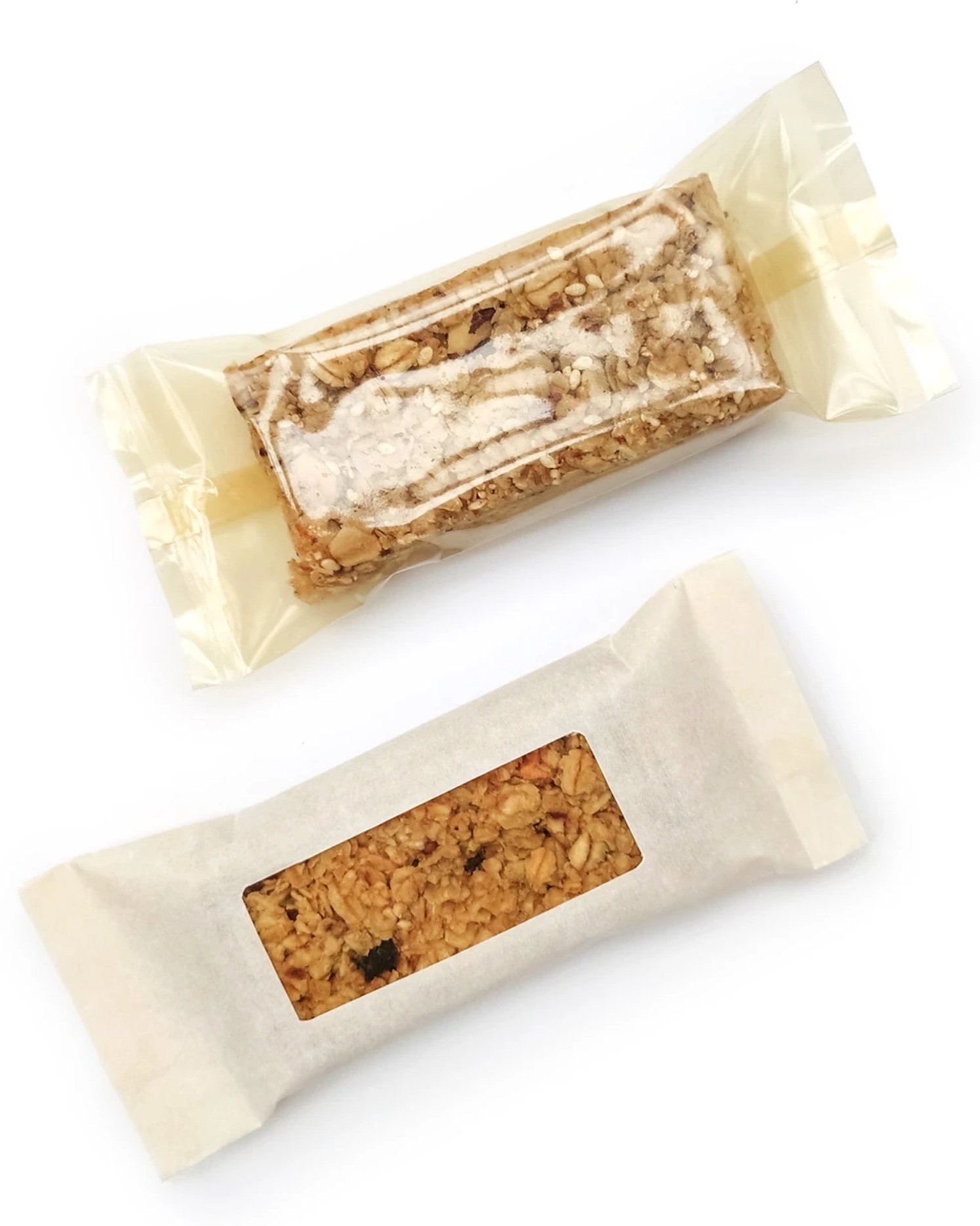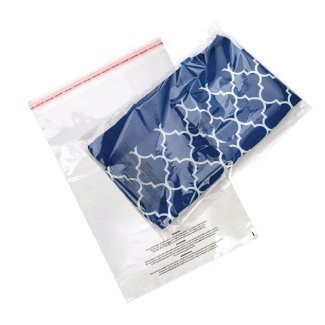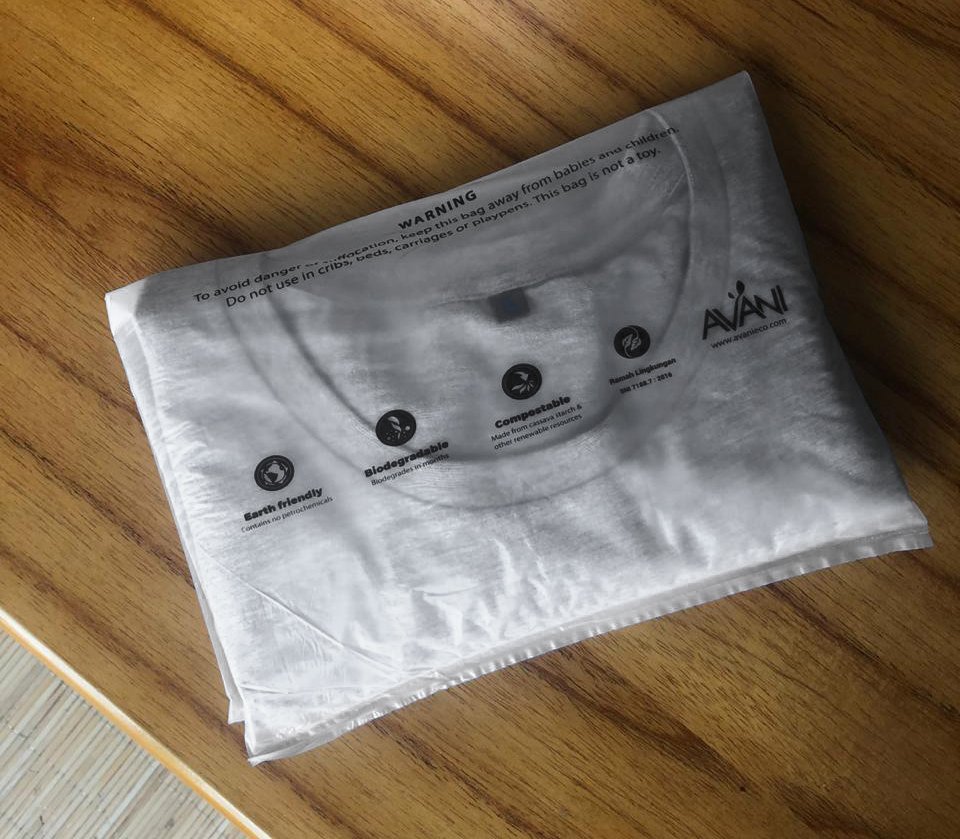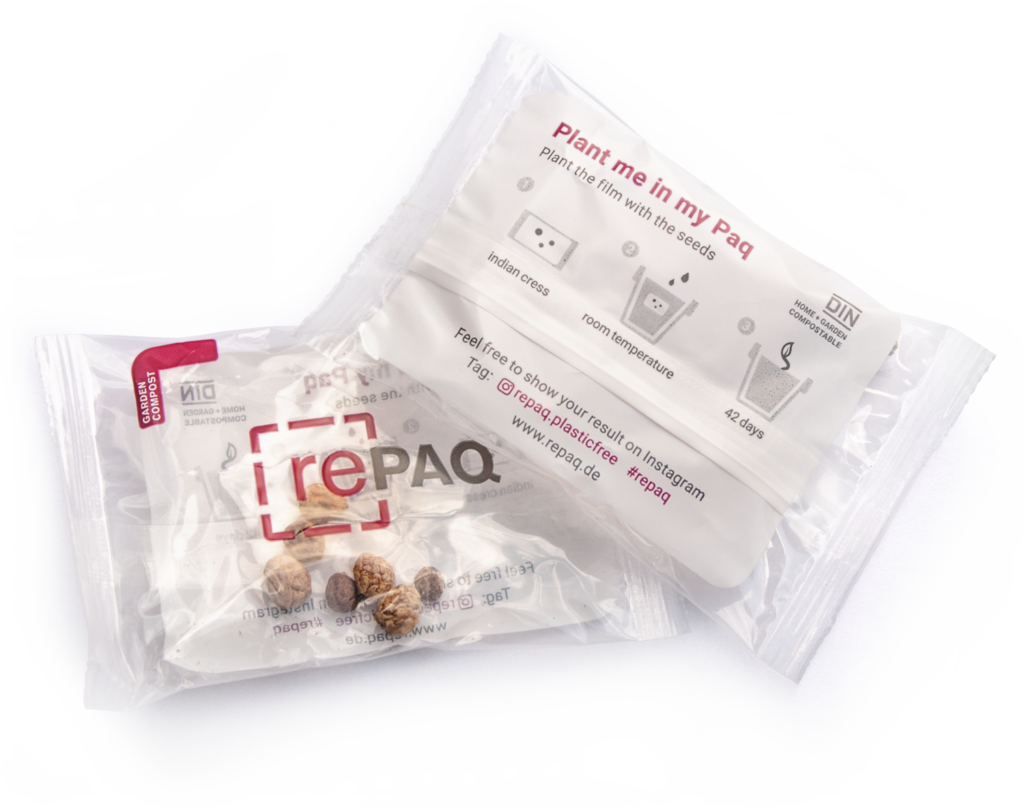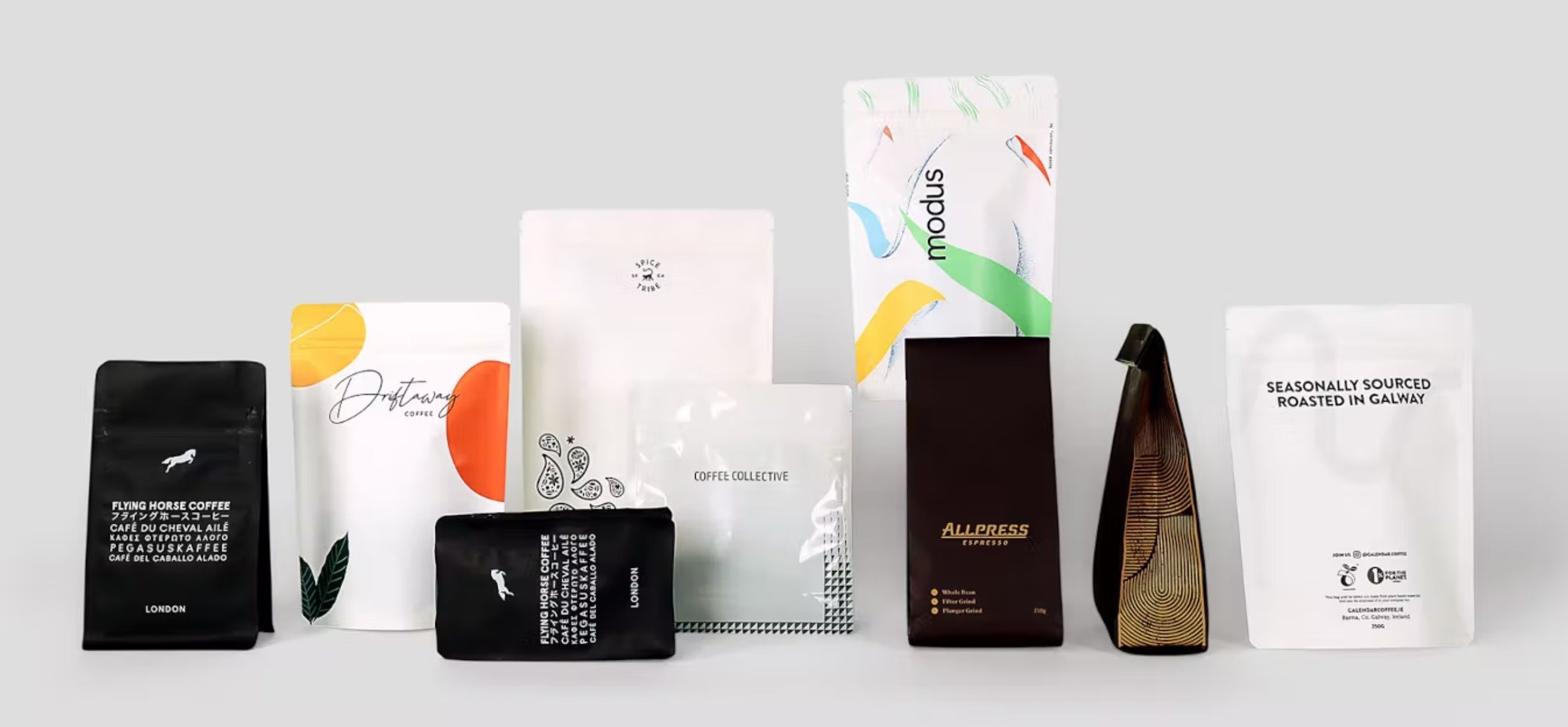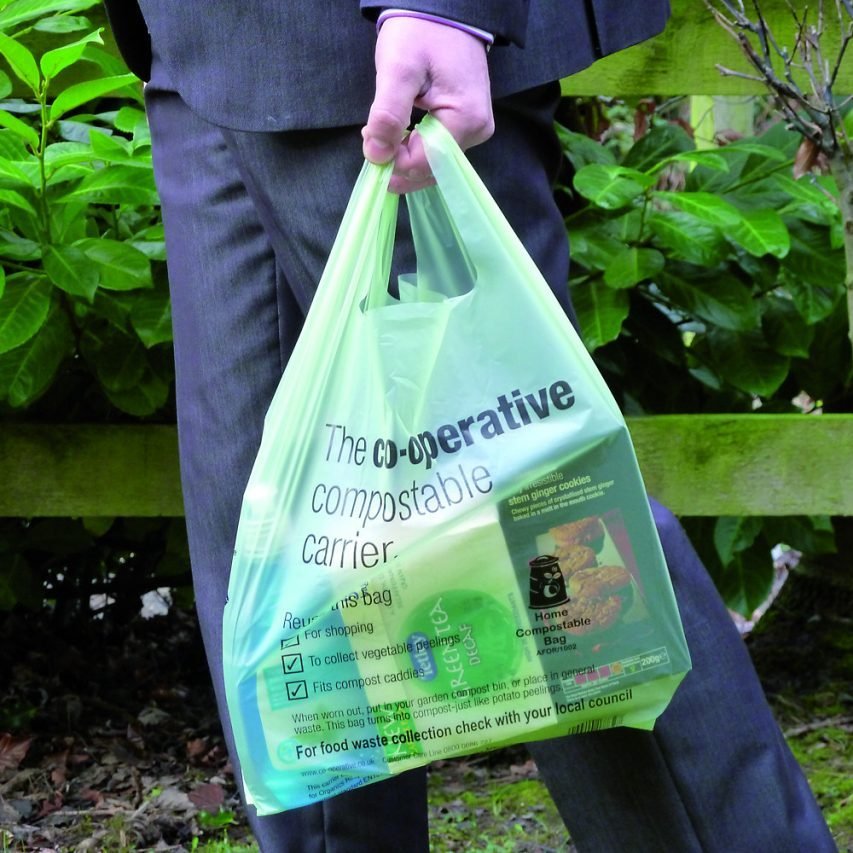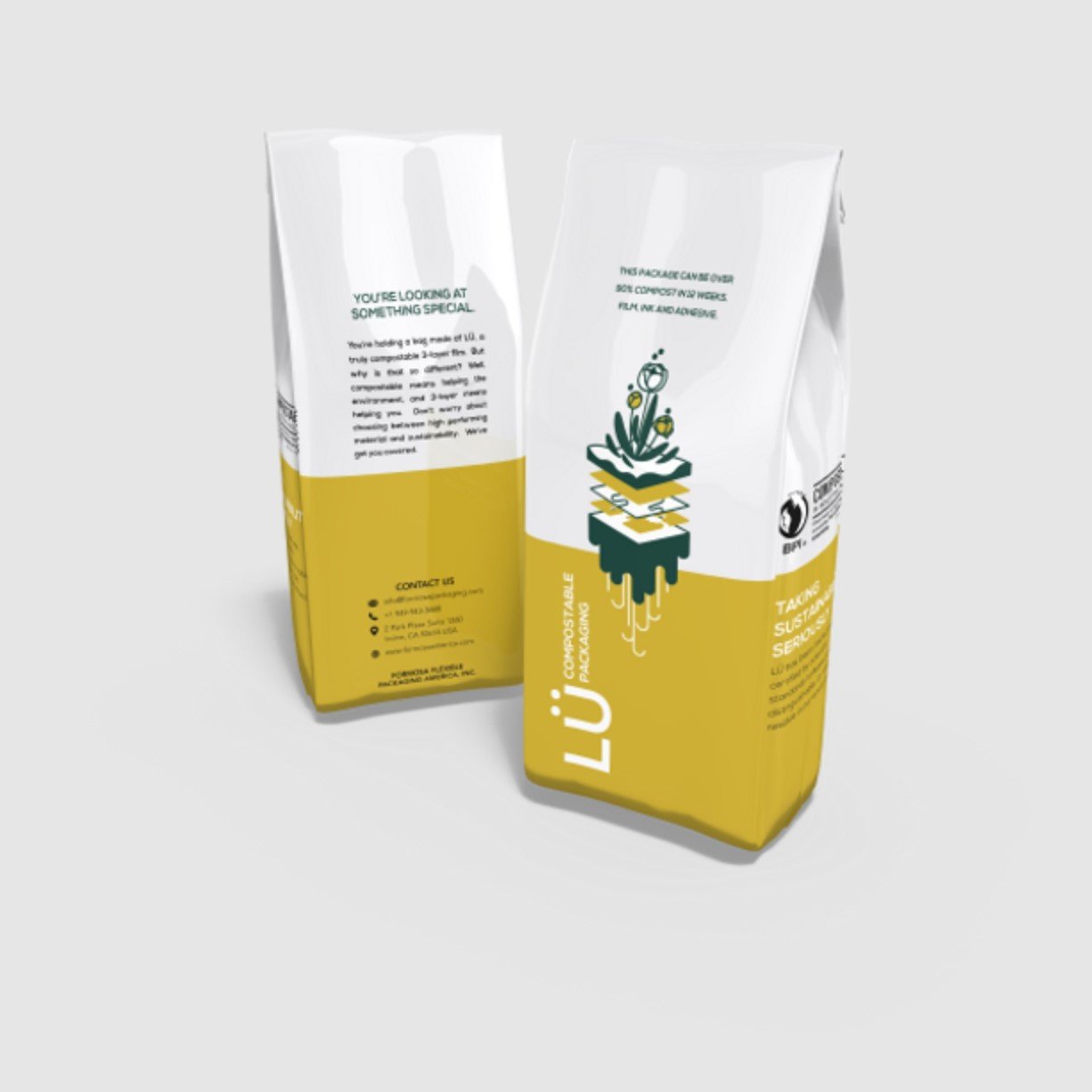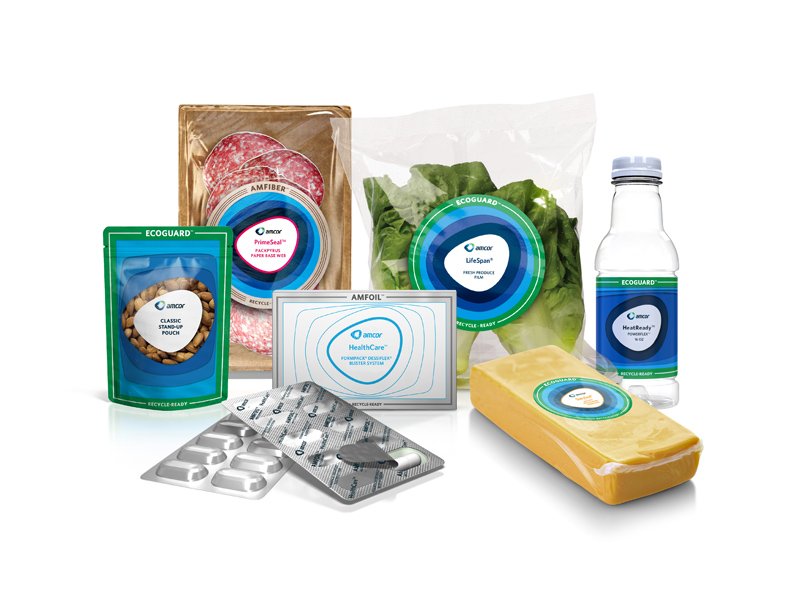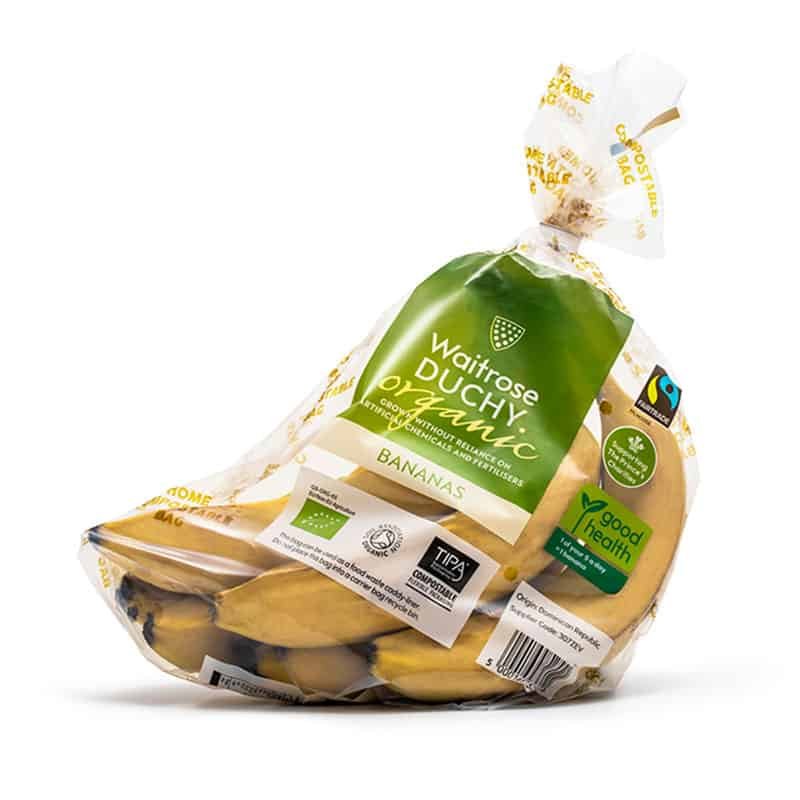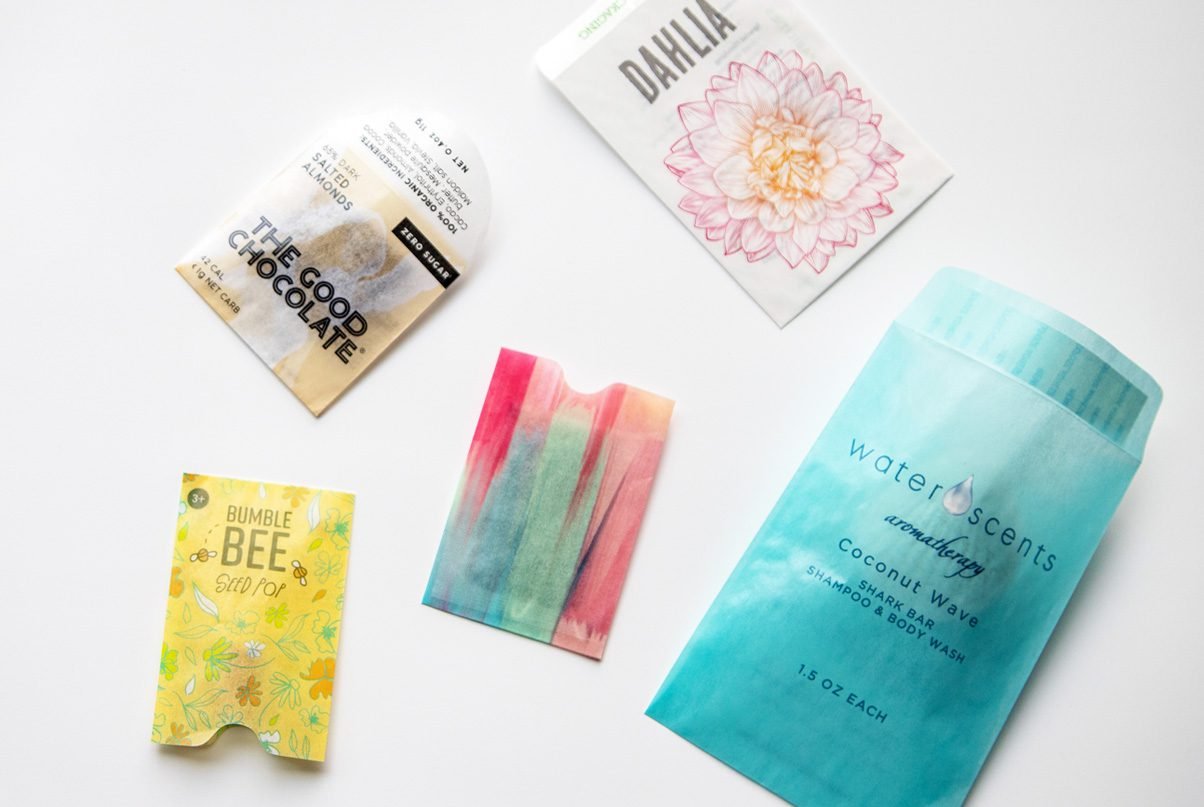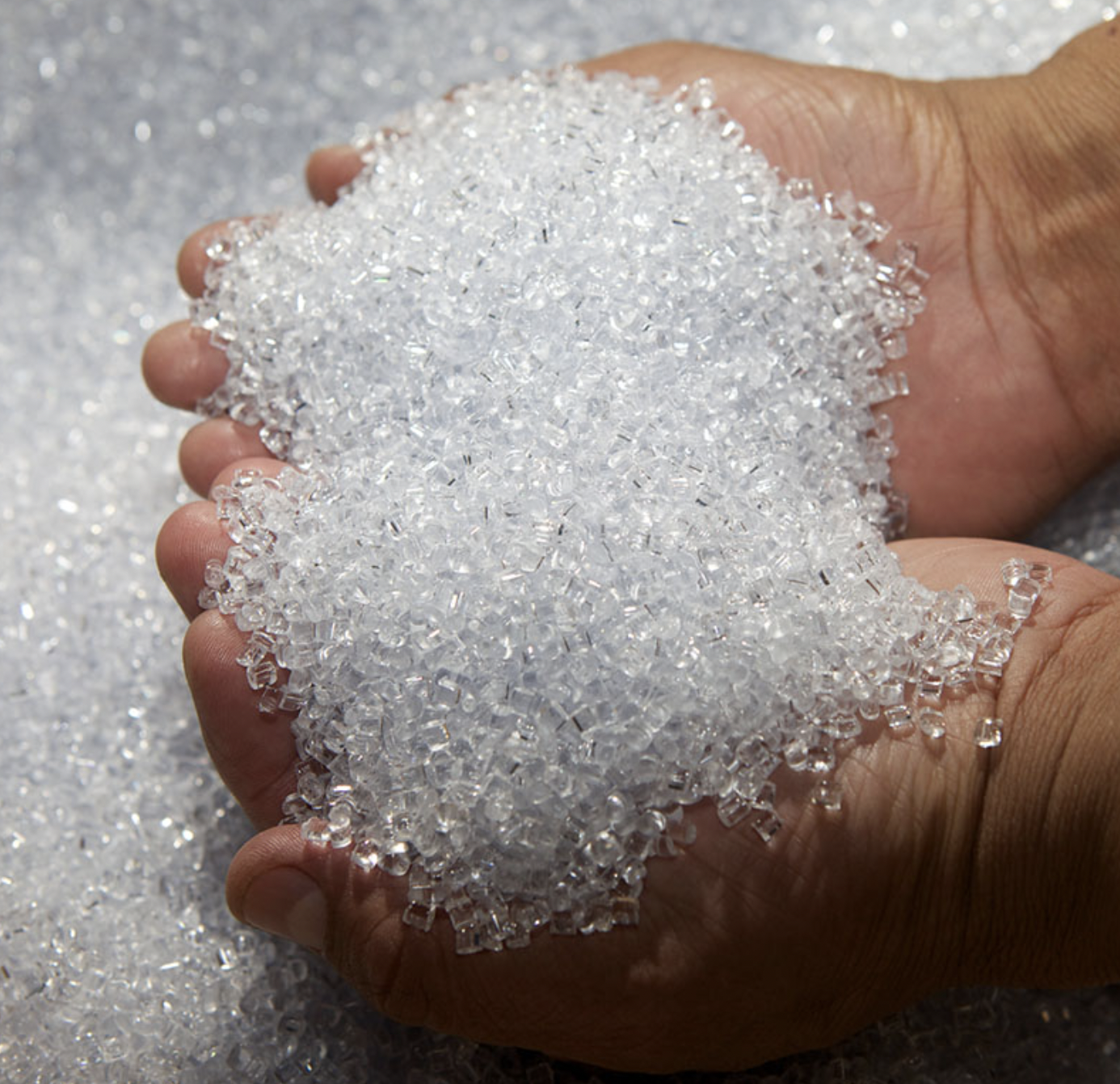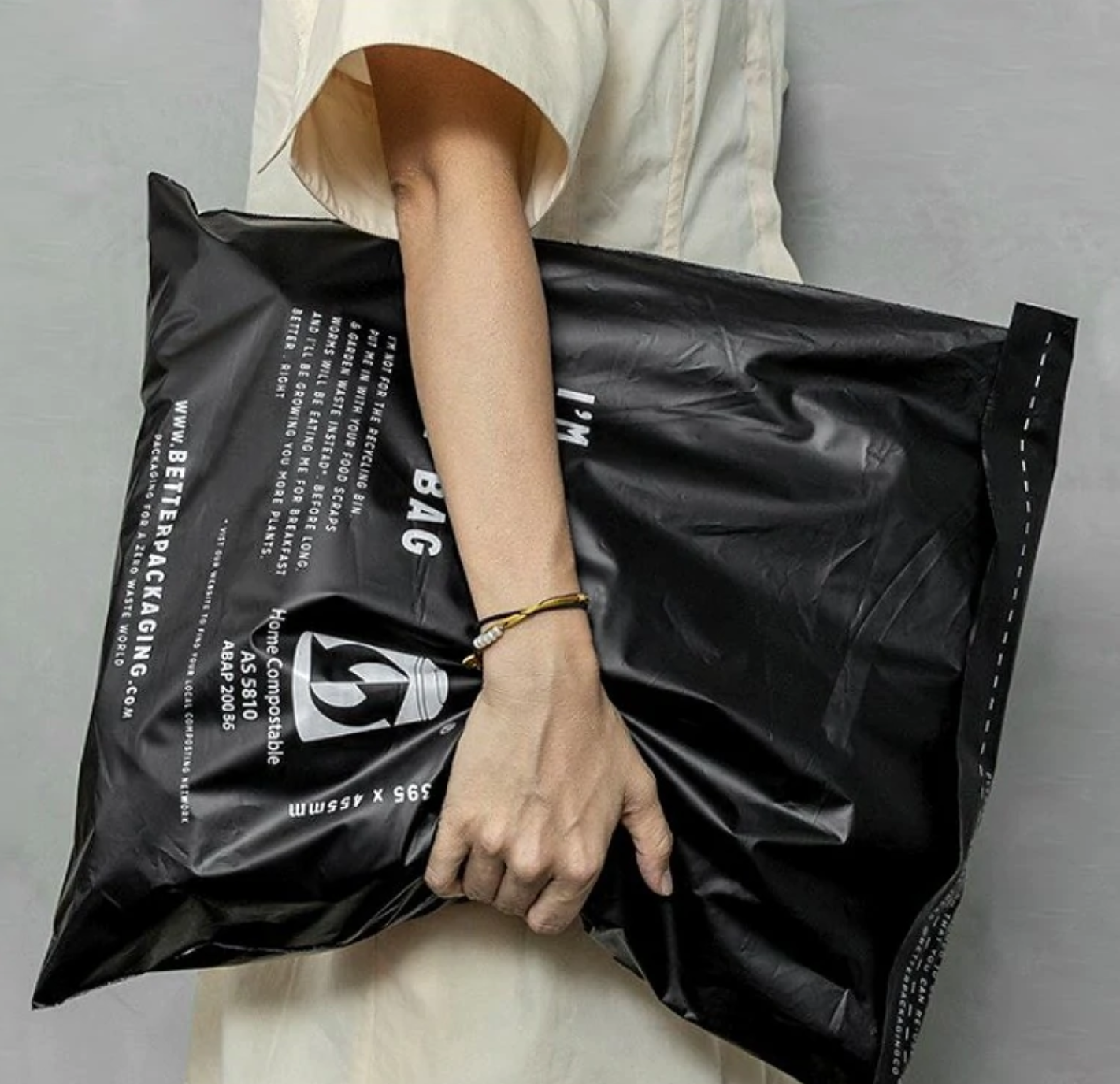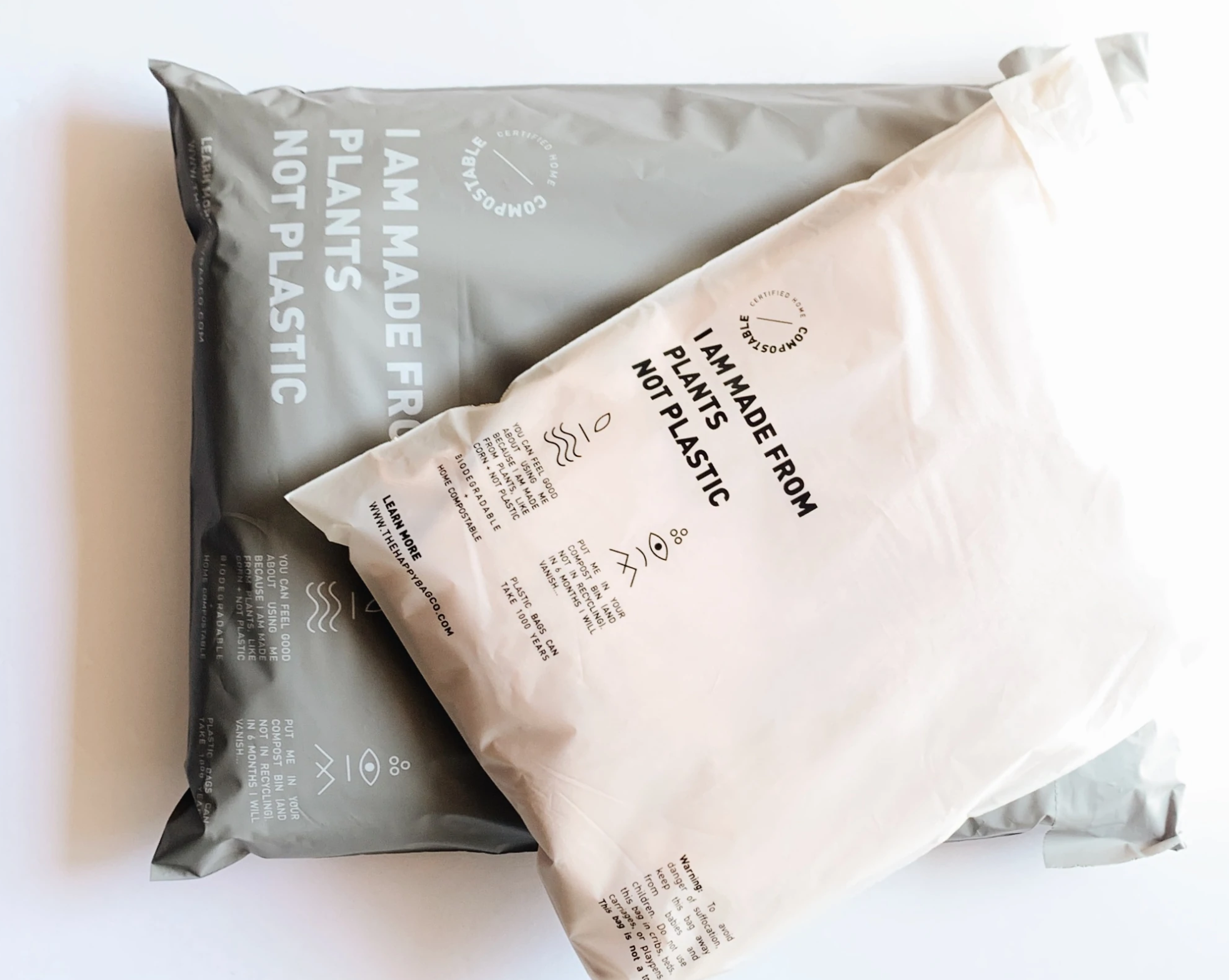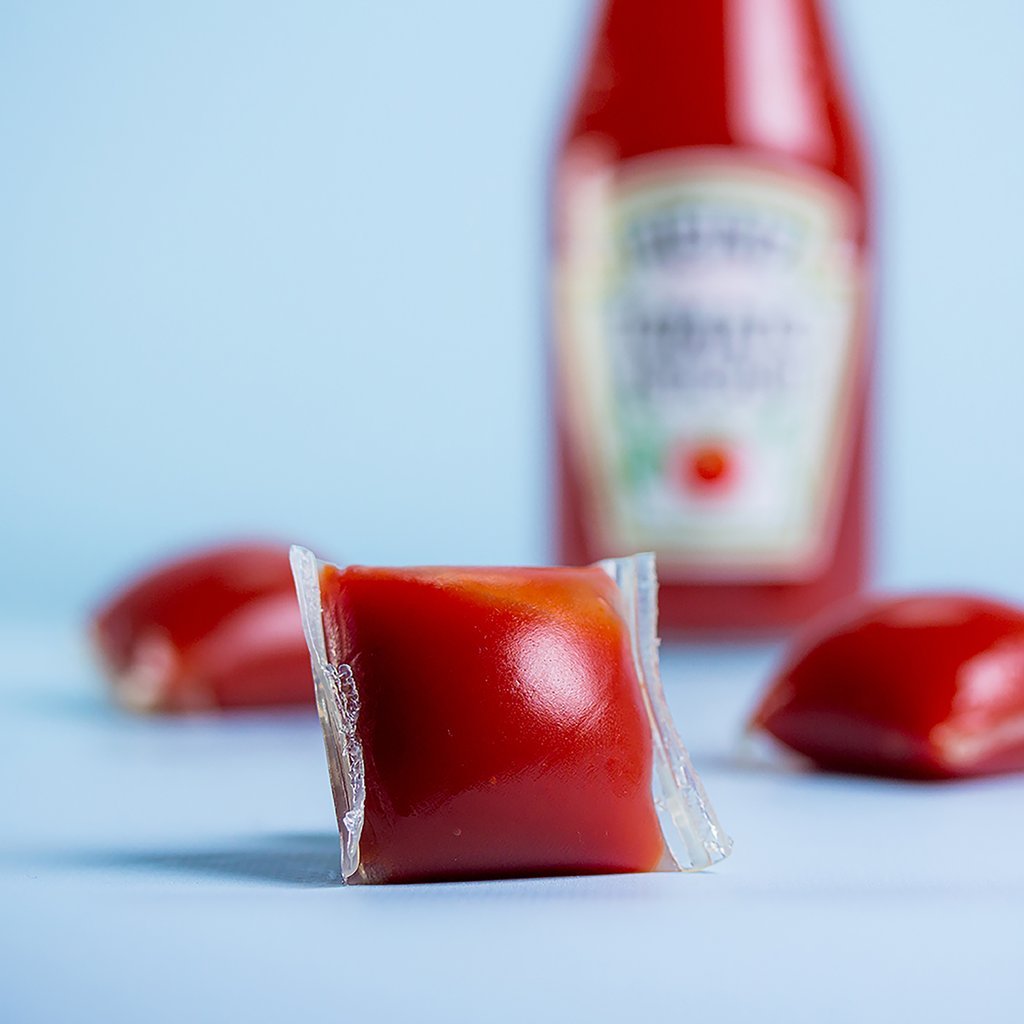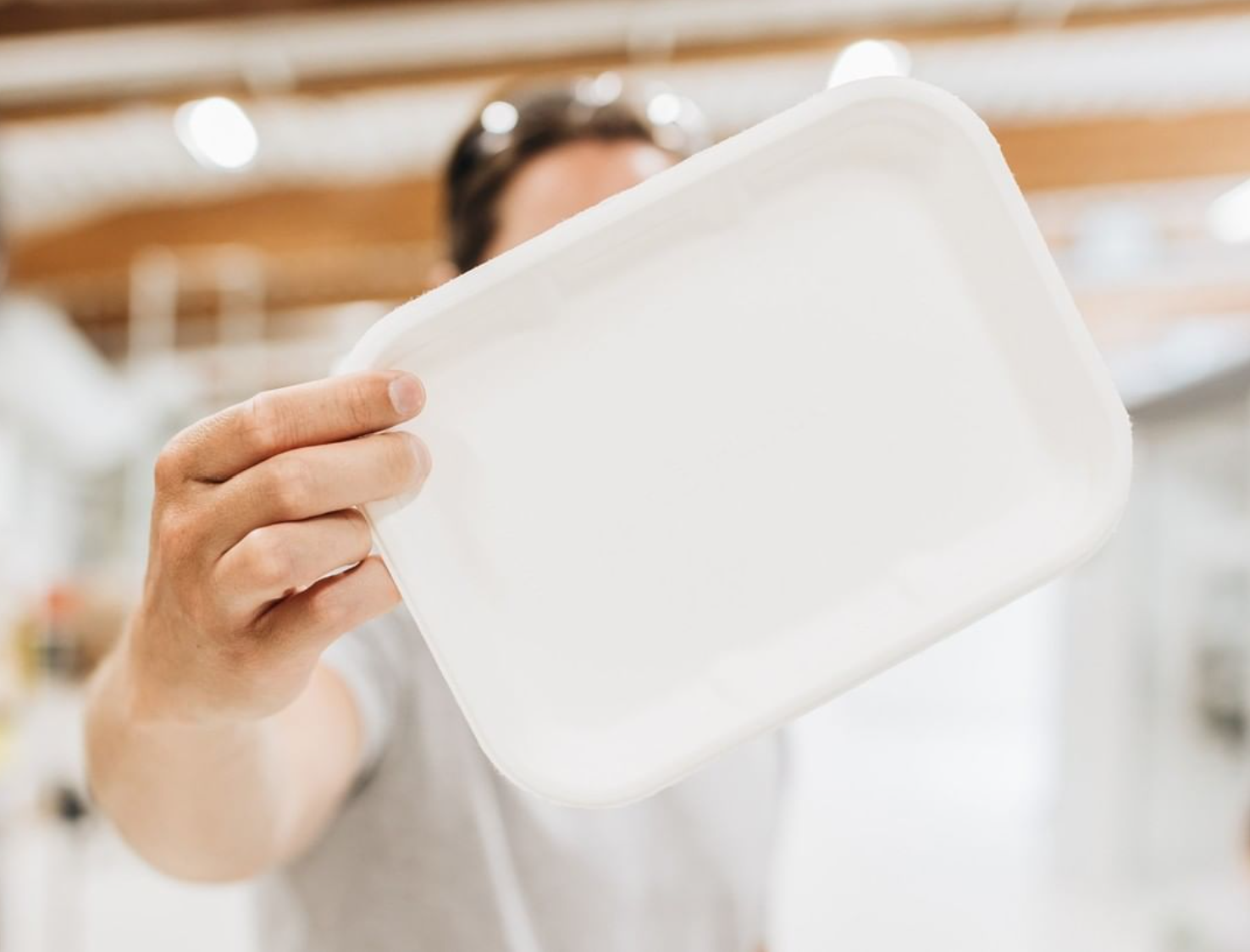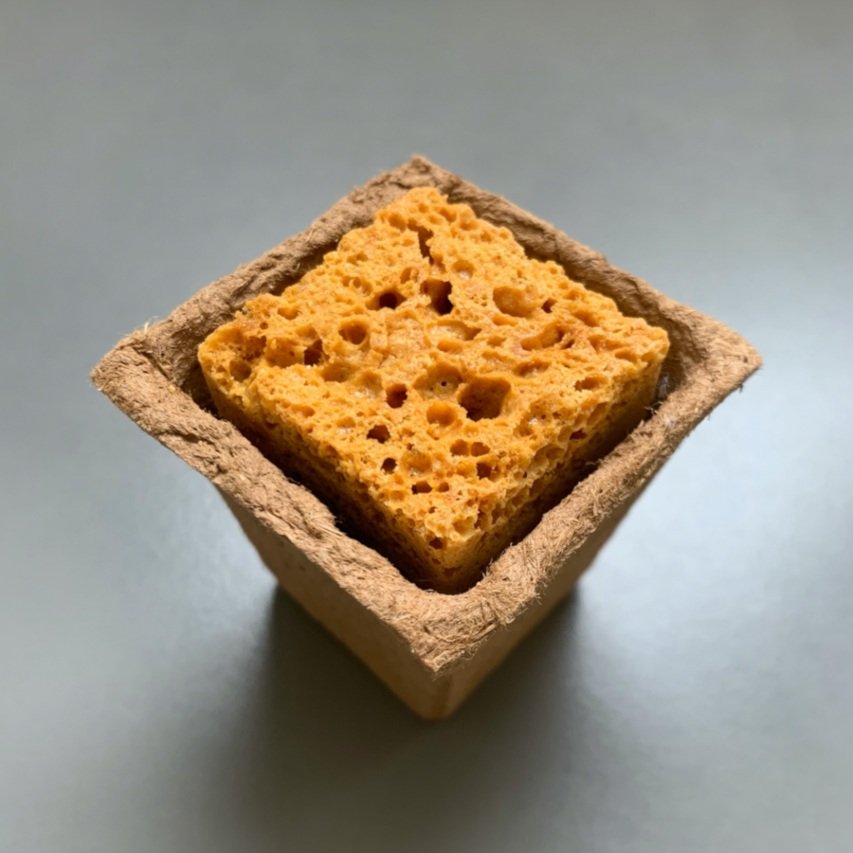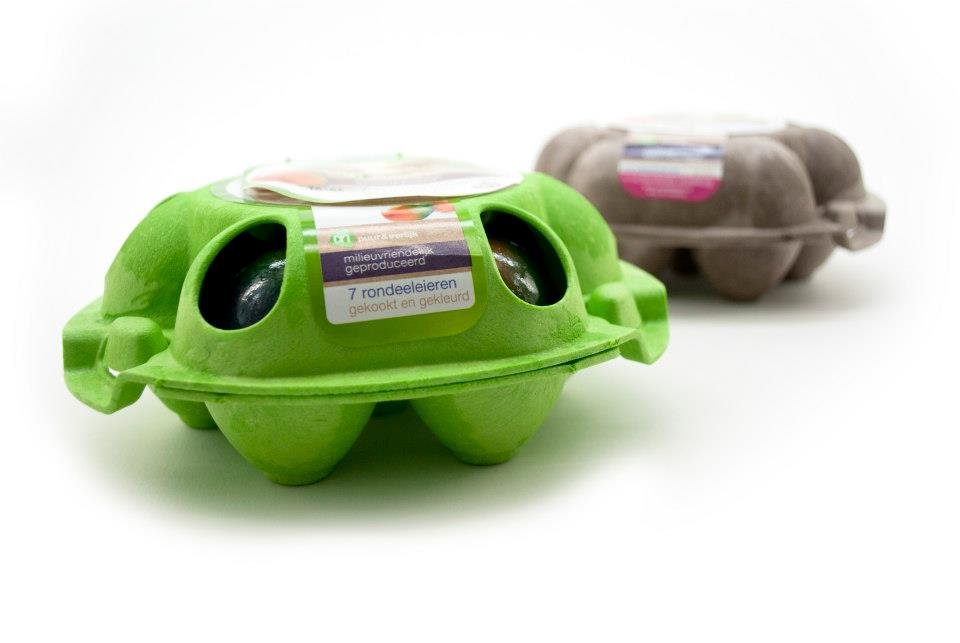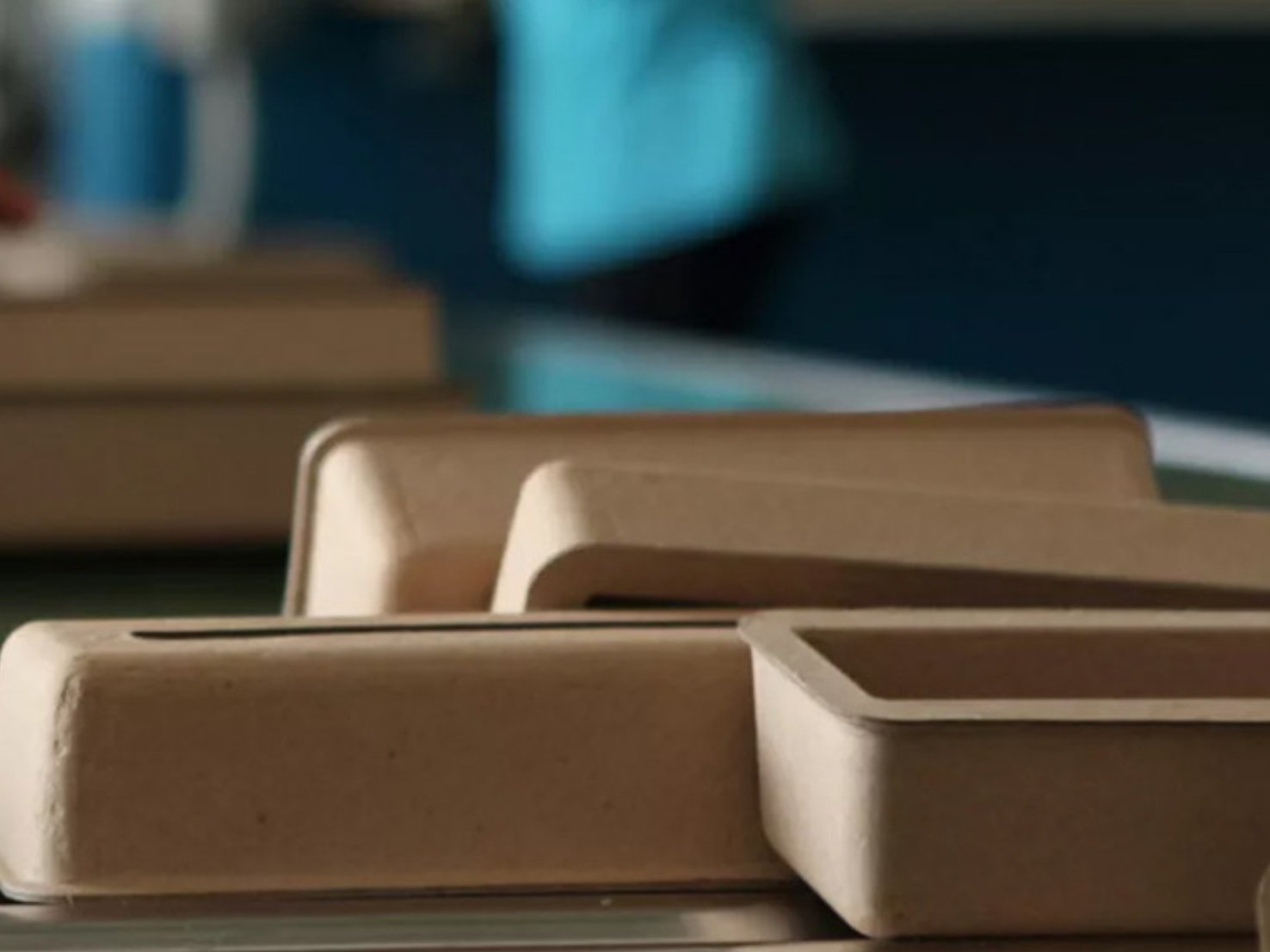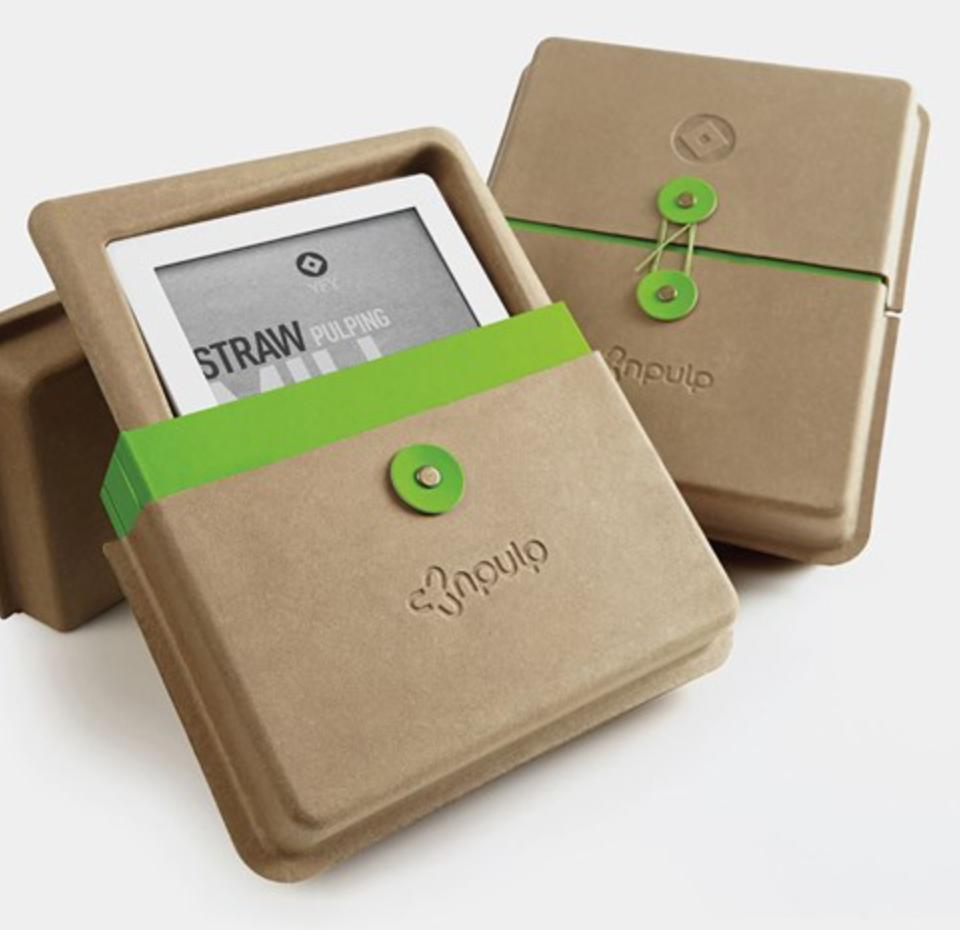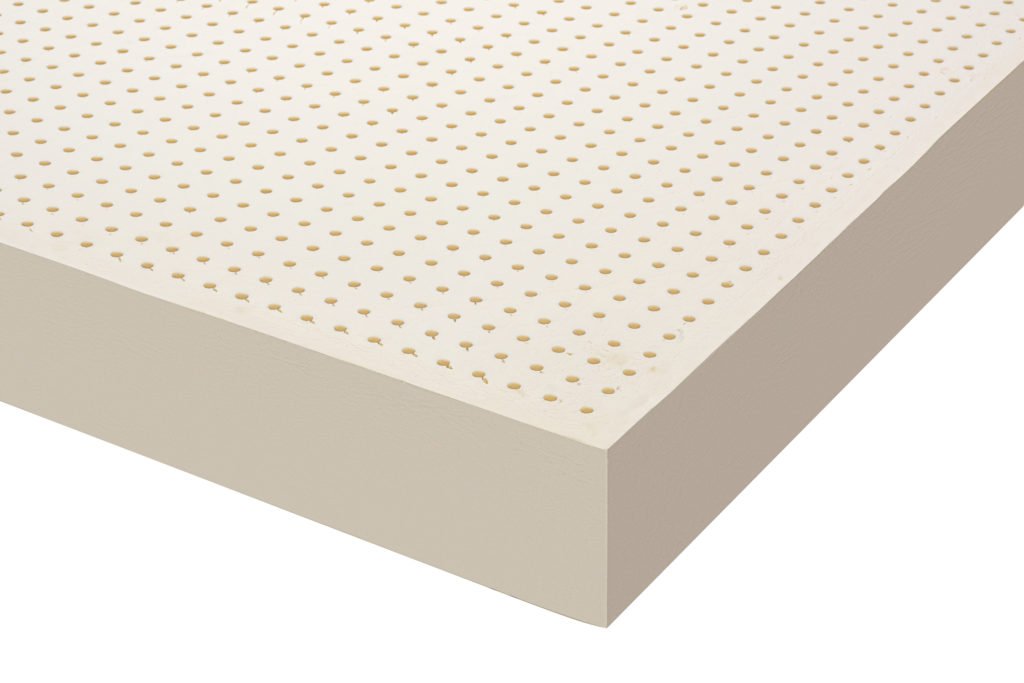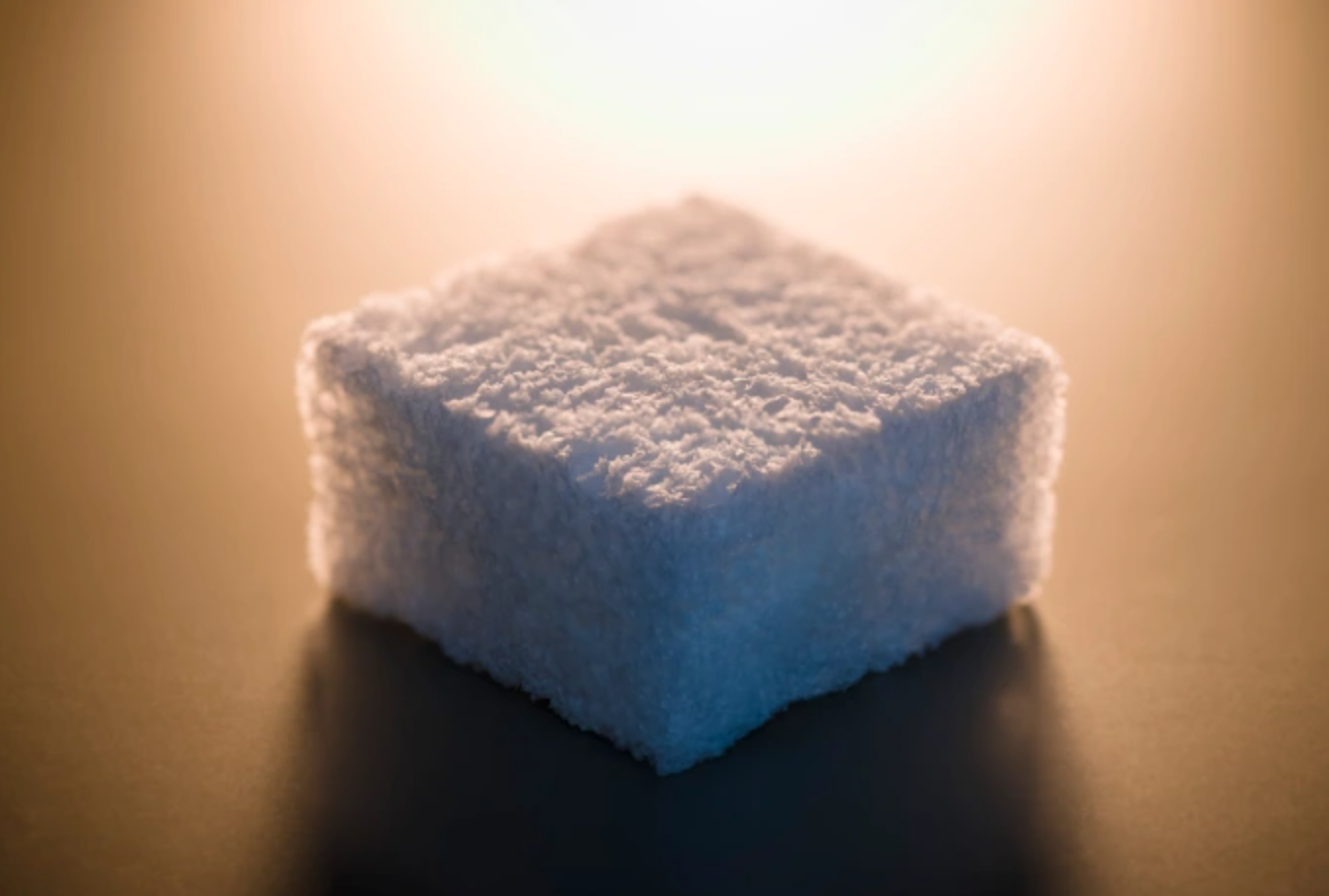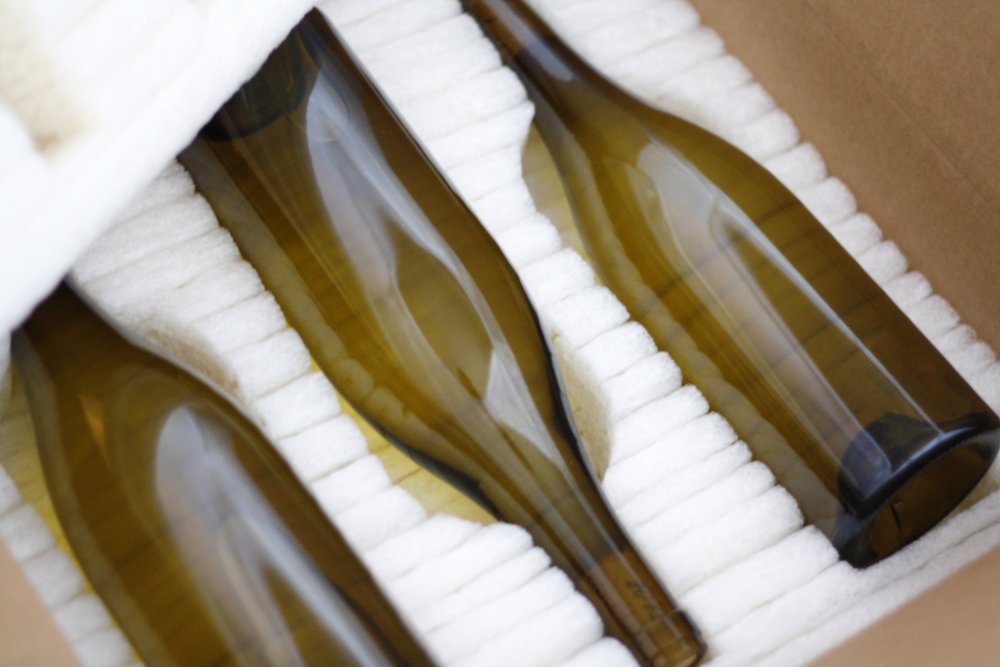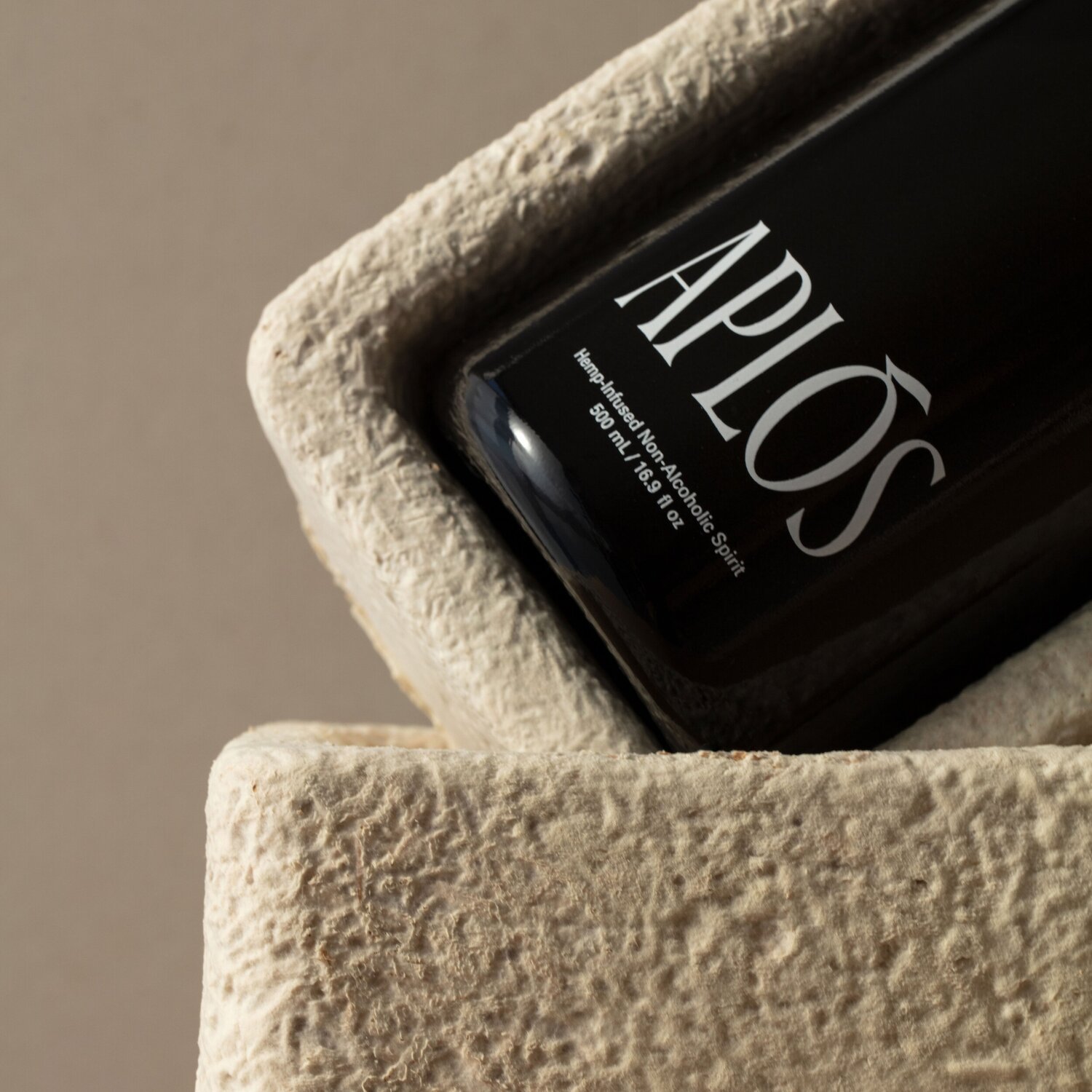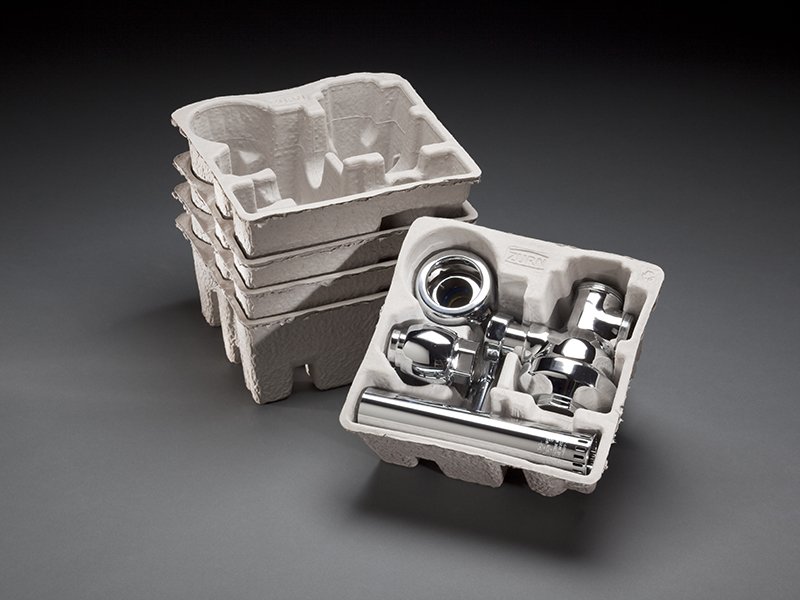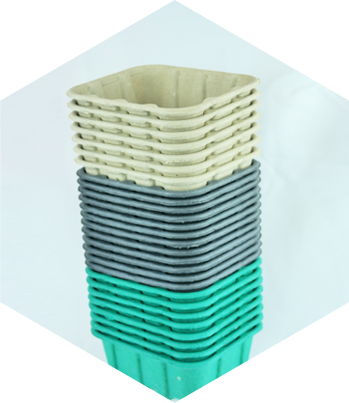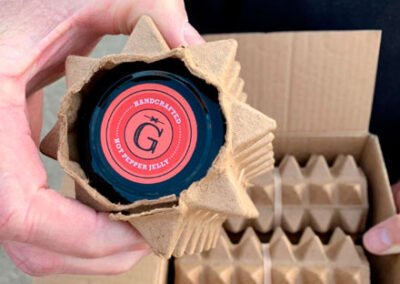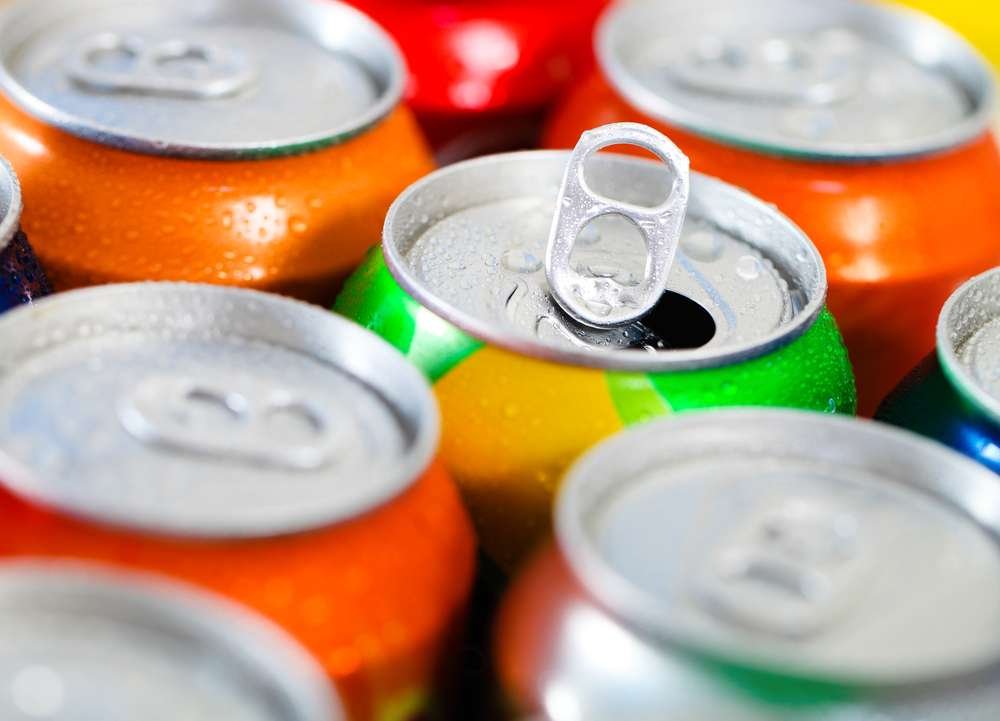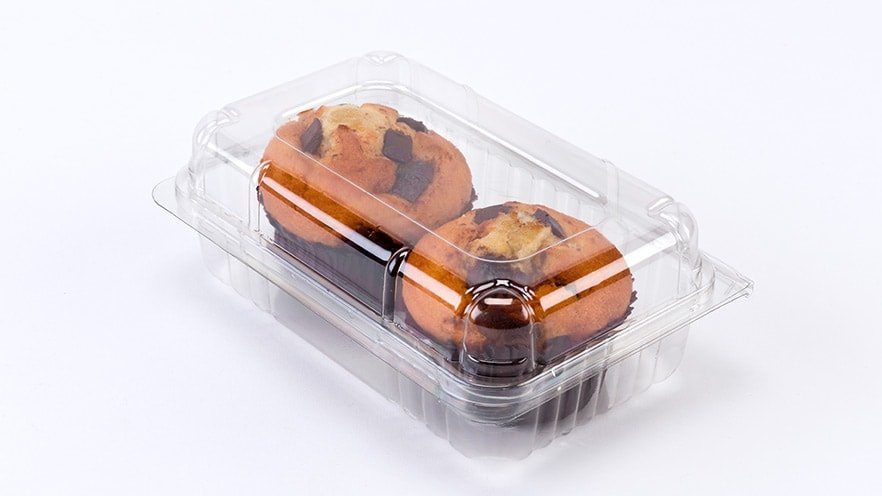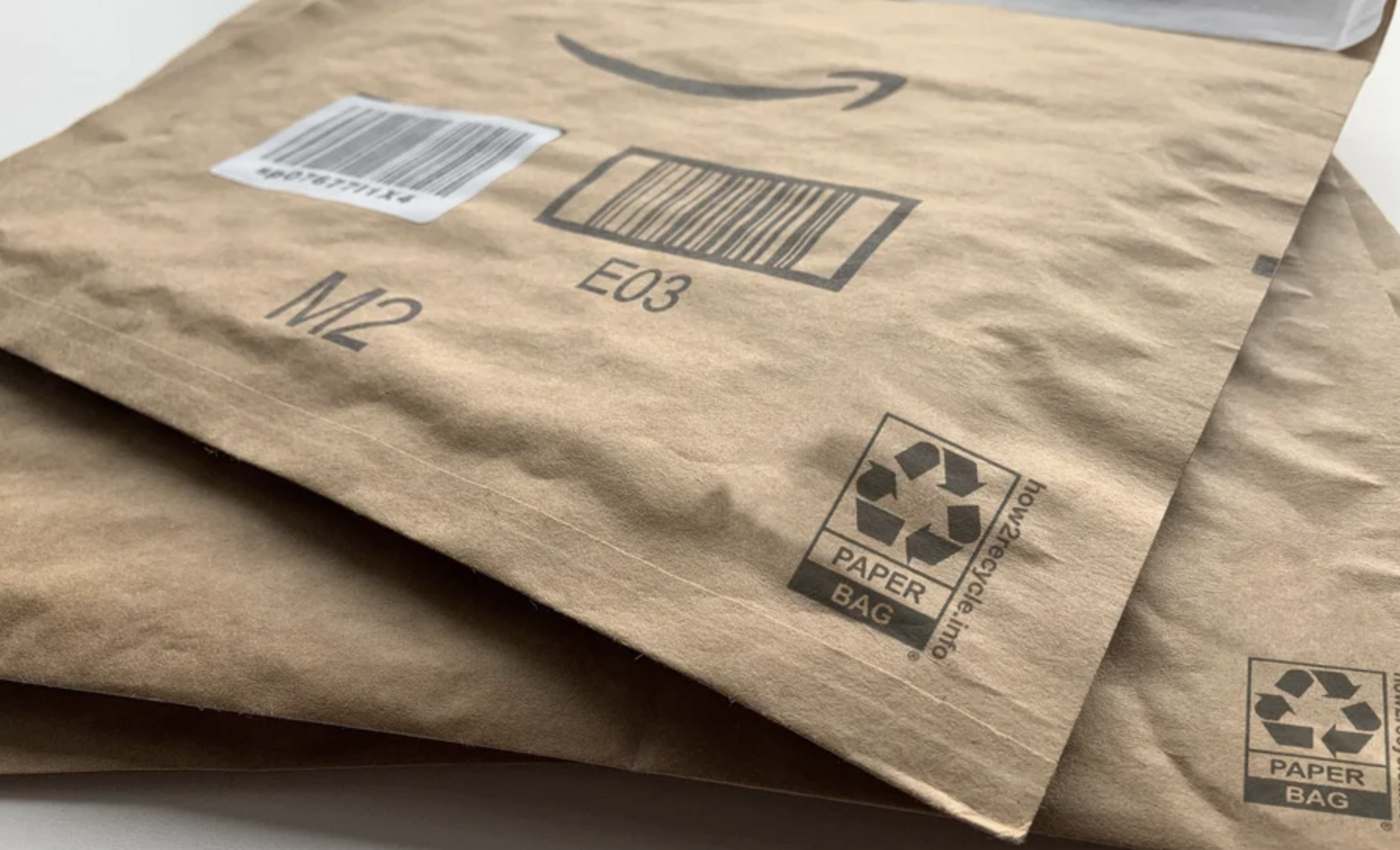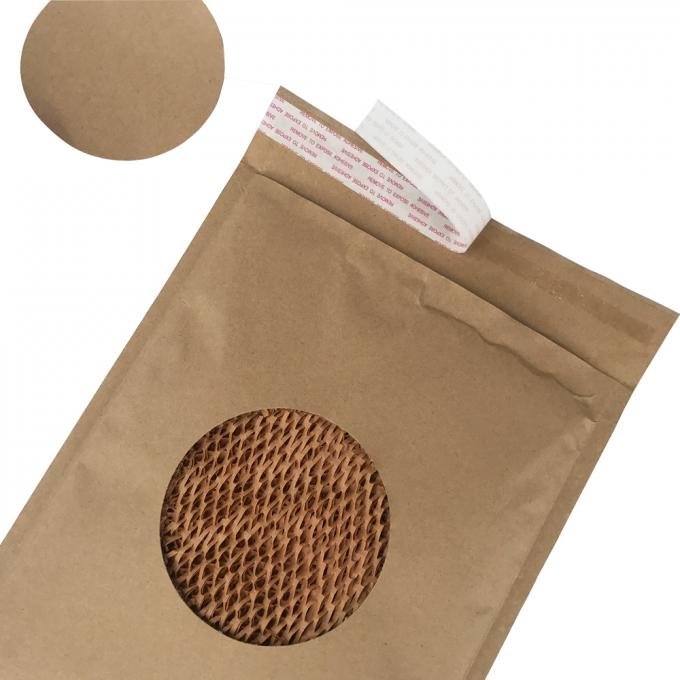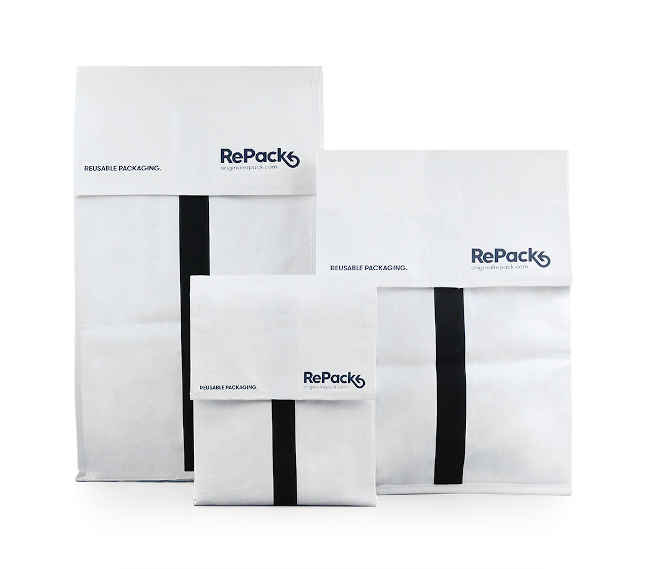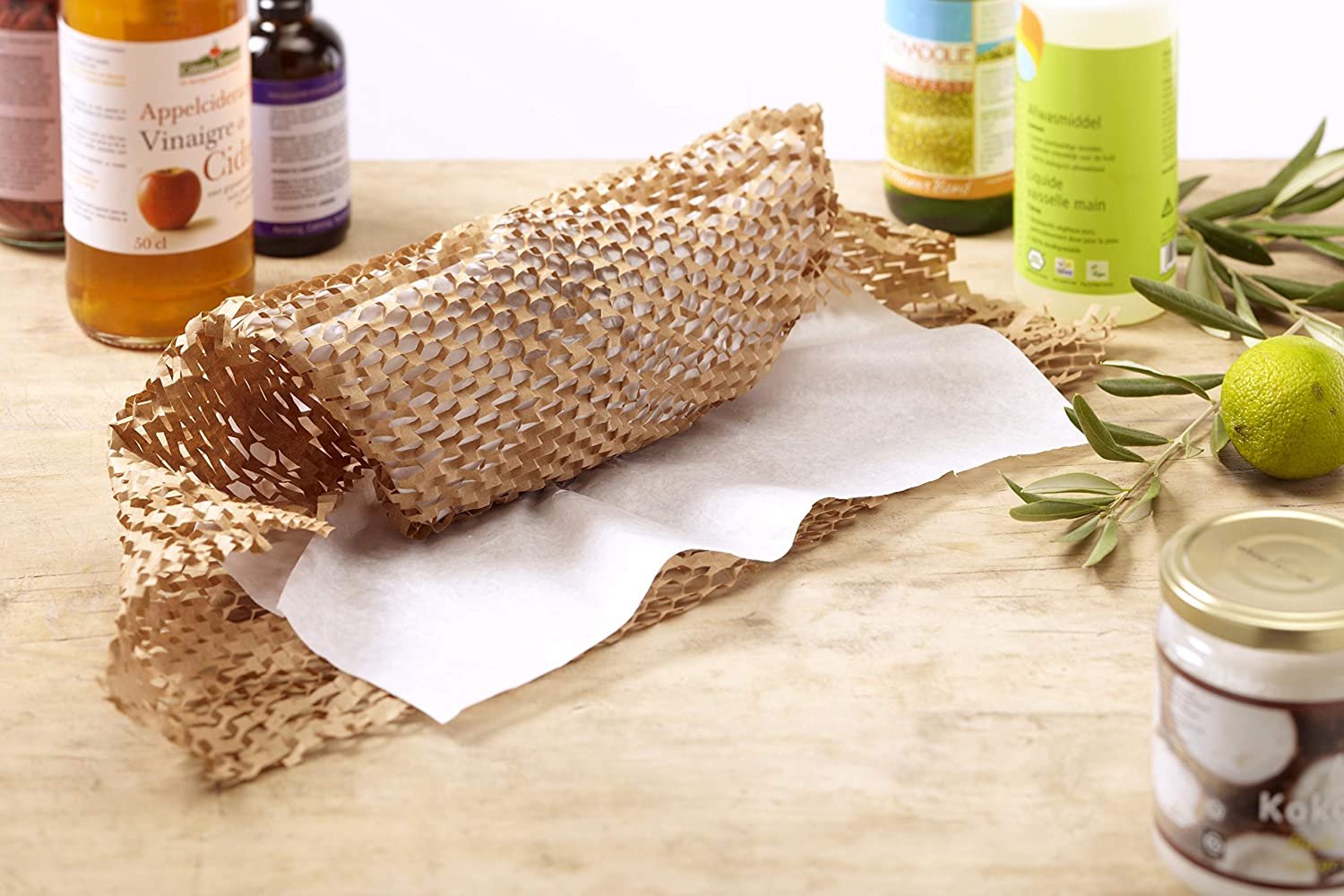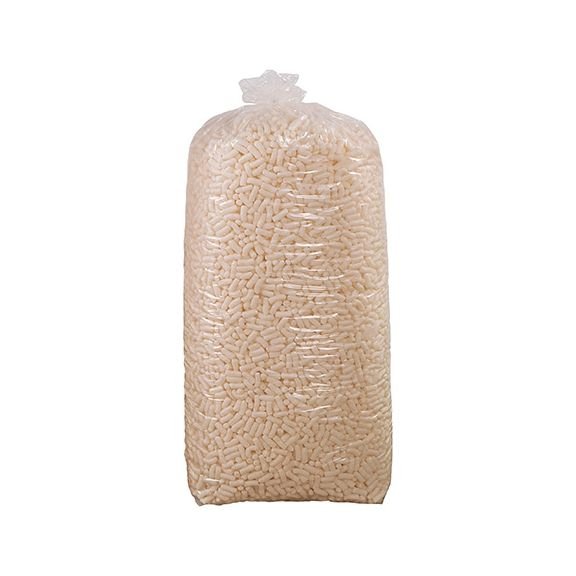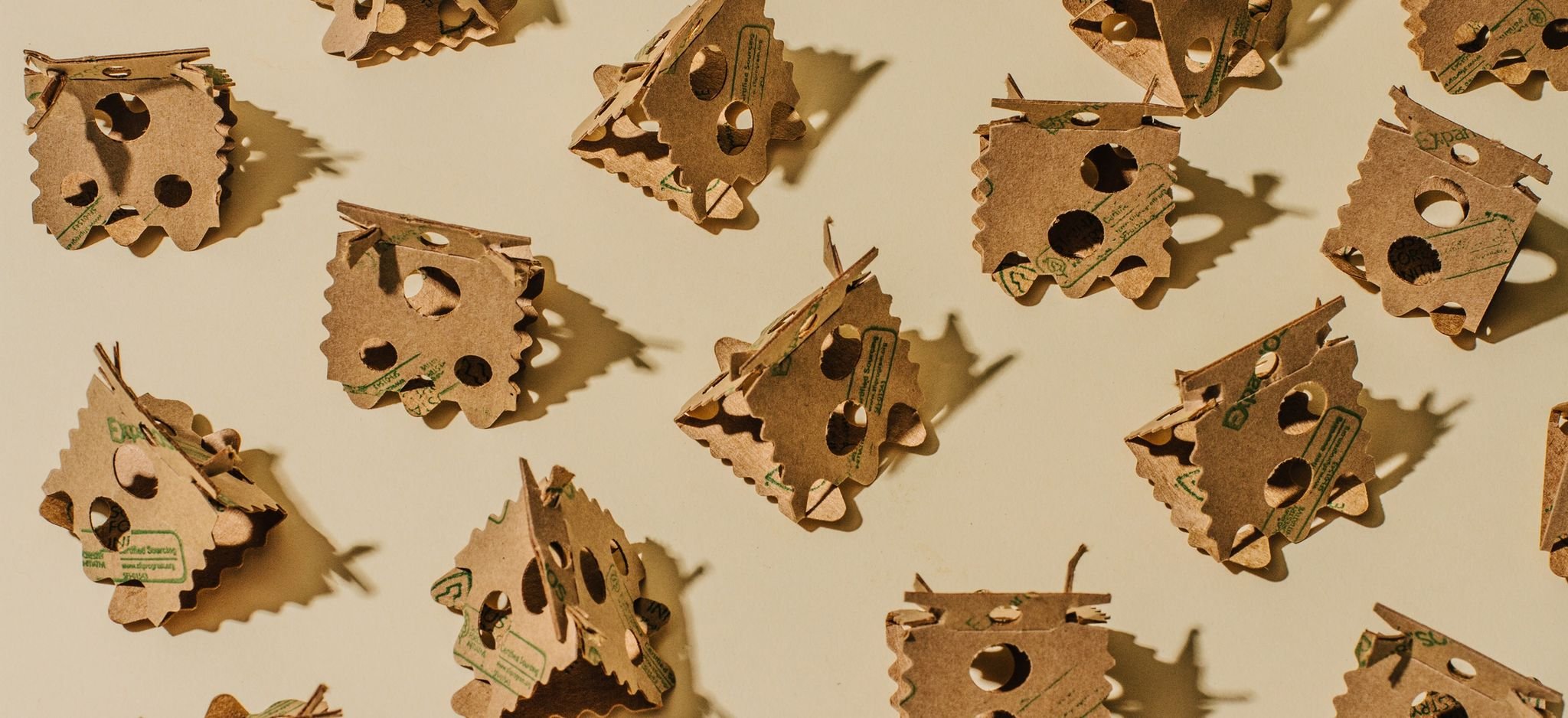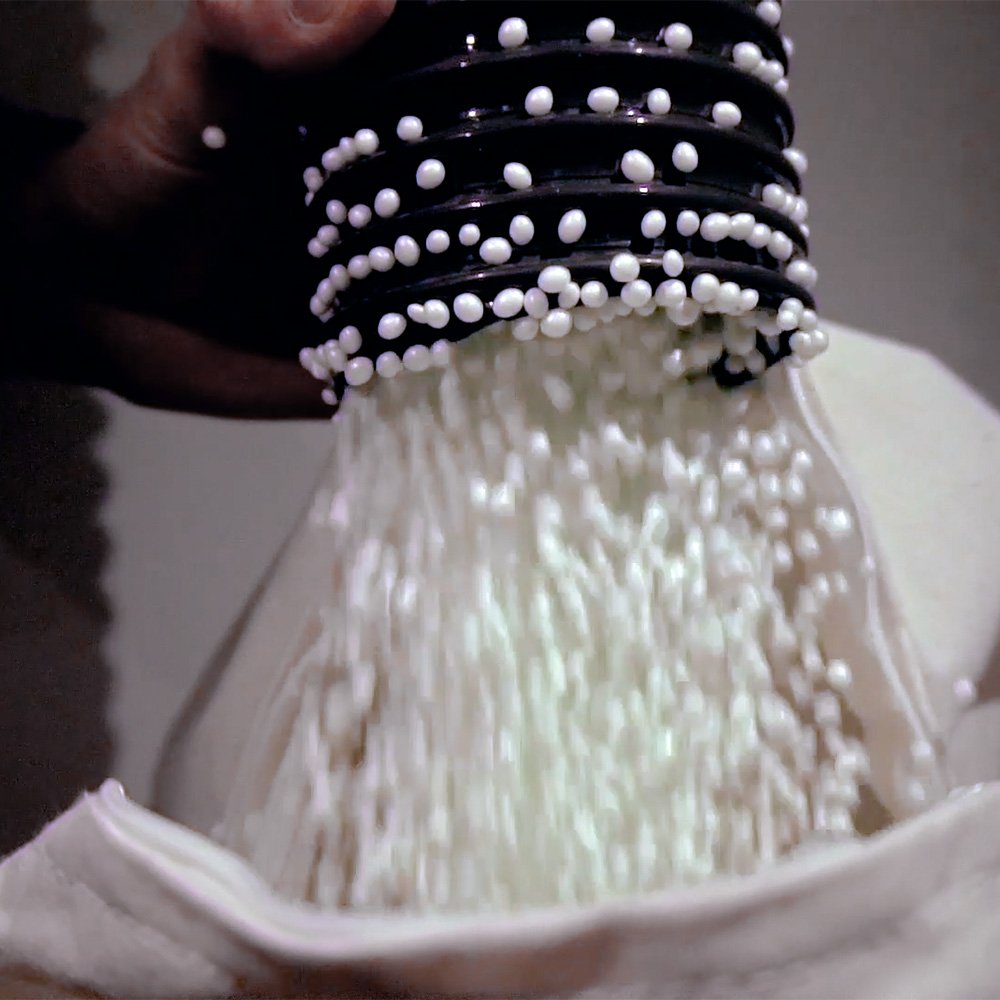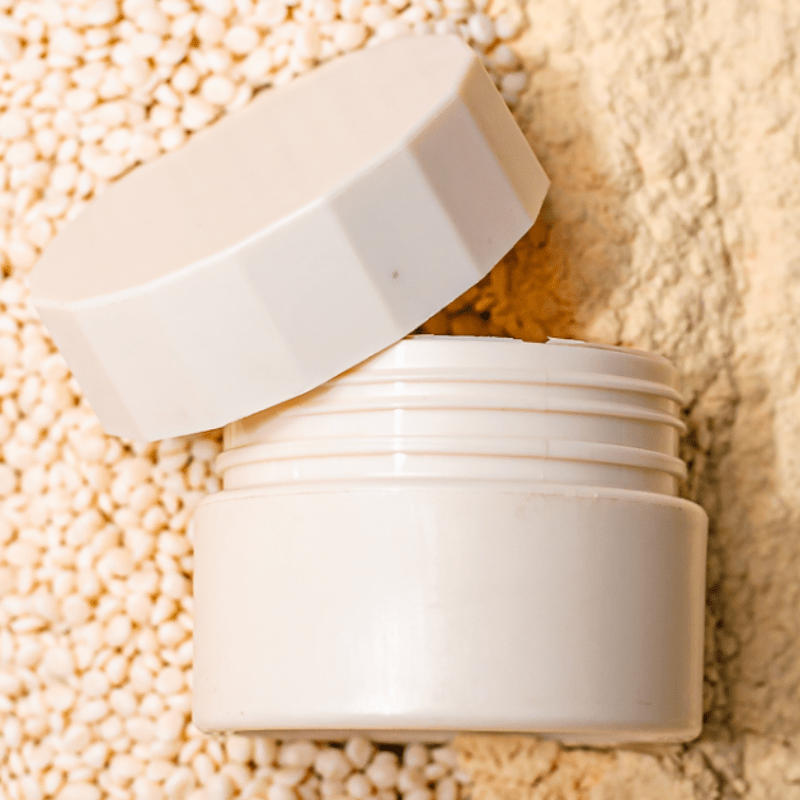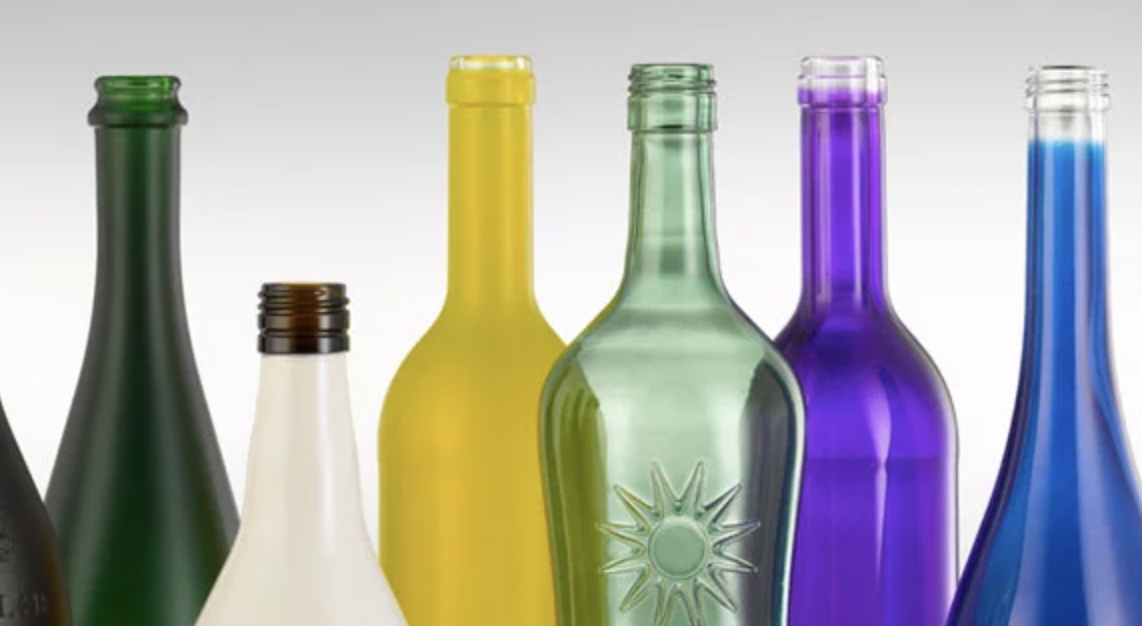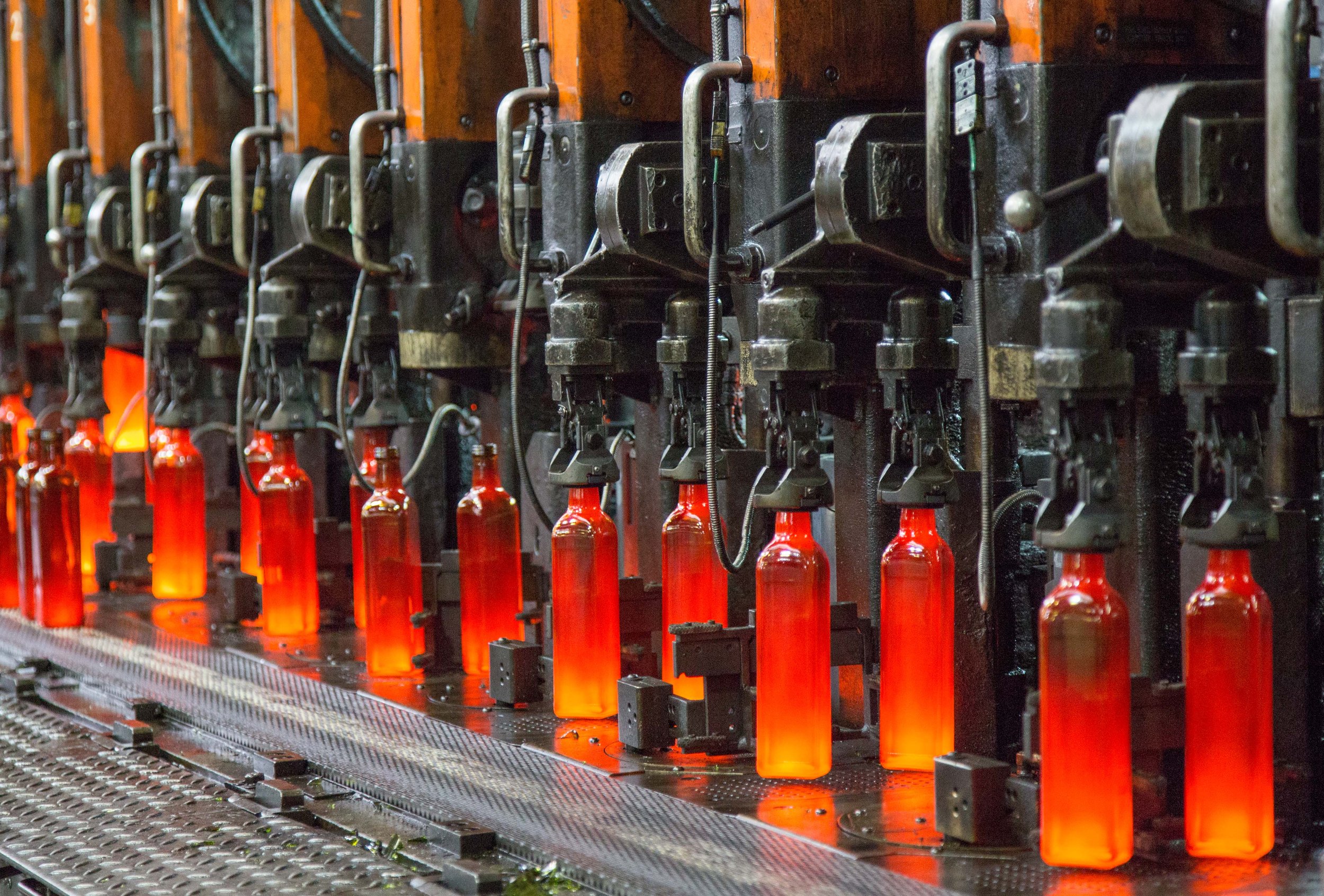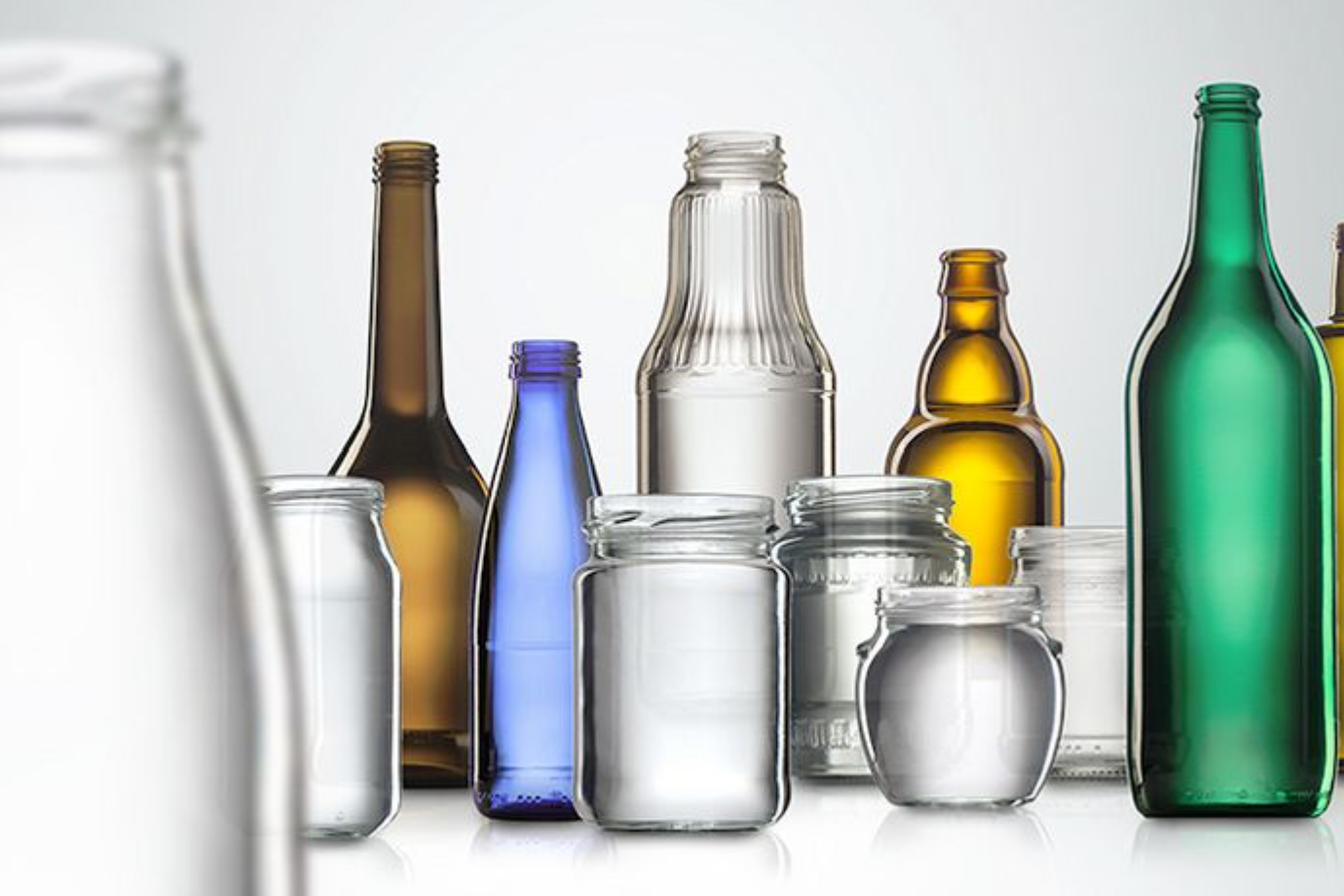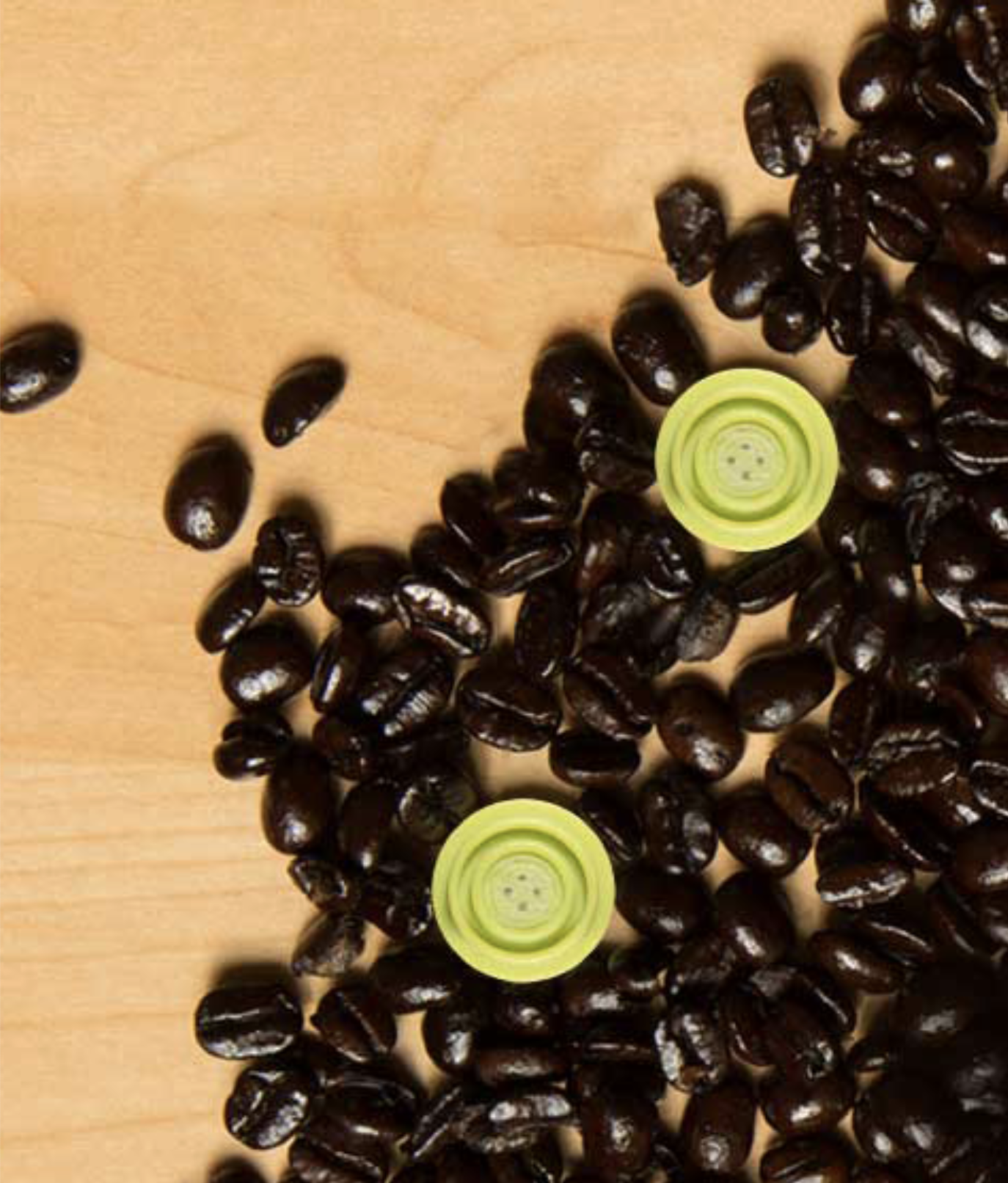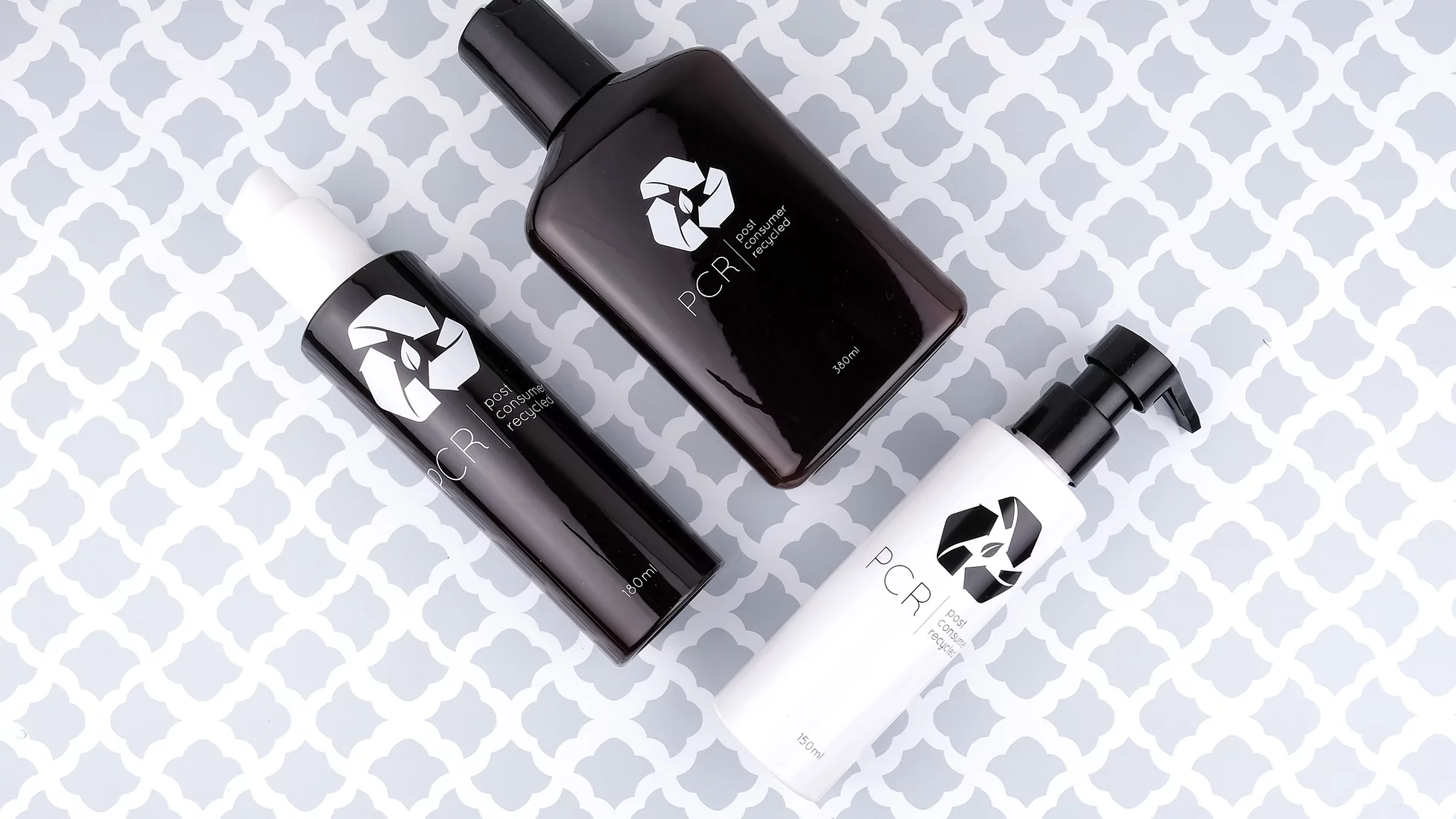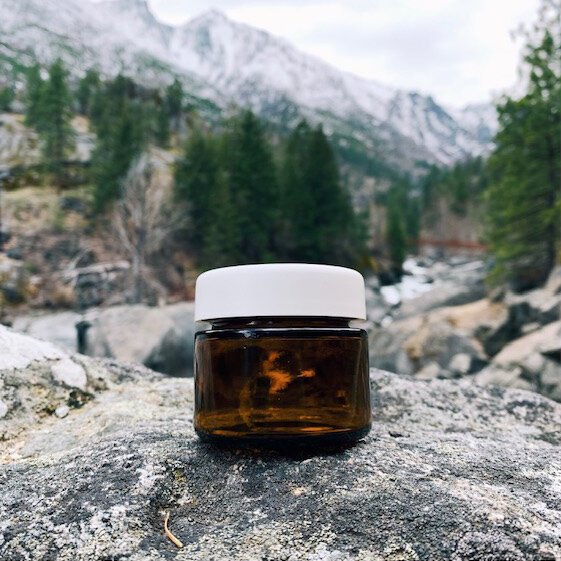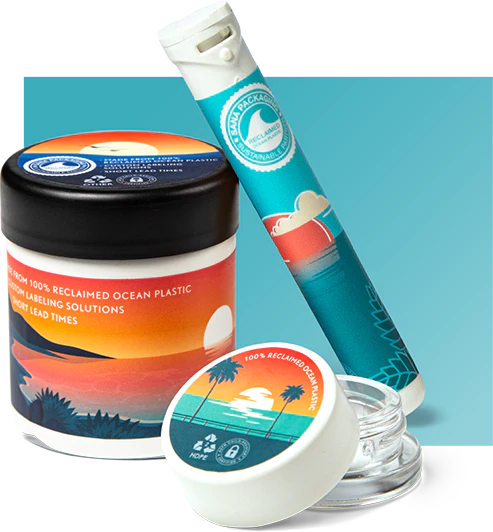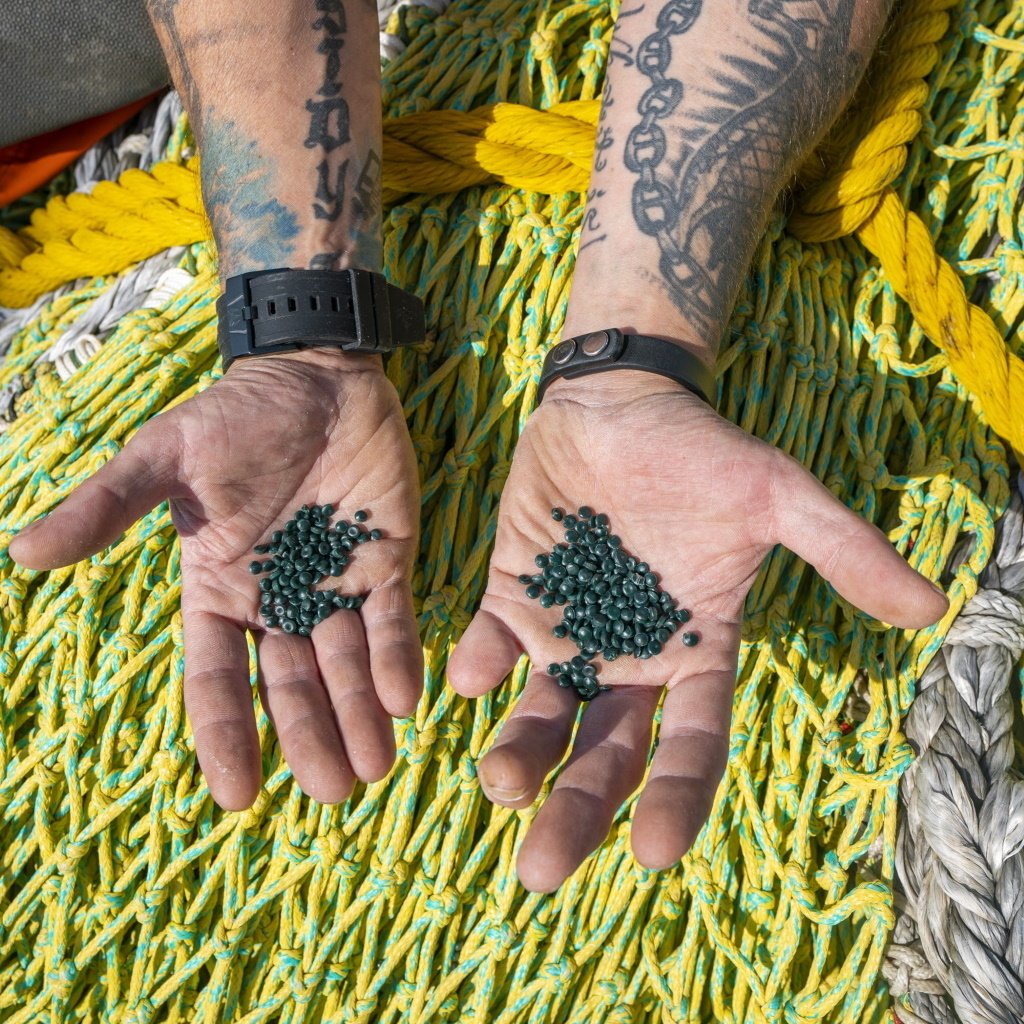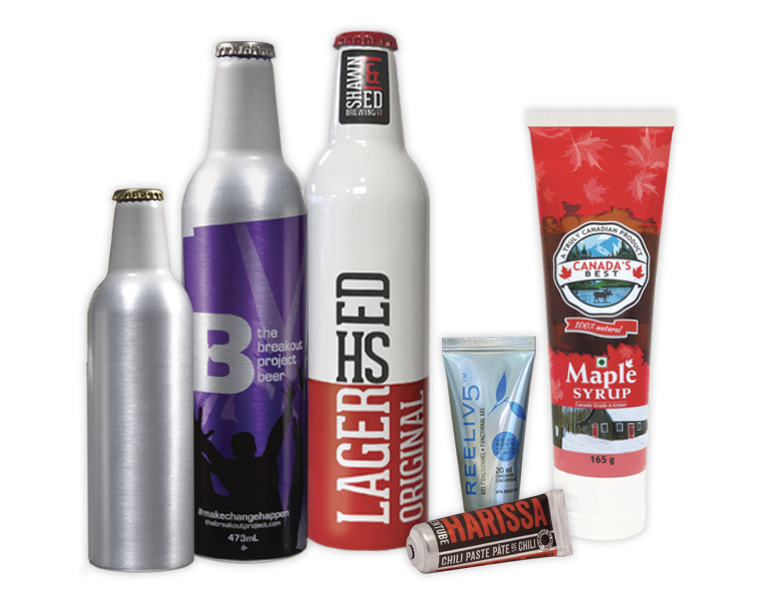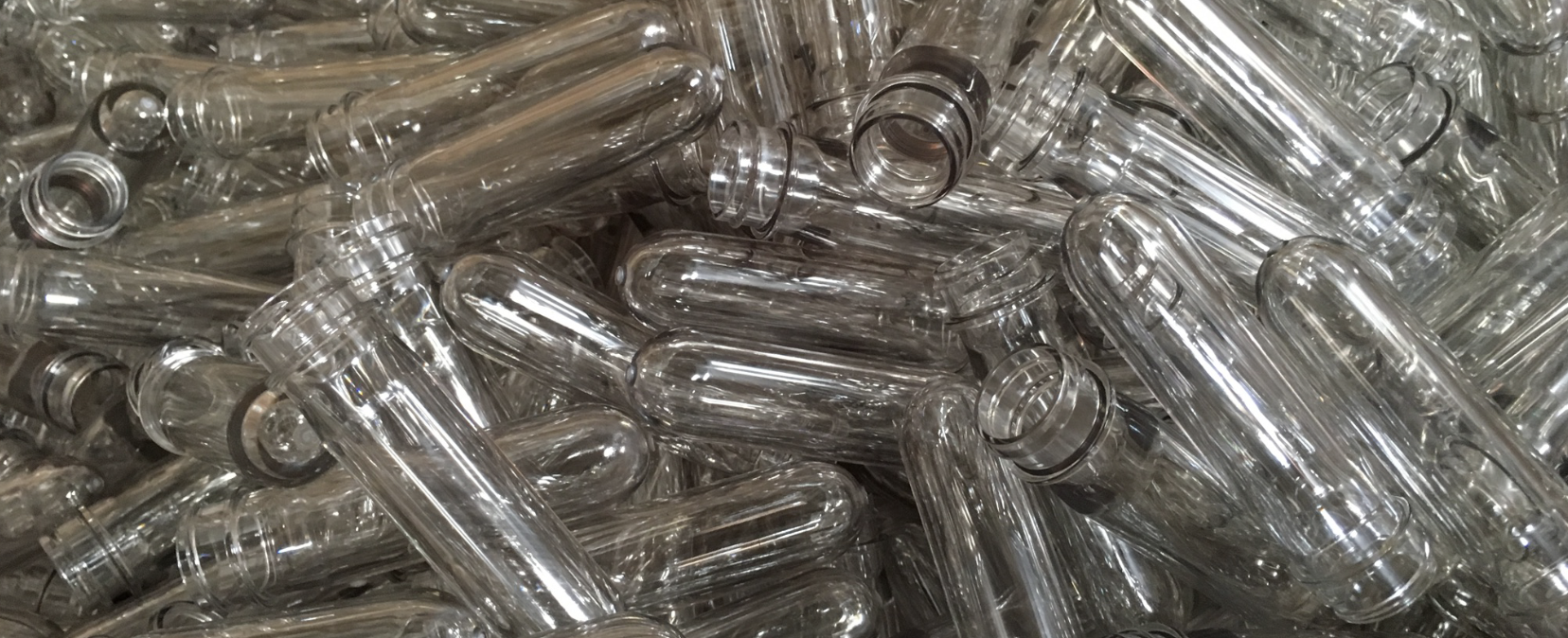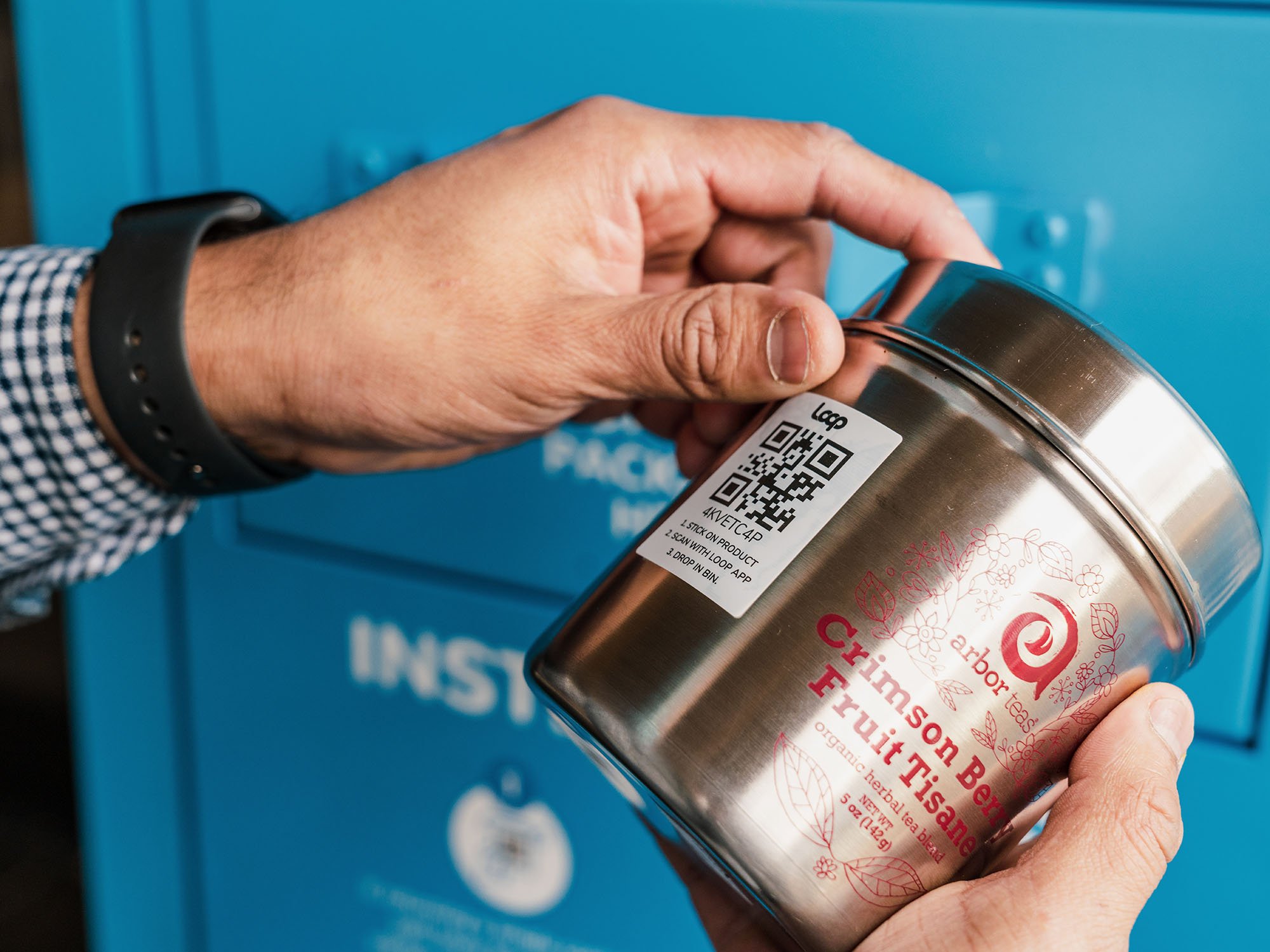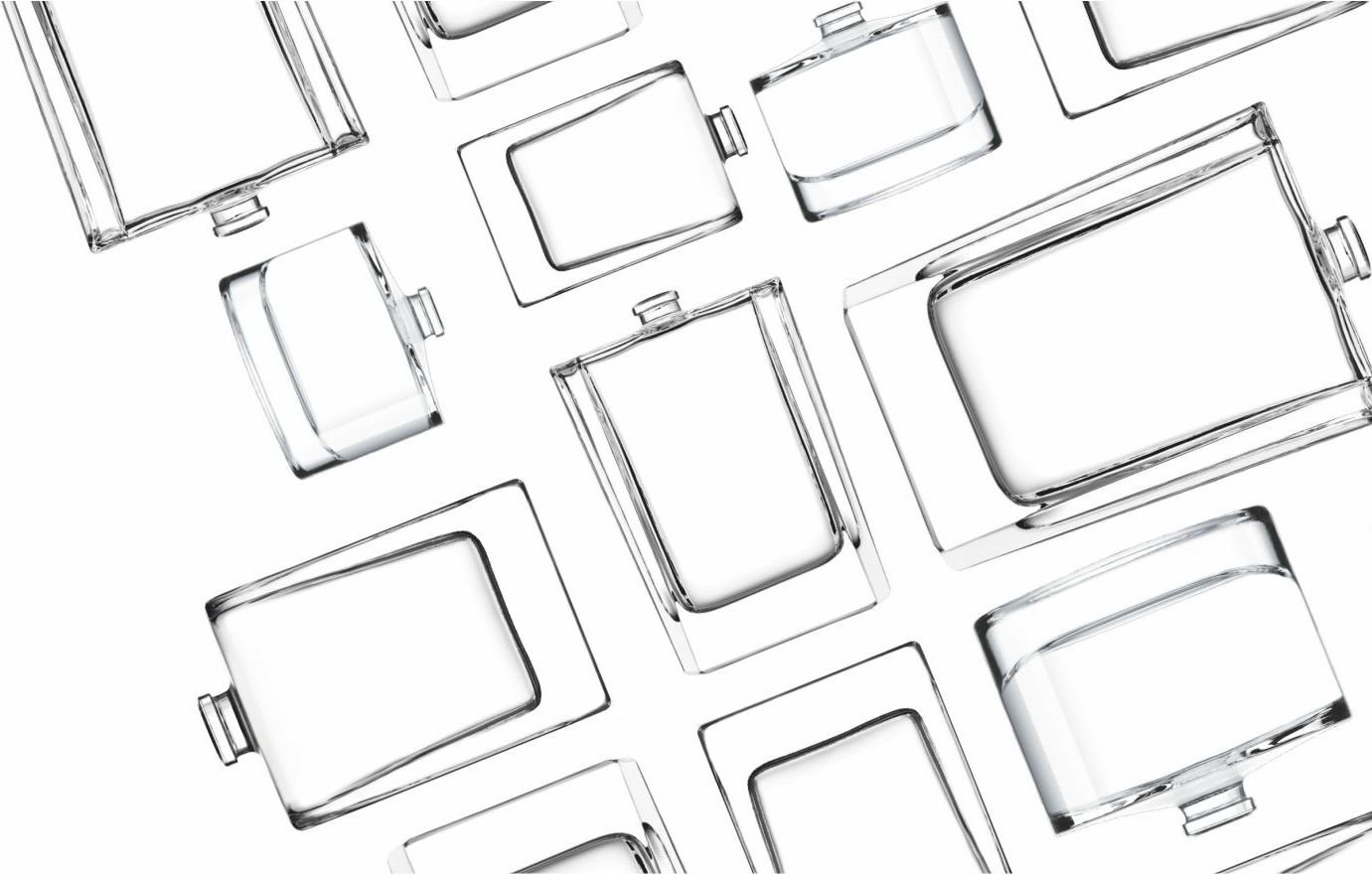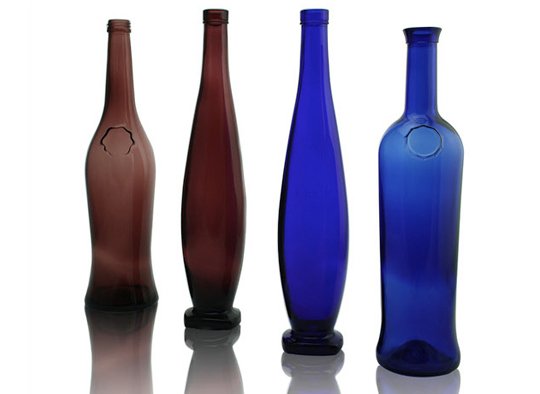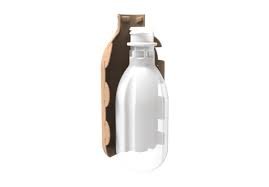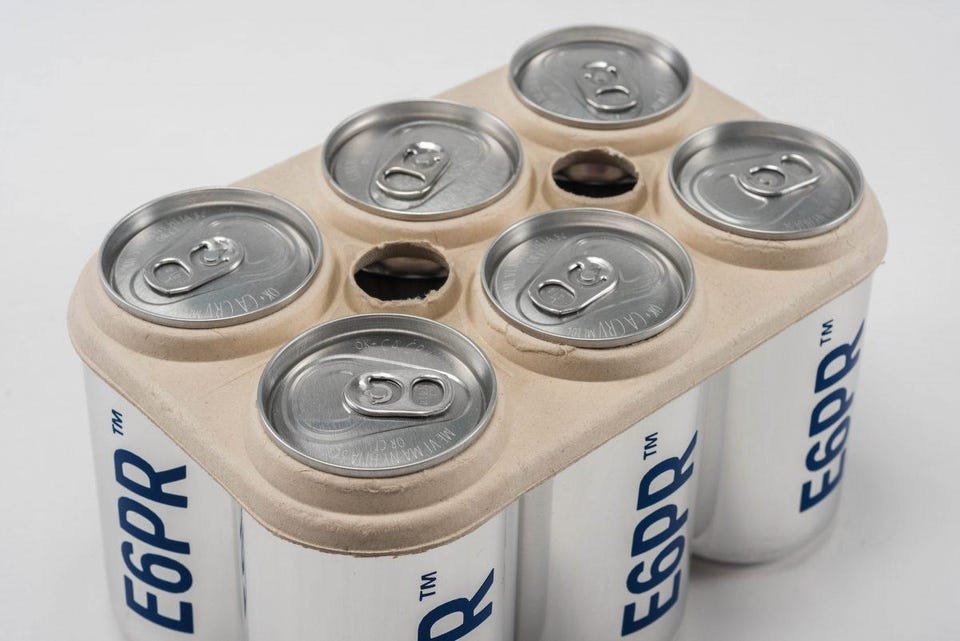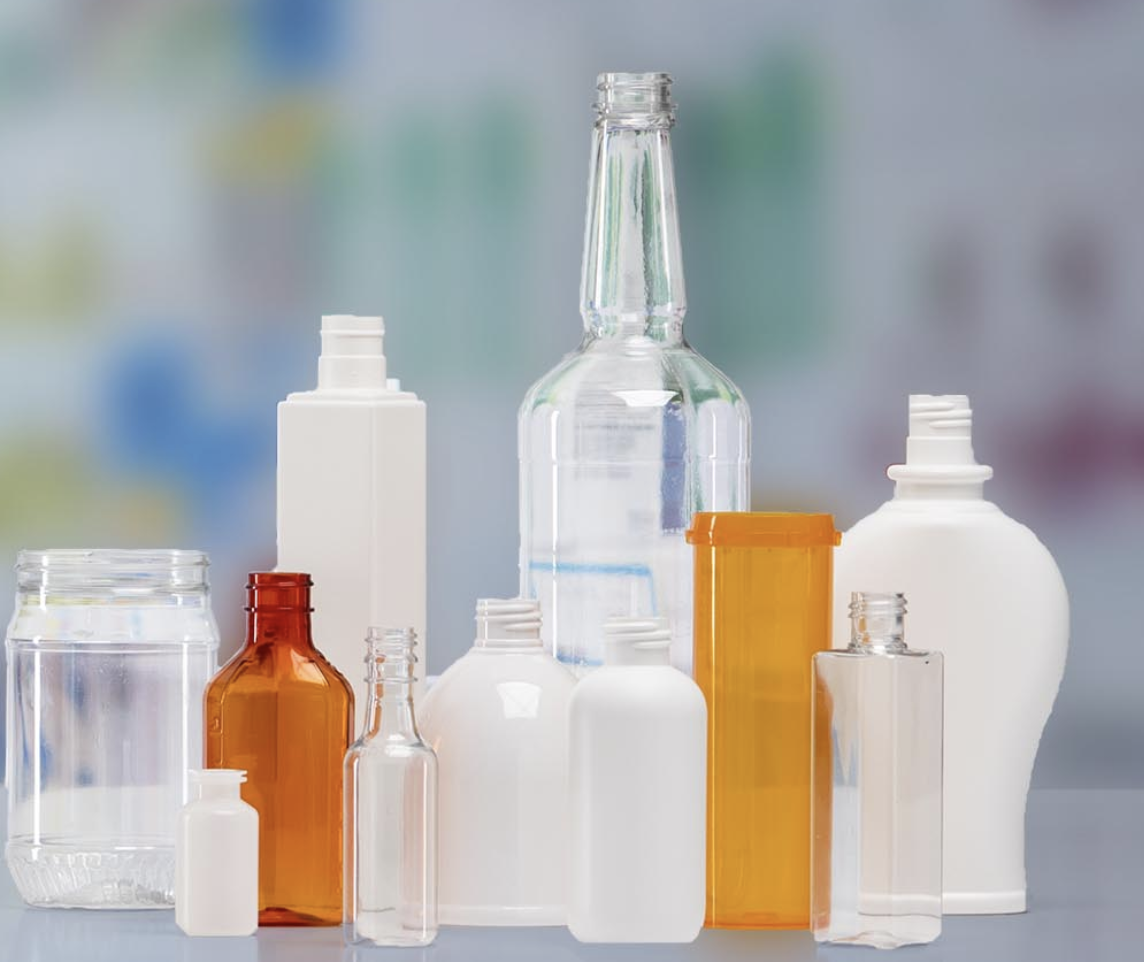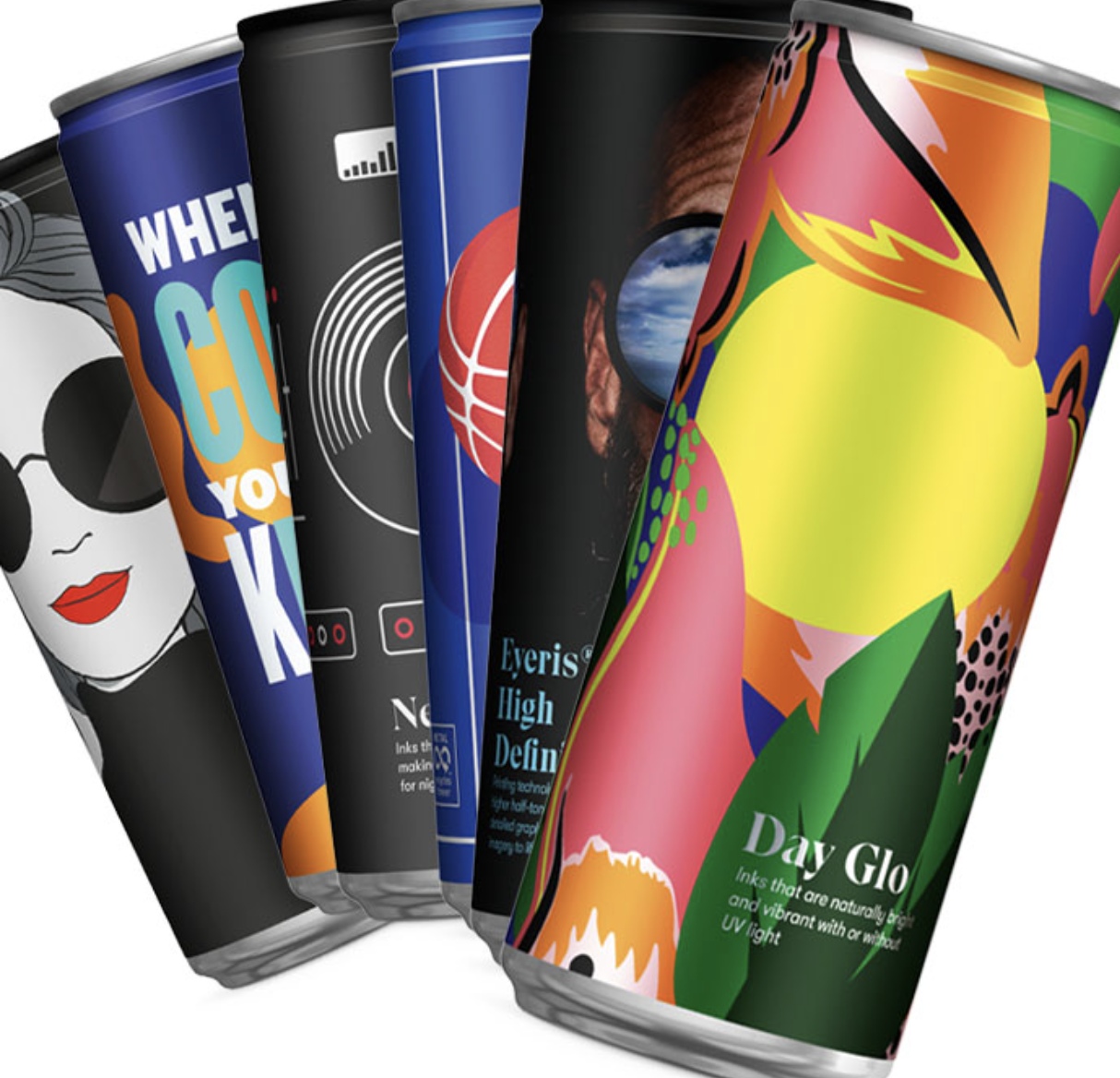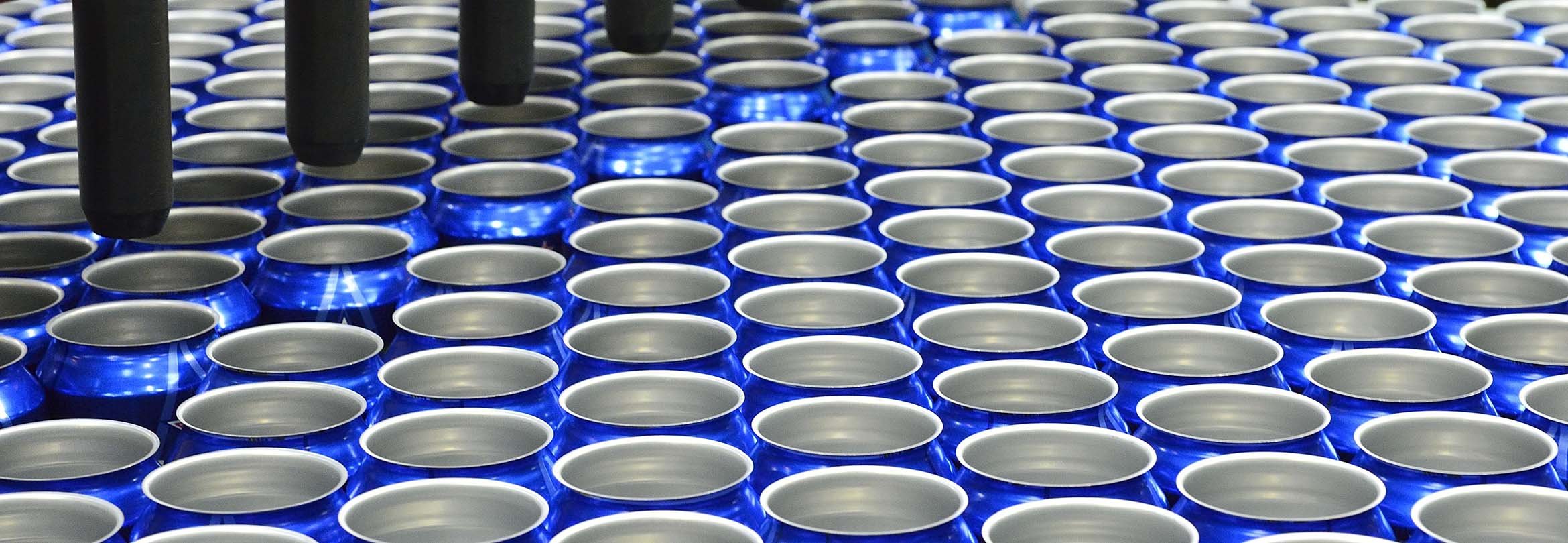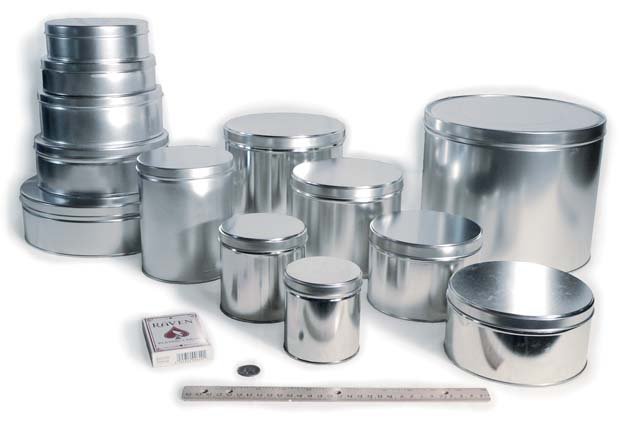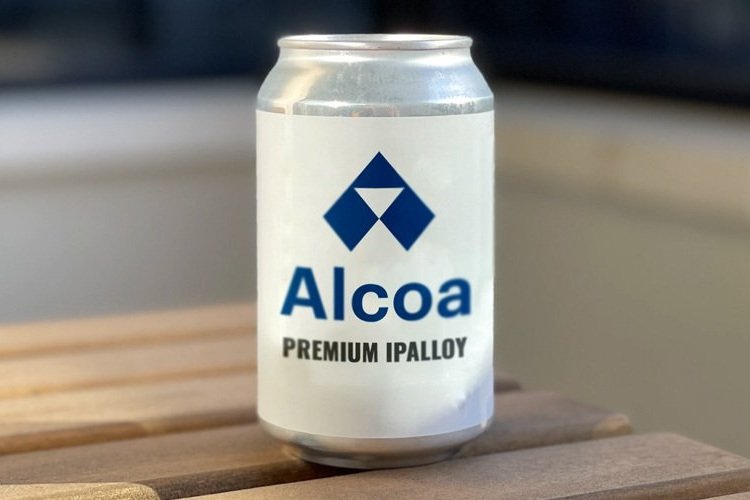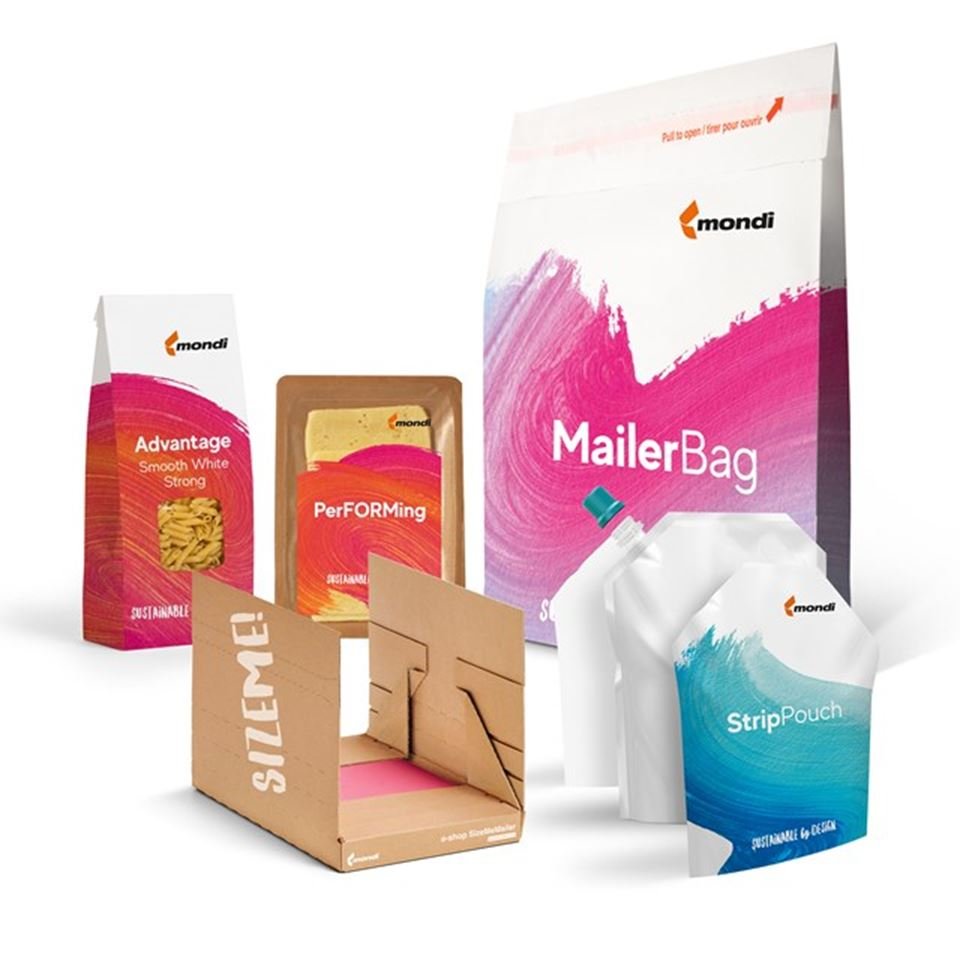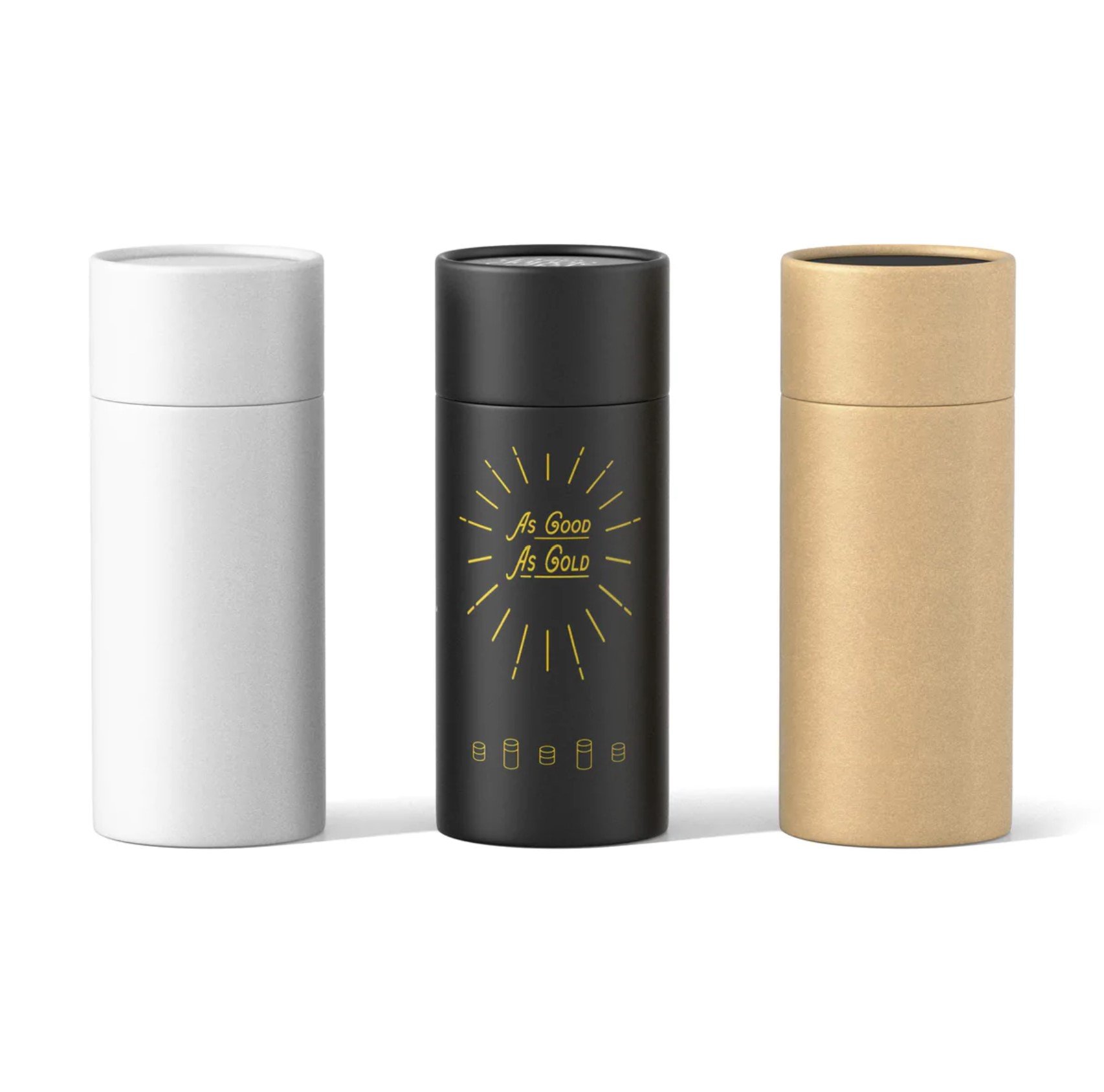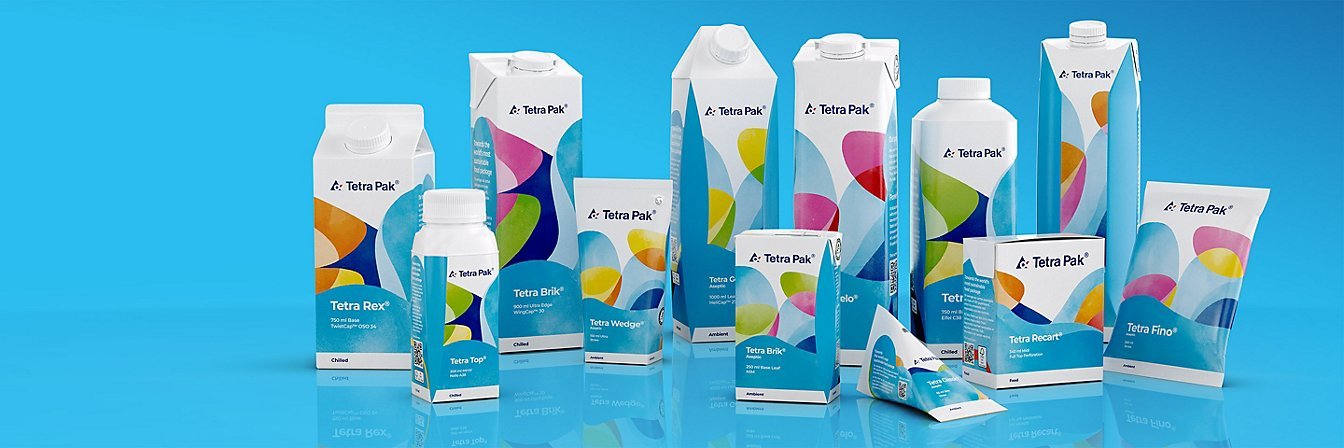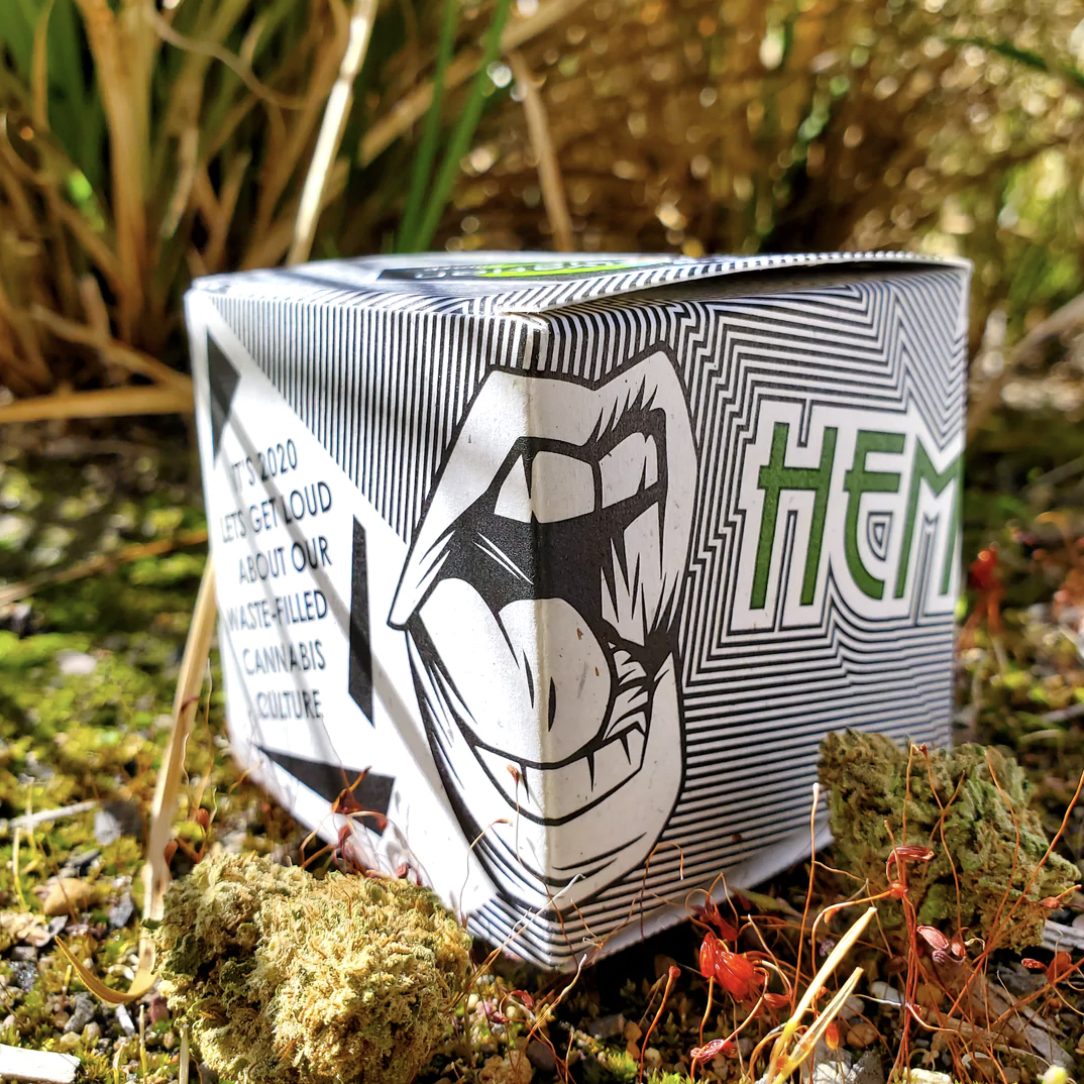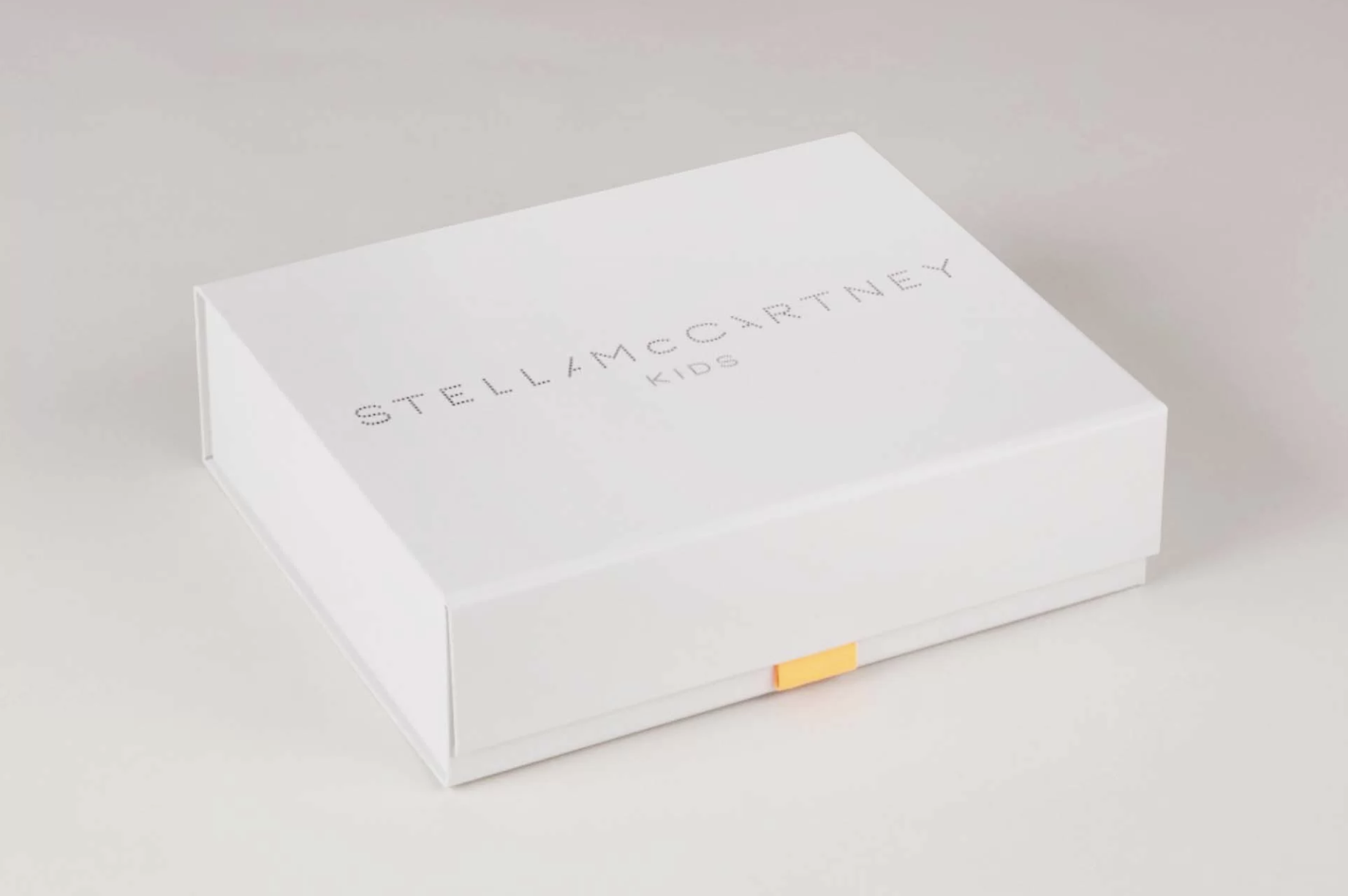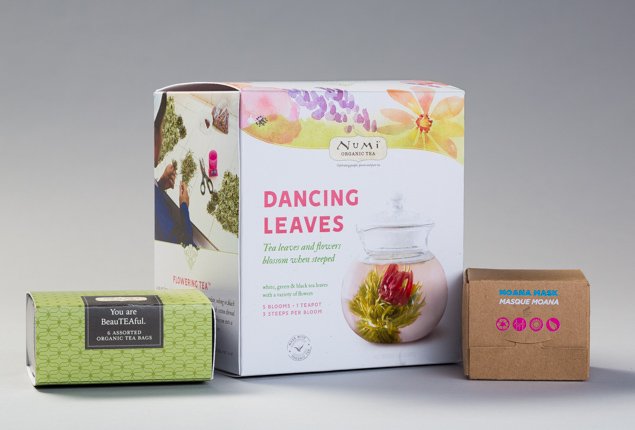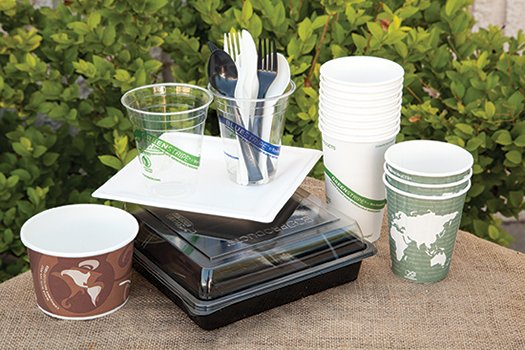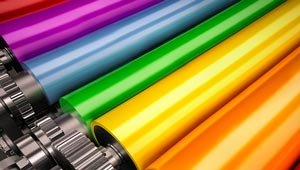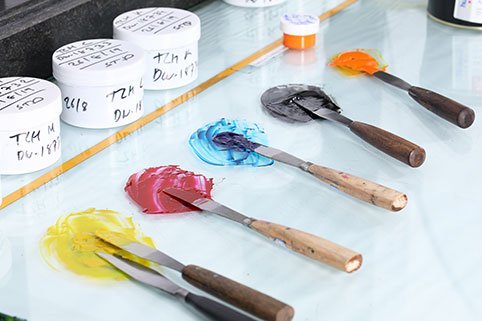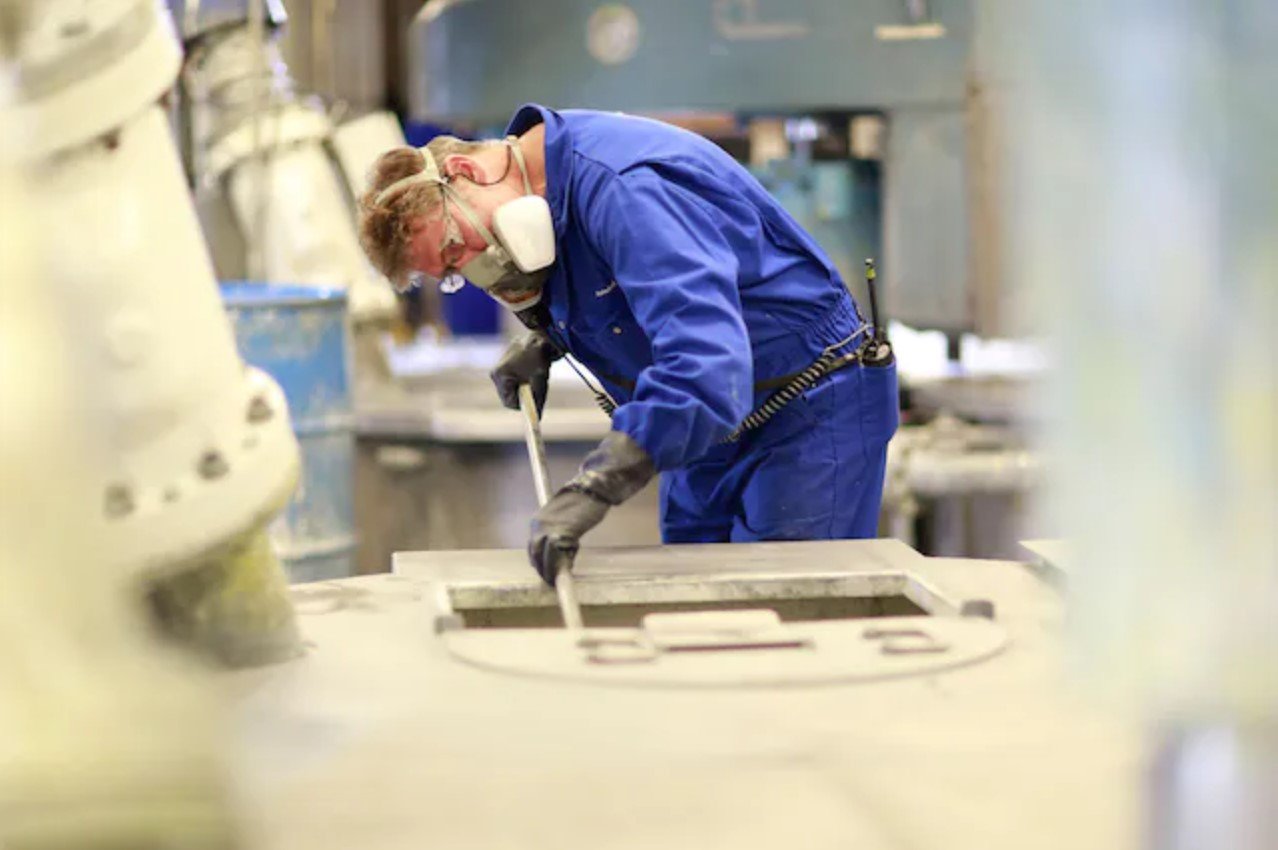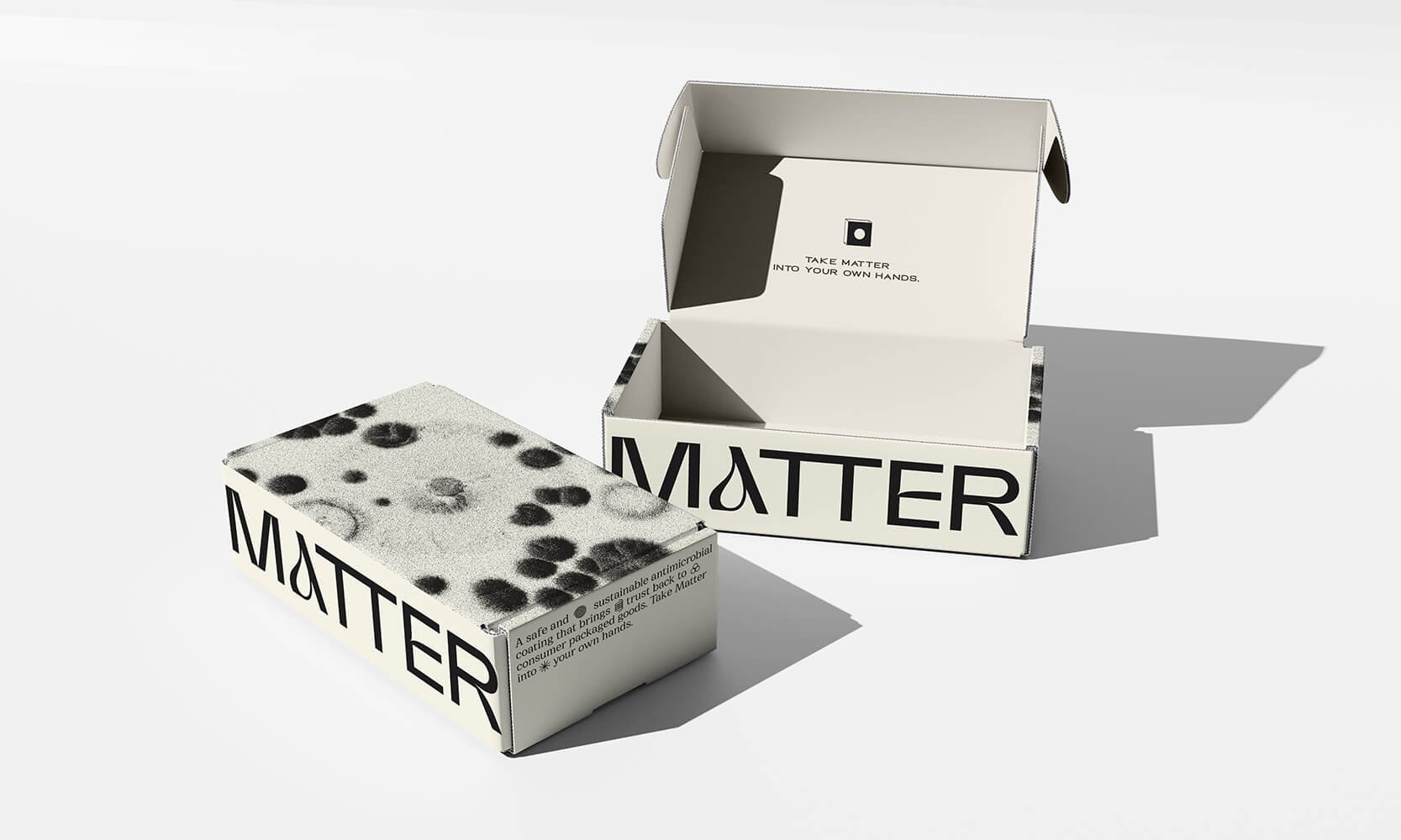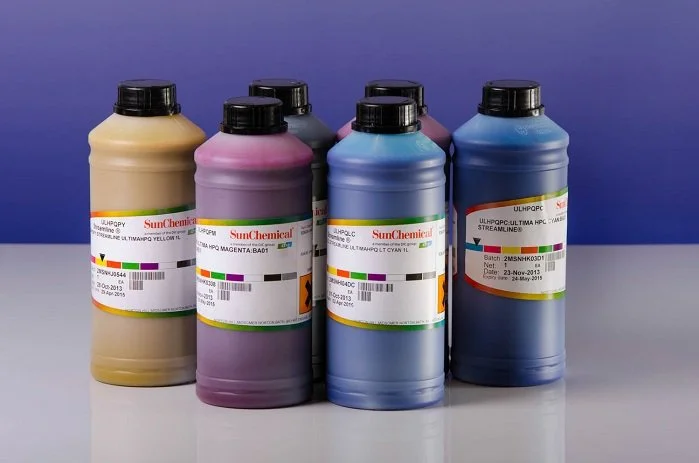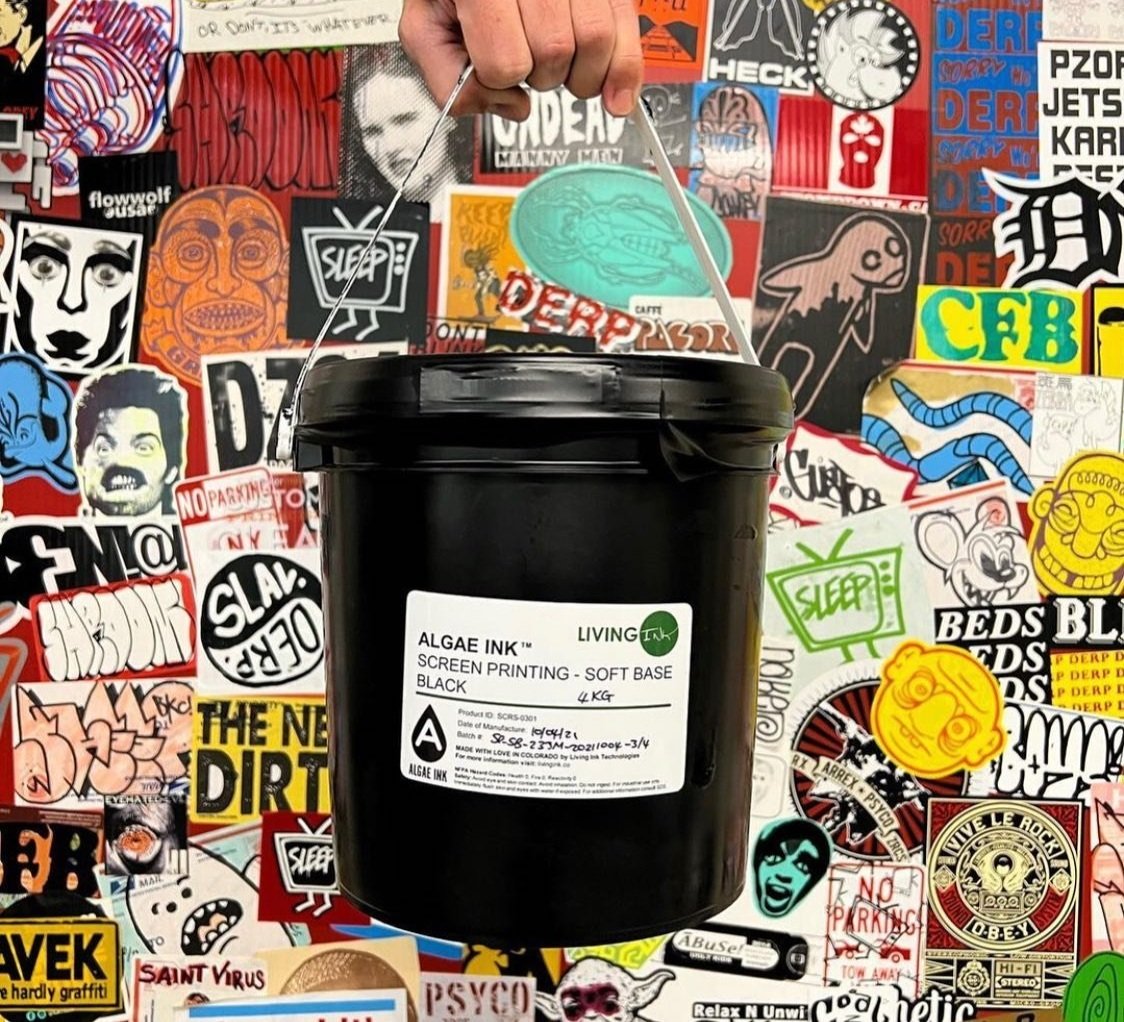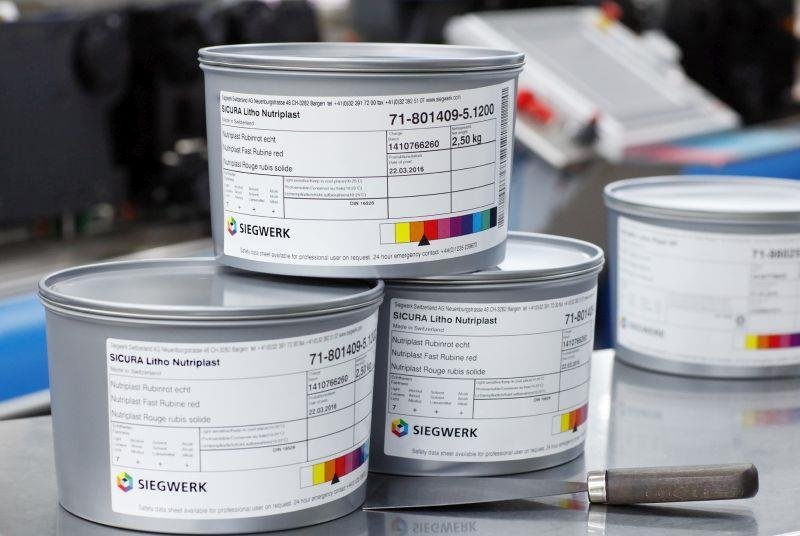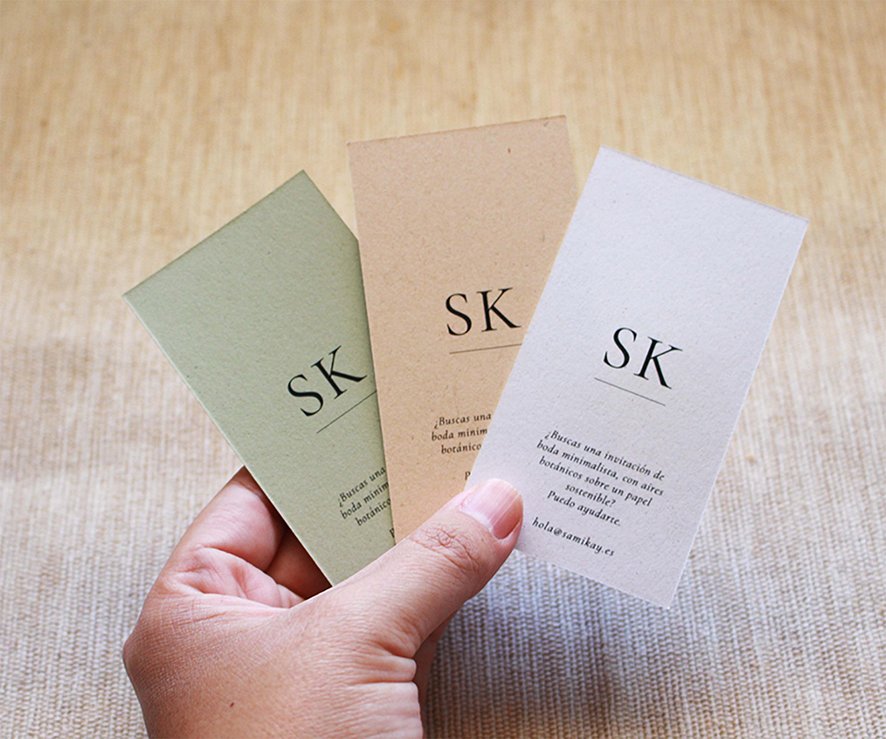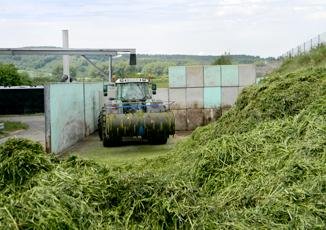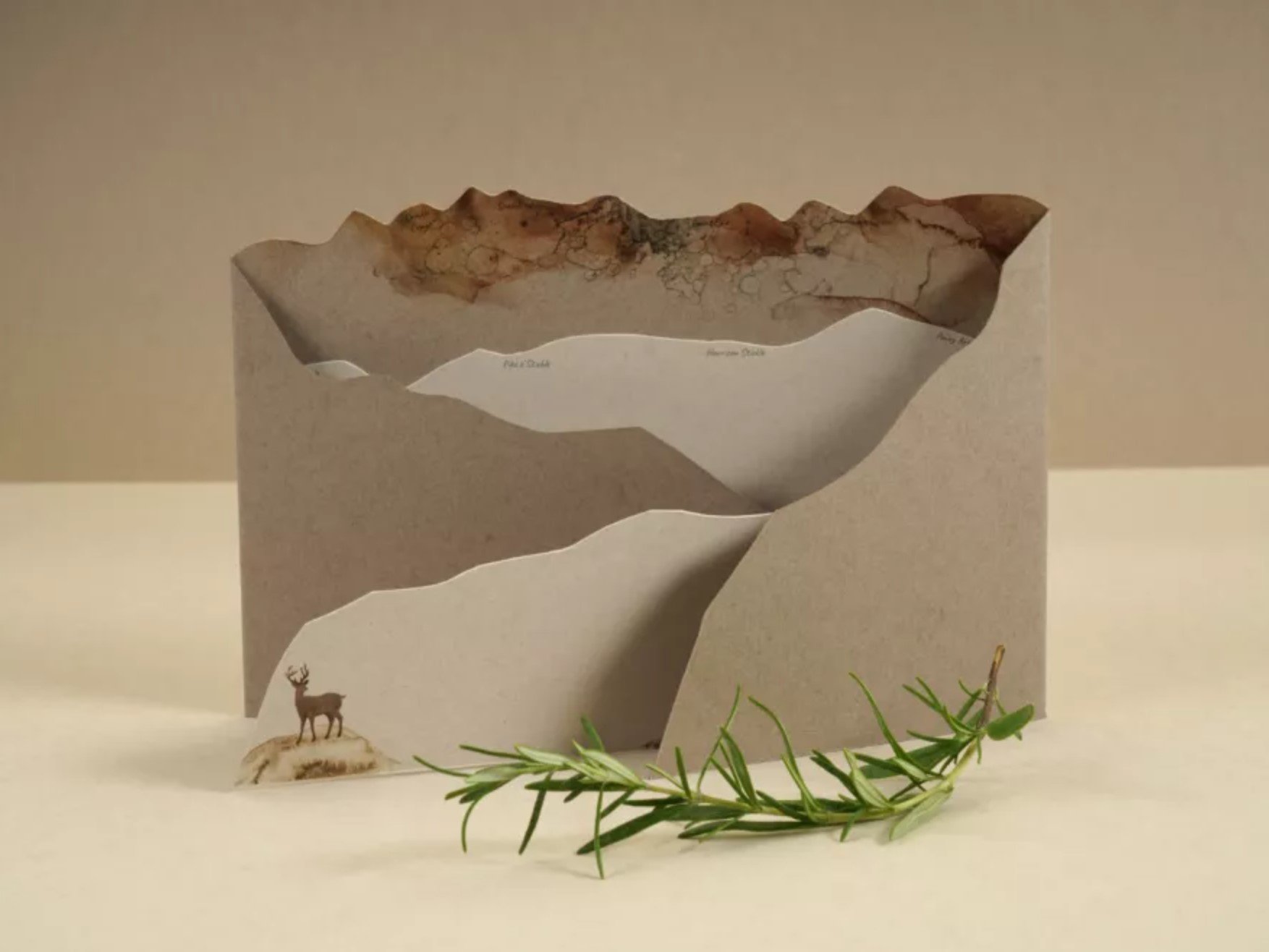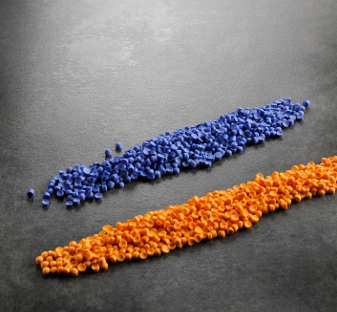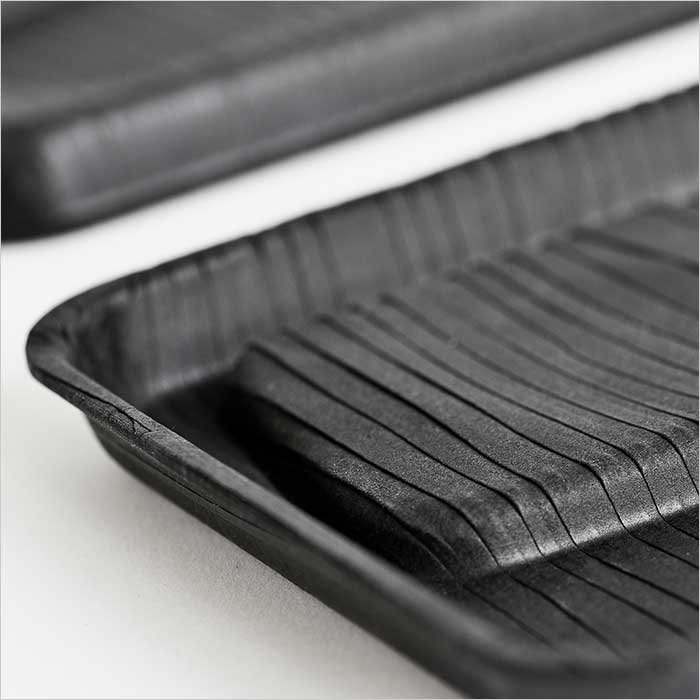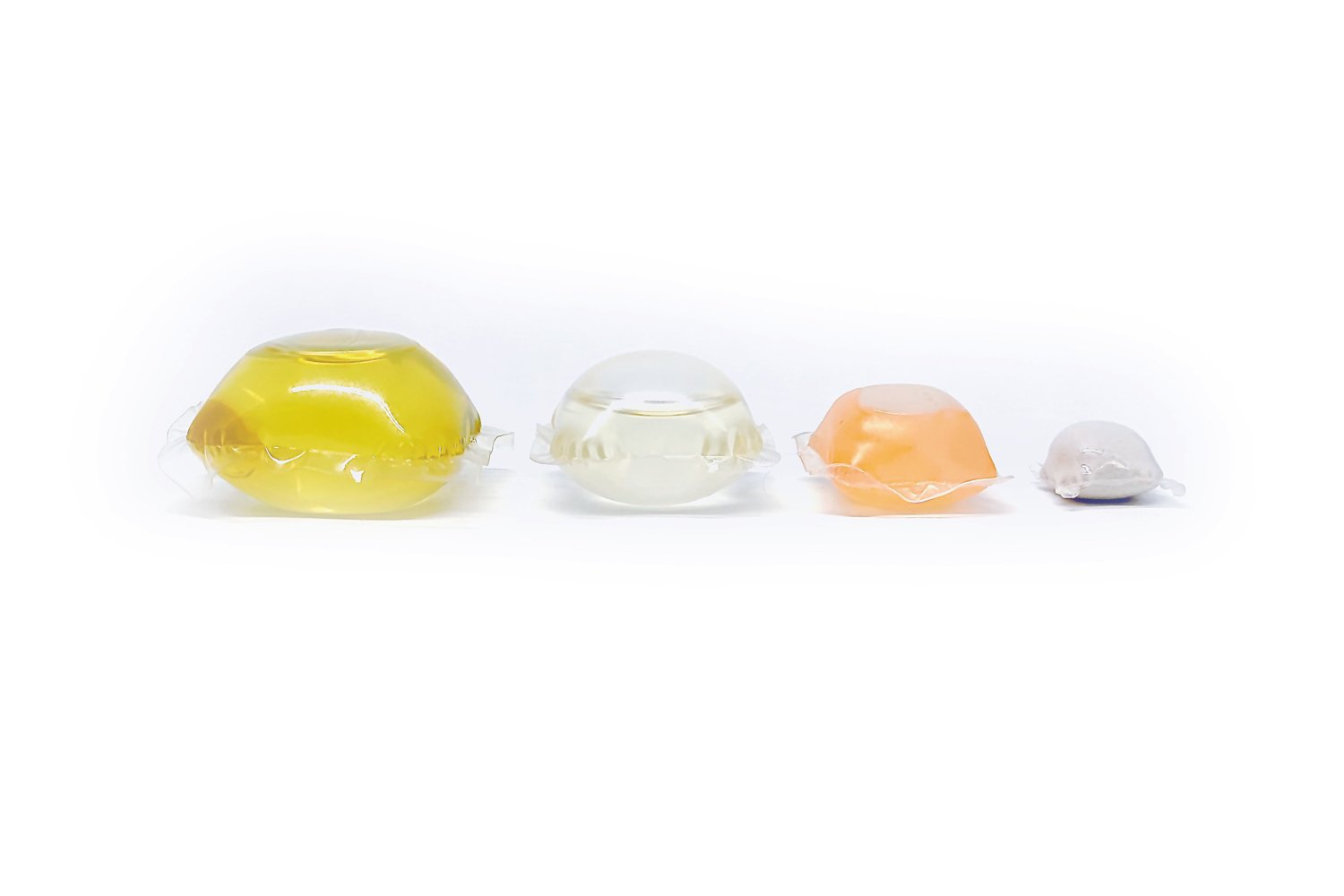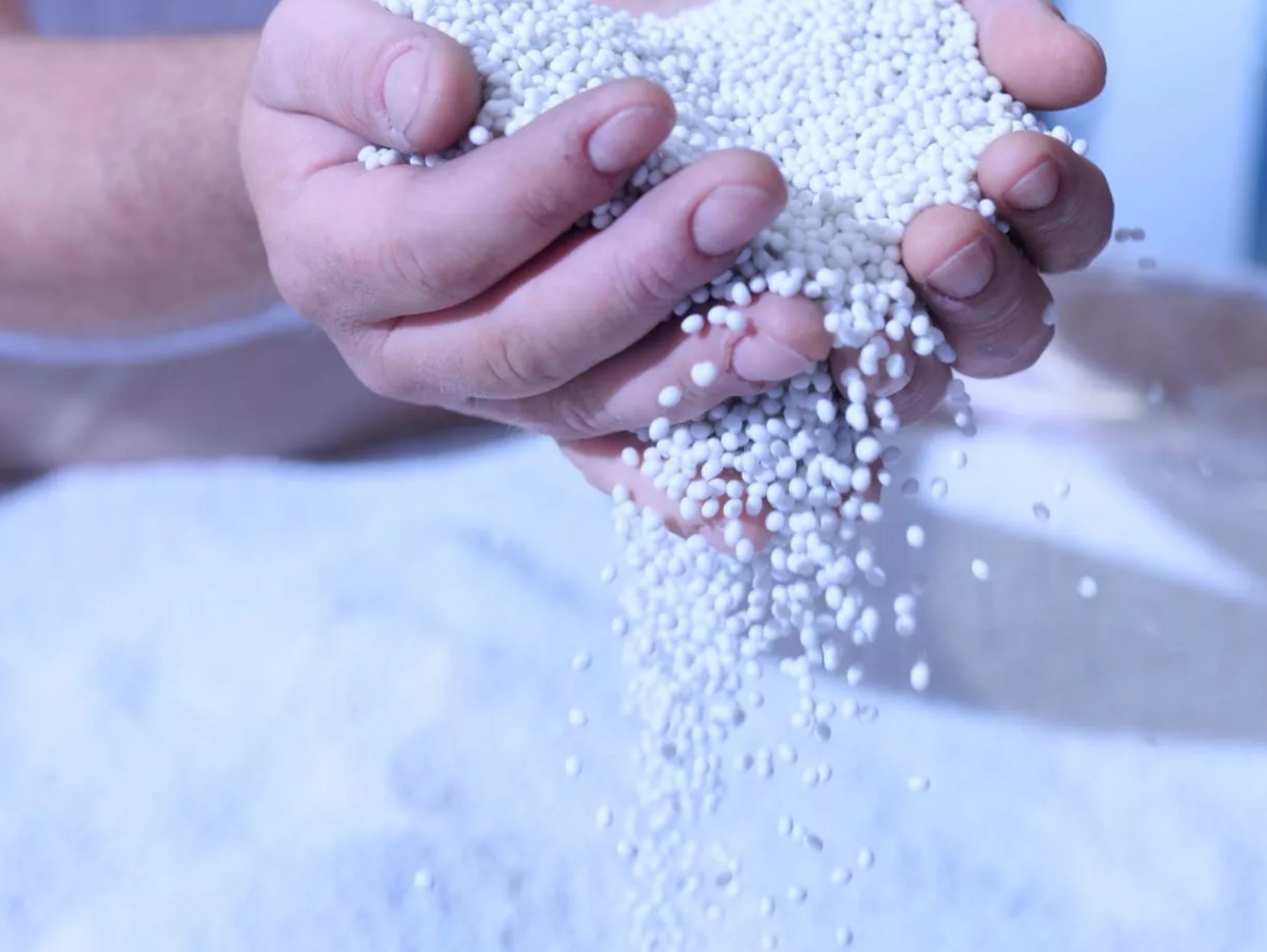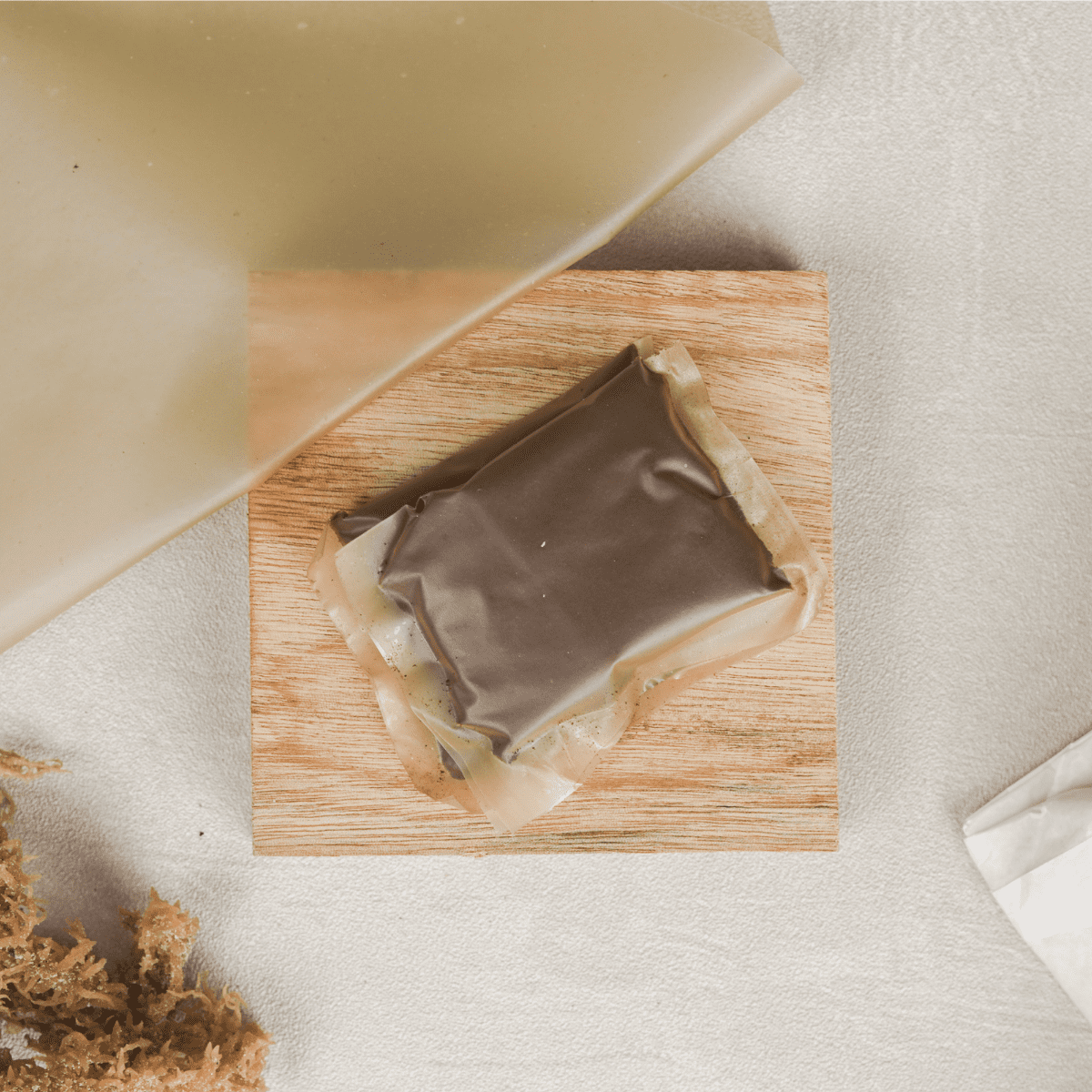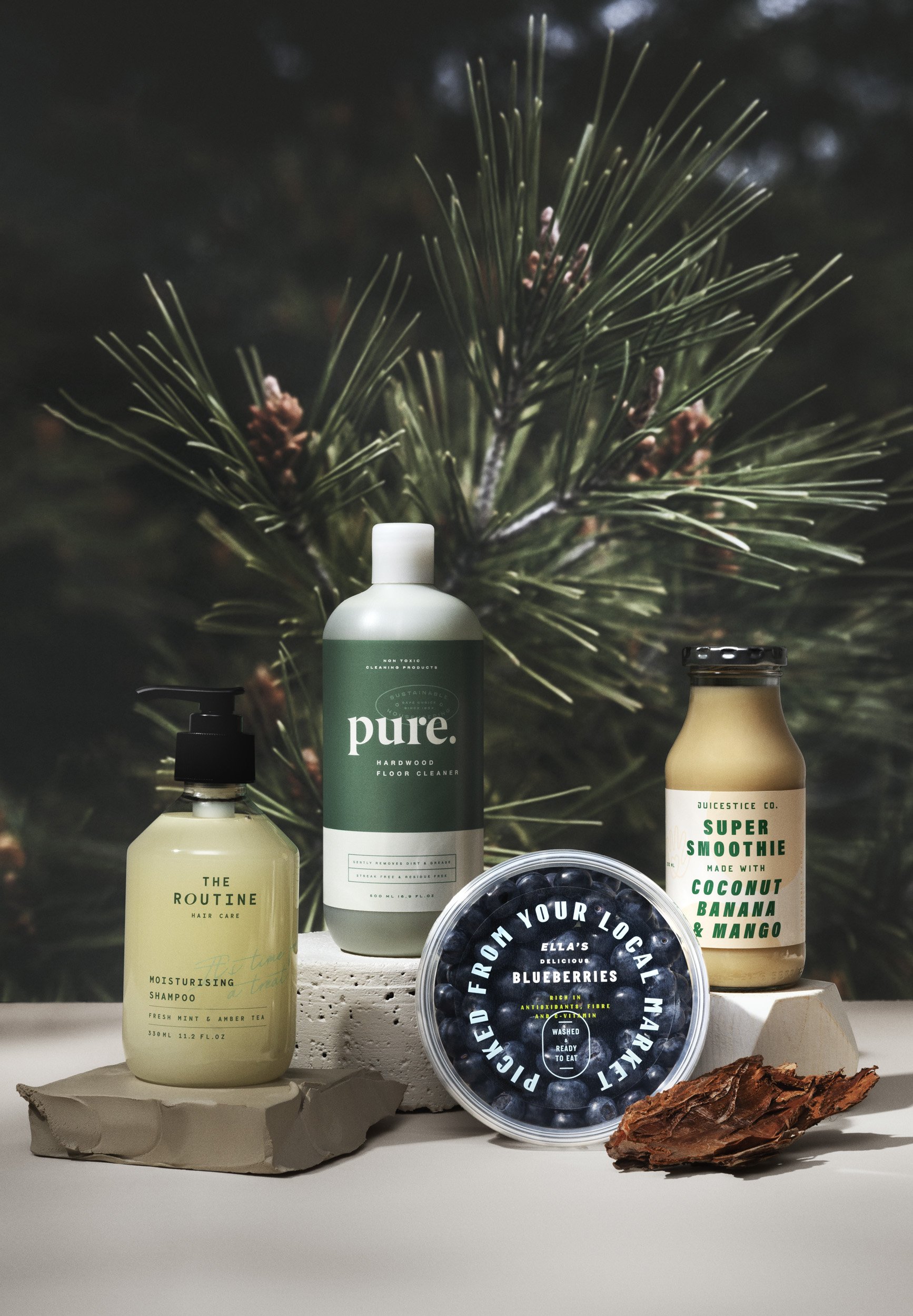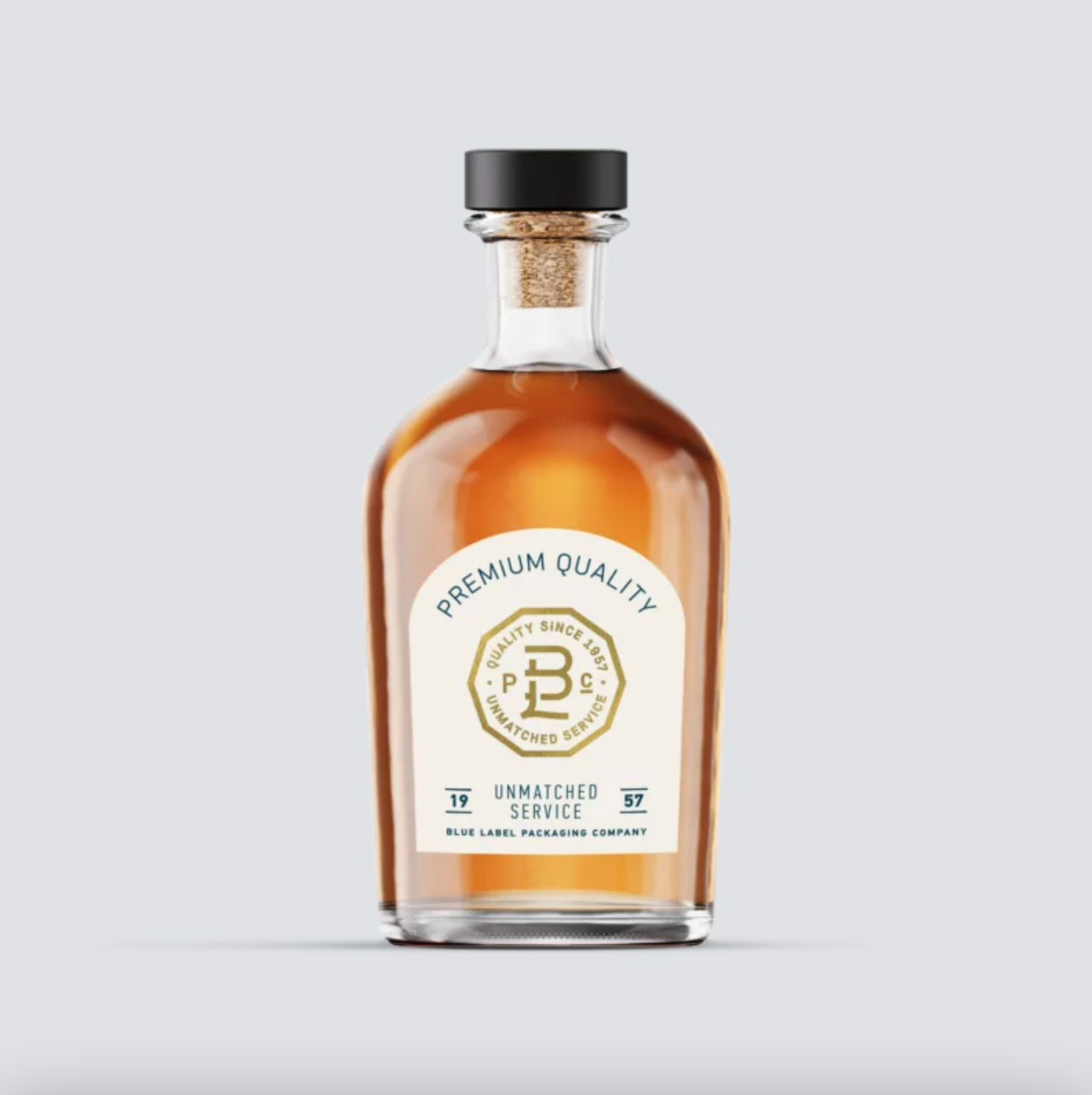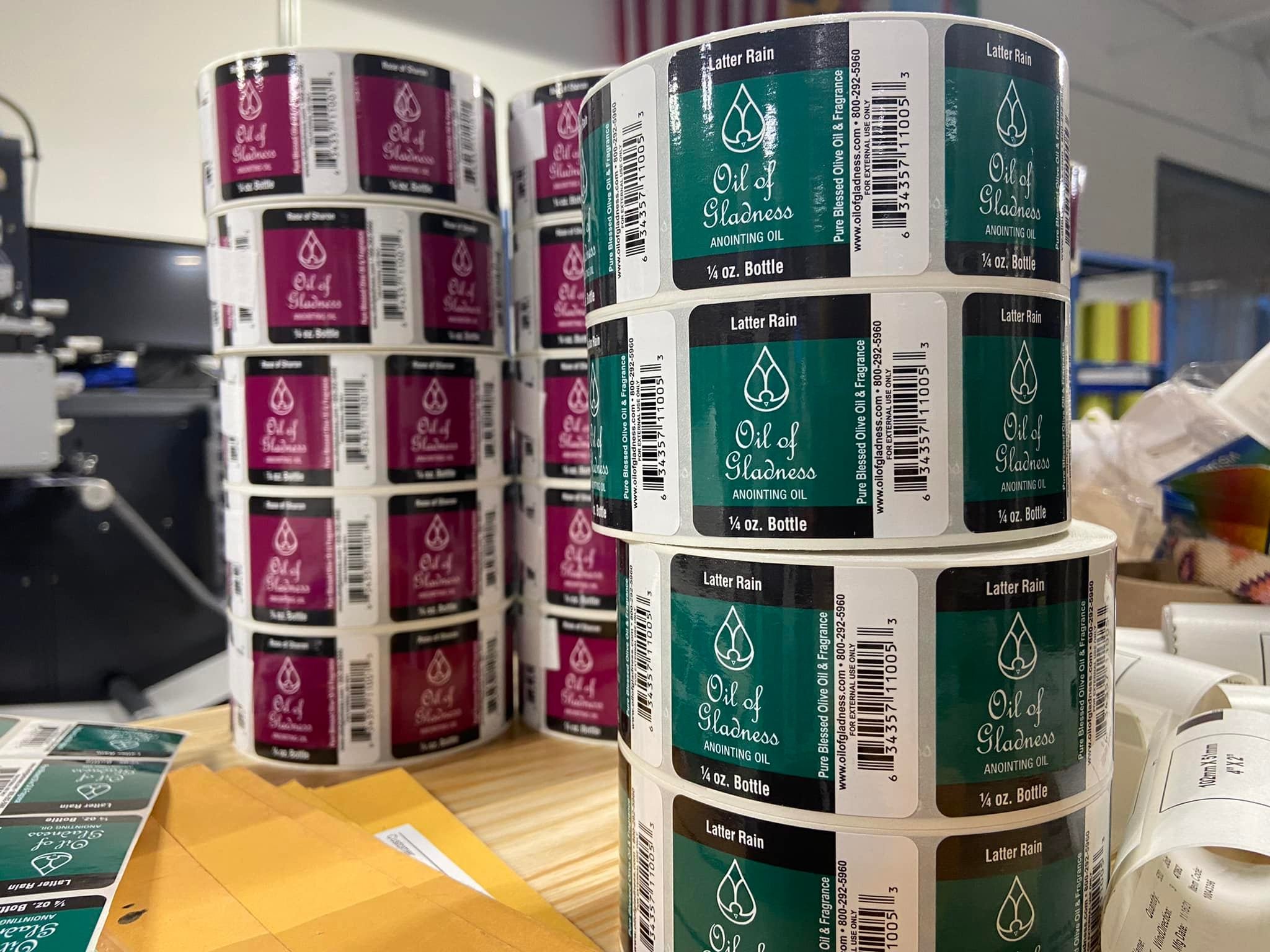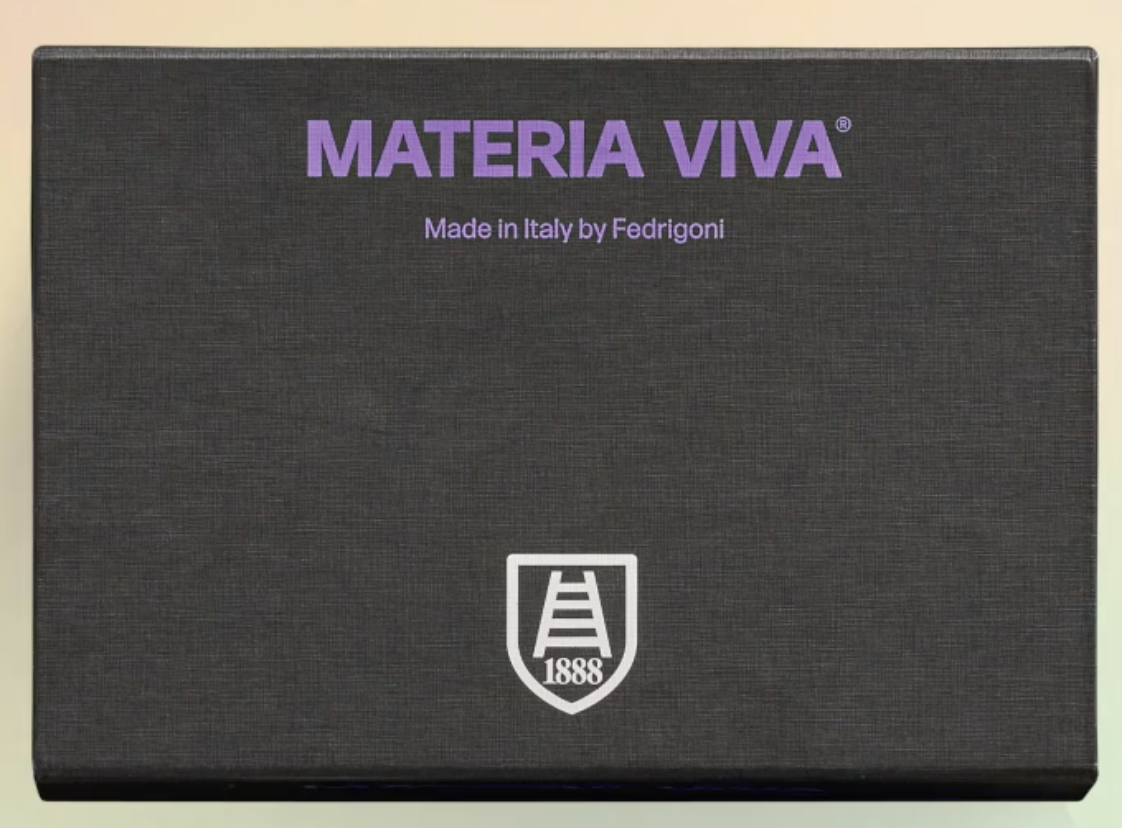Avery Dennison
Avery Dennison
🏭 Los Angeles, California
What we like about Avery Dennison: California-based supplier of high quality custom diecut boxes. They produce a large selection of other packaging materials including paper mailers. Avery Dennison is also well known for their work with adhesives and high quality labels.
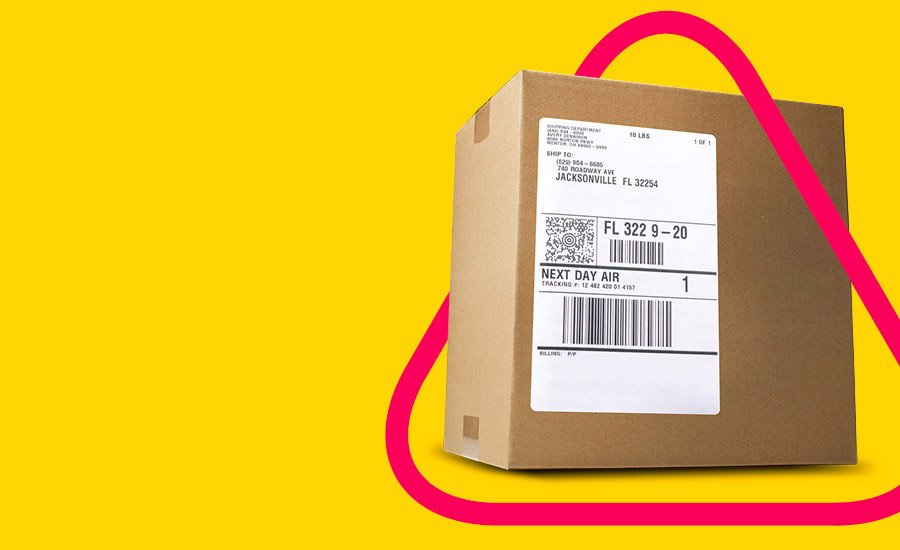
Corrugated boxes
-
Corrugated boxes and inserts are made from corrugated board which has three kraft paper layers to make a rigid board — two liners and a corrugated layer in between.
Corrugated thicknesses are called flutes. Depending on the liner thicknesses, larger flutes (A) can make a board appear more wavy and smaller flutes (E-G) can make a board appear more smooth.
Most graphics are printed direct on the kraft paper. The ink soaks into the paper, so the corrugated maintains its matte, textured feel. There are coatings and coated substrates available to make boxes look shiny and feel more slick, in addition to making the inks appear more vibrant.
-
These paper boxes are made from trees, which are a renewable resource. In the first leg of shipping to a distributor, boxes ship flat, taking up less space in transit. After it’s built and filled, the box will have a set volume in shipping.
Corrugated board is made from paper which is easily recycled or composted (see Disposal).
For more transparent sourcing, suppliers may source paper that has an FSC certification. The paper and forest industry created FSC certifications to set standards like stricter restrictions on clear cuts and pesticide use.
-
The best afterlife for most paper products — from collateral to boxes — is recycling. Most paper fibers can be recycled more than five times. Paper with tape or stickers can still be recycled, because non-paper materials are sifted out in the recycling process.
-
Typically, you can print on the entirety of a box, from edge to edge. Printed designs will match the finish of the paper.
For a shiny finish, you’ll need to inquire about added coatings. Coatings may also be necessary if your packaging needs extra water resistance.

Paper Mailers
-
Kraft mailers have the feel of butcher paper, but the paper is typically thicker while still being flexible.
-
Most paper is made from trees — a renewable resource. Trees sequester carbon, which is ultimately released back into the air at the paper's end of life when it biodegrades or is composted or incinerated.
Paper is lightweight in shipping and can be engineered for structural stability with flat pack shipping.
The paper and forest industry has some regulations but paper made with FSC certifications meets higher standards including stricter restrictions on clear cuts and pesticide use.
-
The best afterlife for most paper products — from collateral to boxes — is recycling. Paper fibers can be recycled more than five times. Paper with tape or stickers can still be recycled, because non-paper materials are sifted out in the recycling process.
Paper products made of shorter fibers like tissue paper may be best suited for composting because the fibers will be sifted out in recycling. But it's ok if they end of up in the recycling bin.
-
Printed designs will match the finish of the paper. For a shiny finish, you’ll need to inquire about added coatings. Coatings may also be necessary if your packaging needs extra water resistance.

PE Mailers
Made from 100% Recycled Polyethylene.
-
Plastic film comes in various thicknesses, but it's thin enough to be flexible with a little stretch. Depending on the material, it can be transparent or opaque.
-
Using recycled plastic is one way to mitigate its environmental impact. The higher the percentage of recycled plastic, the less a material’s reliance on virgin material — in this case fossil fuels.
Traditional plastic is derived from fossil fuels which are a non-renewable resource. In addition to that, they release greenhouse gases in production and require a tremendous amount of energy, from oil drilling to manufacturing.
The vast majority of plastic (over 90%) is not recycled and ends up in landfills or waterways. Whether it ends up in a landfill or waterway, plastic takes decades to degrade.
-
In 2021, the US recycled less than 6% of its plastic waste, according to a study by Beyond Plastics.
While plastics with the resin codes #1 and #2 (PET and HDPE) have a higher likelihood of being recycled, plastic as a whole has a very low likelihood of actually being recycled. This is due to several factors including the lack of recycling infrastructure, the number of plastic types, the sheer volume of plastic waste, and the quick degradation of the polymers in recycling. Even if plastic ends up in a recycling bin, most of it will end up in landfills or oceans.
To minimize the amount of plastic sent to landfills, use paper-based or glass alternatives, or opt for refillable or practically reusable designs.
-
Use discretion when using plastic resin codes (the recycling symbol surrounding a number). They can be misleading because they imply that a type of plastic is recyclable, when in many cities that's not the case. Plastics #1 and #2 (PET and HDPE) are most widely accepted for recycling, unless their made into plastic film.
On your design, it's ideal to indicate the plastic type and encourage customers to look into the rules for their city before recycling.

Labels
-
Wide variety of colors, textures, finishes, and printing capabilities depending on texture.
-
Avery Dennison offers a variety of sustainable paper and film solutions, including PCR labels, wash-off labels, reduced material labels, and labels made from renewable materials. Matcheck provides label-specific LCA services.
AD CleanFlake Adhesive Technology is designed to help both PET and HDPE packaging complete the recycling process. During PET recycling, the adhesive deactivates to allow both label and adhesive to separate cleanly, leaving the plastic free of contamination. During coloured HDPE recycling, the label stays attached, but does not compromise the resulting plastic pellets.
-
Some labels are recyclable in the paper stream, or can be washed off. AD Circular service arranges used label material pickup and recycling in China/Europe.
-
Labels are highly customizable by color, print, material, and finish.
Corrugated
US-based corrugated manufacturer with 100% recycled content Envirokraft line. Strongest TikTok game in the corrugated manufacturing world.
Corrugated manufacturer with options for a water and grease barrier that’s compatible with paper recycling.
US-based supplier carrying a good array of stock options and are capable of doing custom solutions.
Manufacturer of boxes and paper mailers that also specializes in high quality adhesive and labels.
Expansive catalog of stock and custom ecommerce packaging, from mailers and boxes to tape and labels.
Poly Bags & Films
Large offering of stock paper and plastic ecommerce solutions, with impressive PCR rates.
Biopolymer extracted from nature to take many forms: films, rigid containers, and more.
Selection of home compostable plastic mailers and bags. They also carry compostable tape and labels.
Trays & Inserts
Specializes in corn starch foam, a dissolvable, home-compostable alternative to plastic foam and insulation.
Paper Mailers
Large offering of stock paper and plastic ecommerce solutions, with impressive PCR rates.
Manufacturer of boxes and paper mailers that also specializes in high quality adhesive and labels.
Expansive catalog of stock and custom ecommerce packaging, from mailers and boxes to tape and labels.
Selection of home compostable plastic mailers and bags. They also carry compostable tape and labels.
Cushioning
Large offering of stock paper and plastic ecommerce solutions, with impressive PCR rates.
Specializes in corn starch foam, a dissolvable, home-compostable alternative to plastic foam and insulation.
Jars & Bottles
Industrially compostable bamboo bioplastic jars and bottles for personal care products.
Glass bottles and jars for food and beverage, made from an average of 60% recycled content.
Personal care packaging like bottles and tubes made from 100% post consumer recycled plastic, sugarcane, or aluminum.
Glass containers made from high percentages of recycled glass and ocean-bound plastic caps.
Glass manufacturer, specializing in cosmetics and perfume, with options for plastic closures.
Jars and bottles, with options for recycled content in addition to mono-material pouches.
Folding Cartons
Utah PaperBox is a folding carton and rigid packaging manufacturer based in Salt Lake City.
European manufacturer offering recyclable paper packaging with barrier protection against water and grease.
Folding cartons and collateral made from paper blend made from 50% hemp 50% recycled paper.
Specializing in paperboard boxes, folding cartons, and collateral, with options for 100% recycled paper.
Expansive catalog of stock and custom ecommerce packaging, from mailers and boxes to tape and labels.
Personal care packaging like bottles and tubes made from 100% post consumer recycled plastic, sugarcane, or aluminum.
Food Service
Large catalog of low minimum compostable options. Be wary of PLA with further research.
Inks & Coatings
Raw Materials
Industrially compostable bamboo bioplastic jars and bottles for personal care products.
European manufacturer offering recyclable paper packaging with barrier protection against water and grease.
Folding cartons and collateral made from paper blend made from 50% hemp 50% recycled paper.
Biopolymer extracted from nature to take many forms: films, rigid containers, and more.
Labels
High-performing self-adhesive paper and film products for an extensive set of end-uses, with a range of fossil fuel-free options.
Quality custom labels, shrink sleeves, and hang tags with fast turn around for a variety of industries.
Manufacturer of boxes and paper mailers that also specializes in high quality adhesive and labels.
Expansive catalog of stock and custom ecommerce packaging, from mailers and boxes to tape and labels.
Selection of home compostable plastic mailers and bags. They also carry compostable tape and labels.
Specialty Papers
European manufacturer offering recyclable paper packaging with barrier protection against water and grease.
Folding cartons and collateral made from paper blend made from 50% hemp 50% recycled paper.

